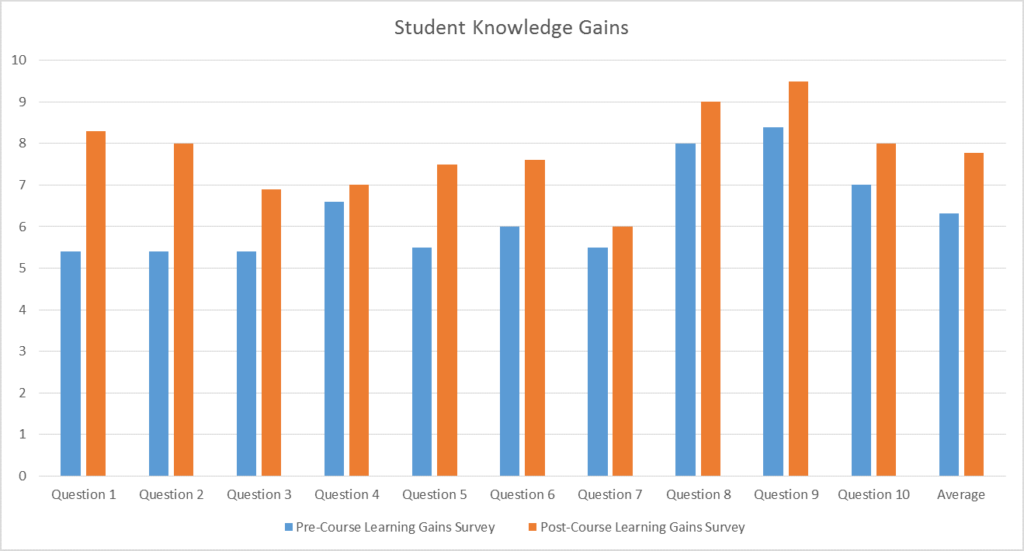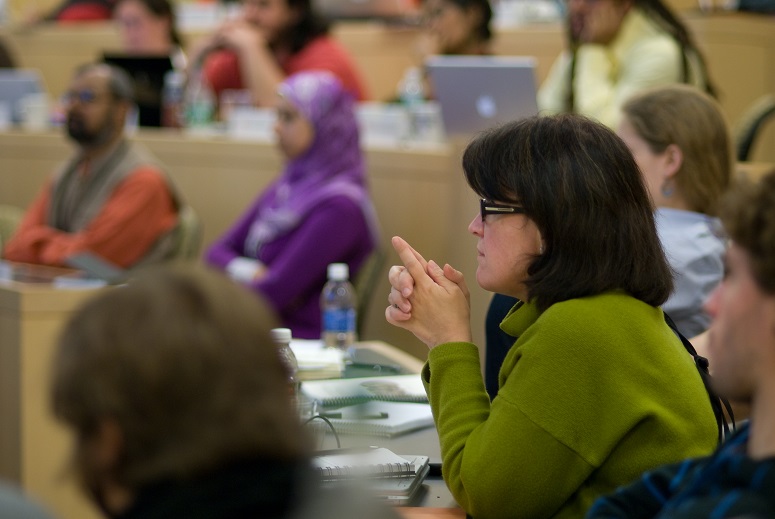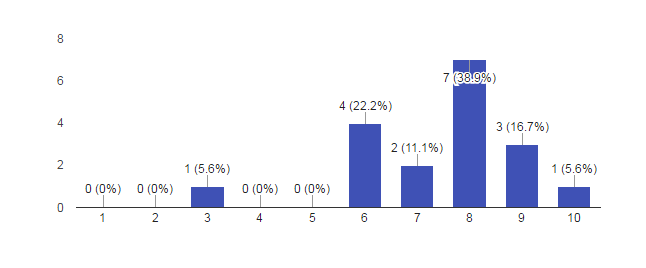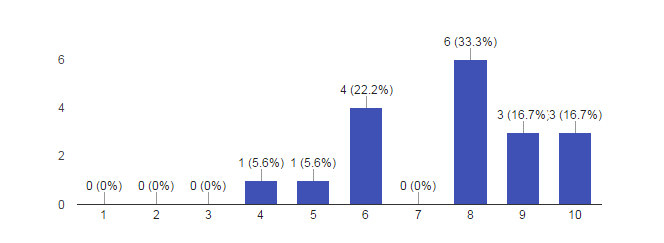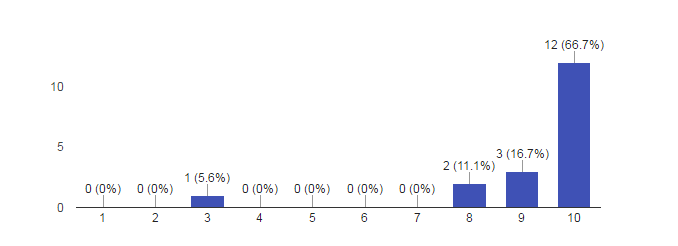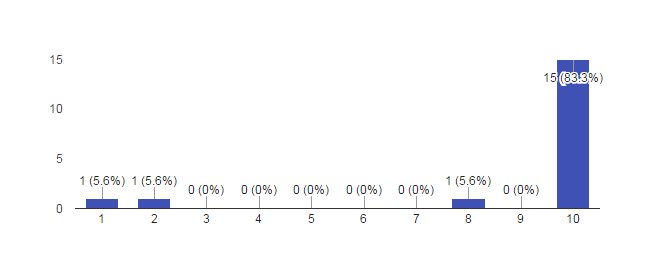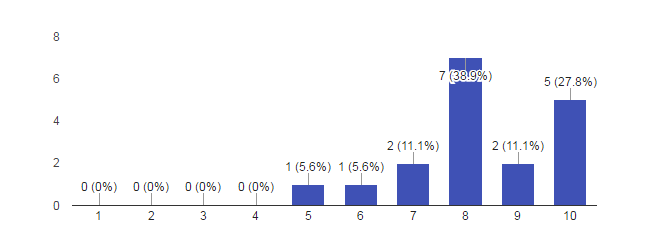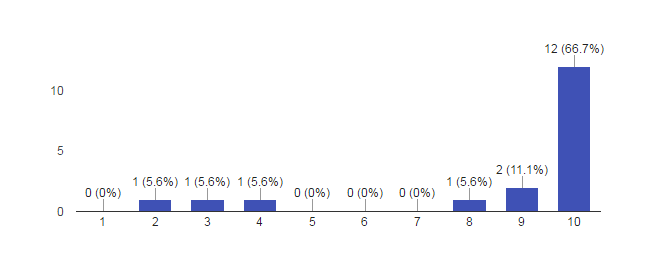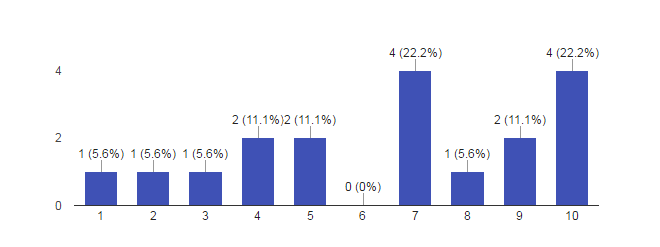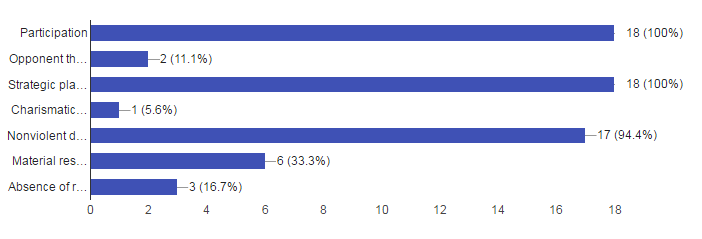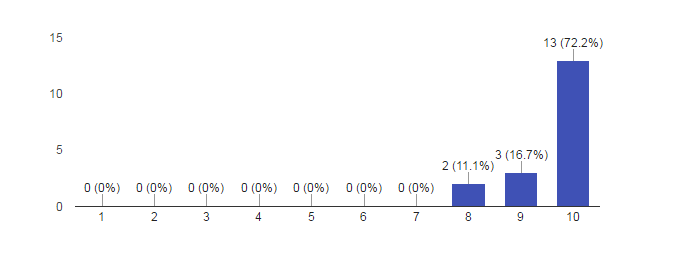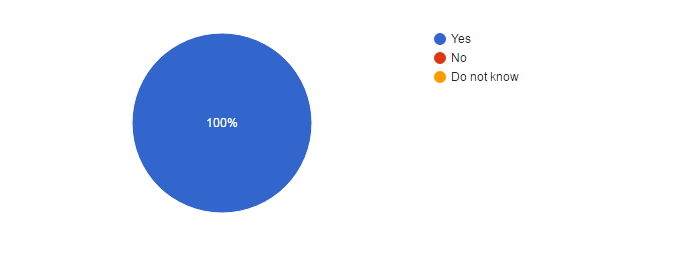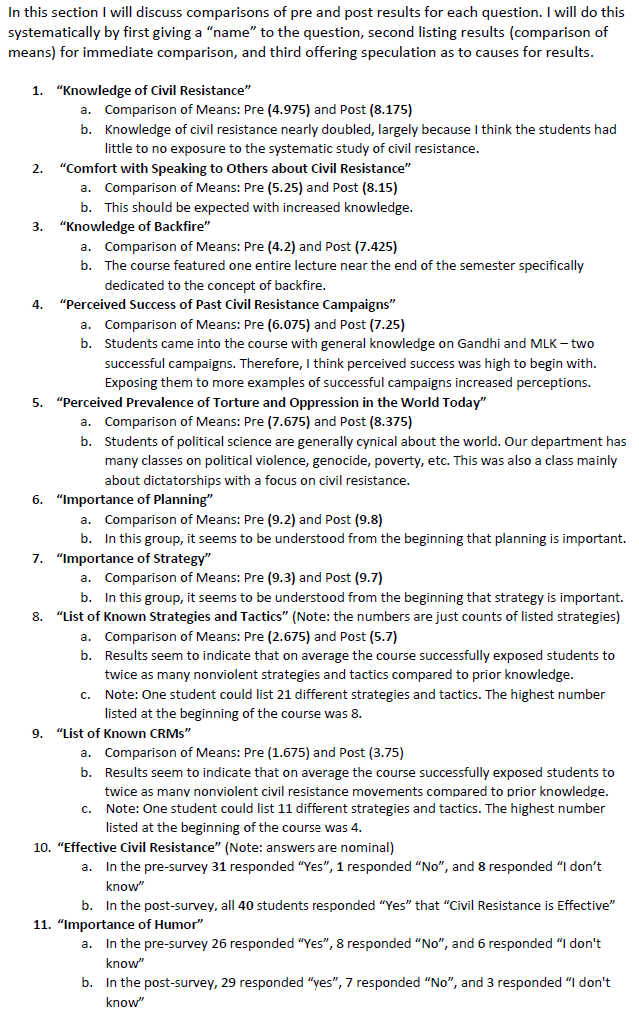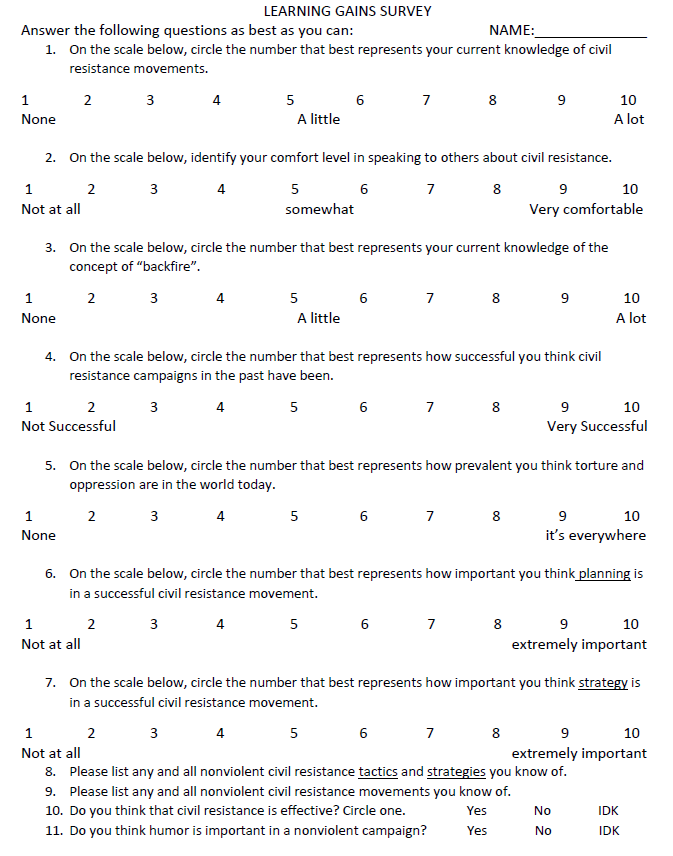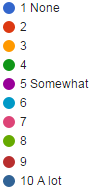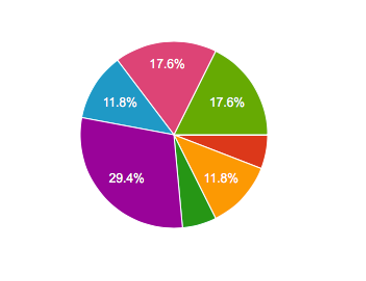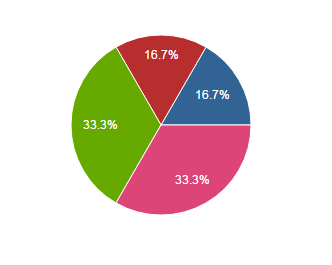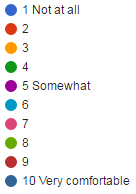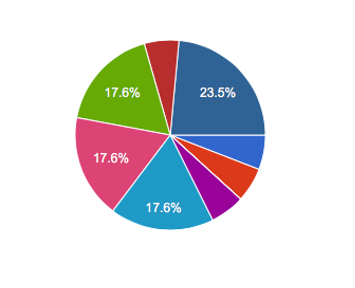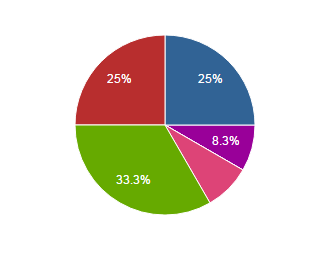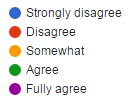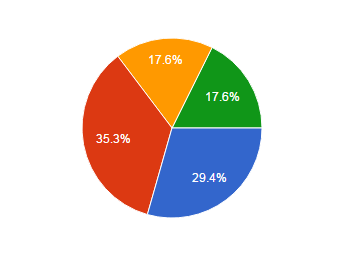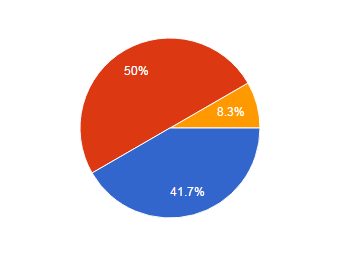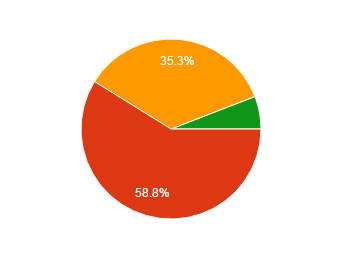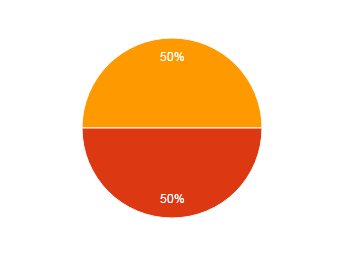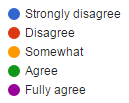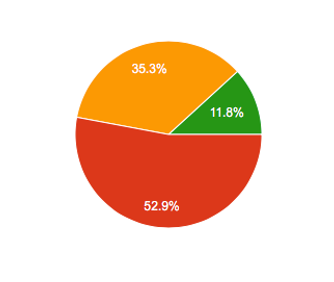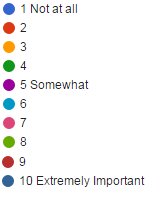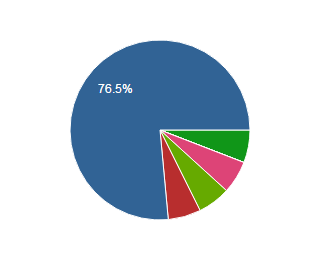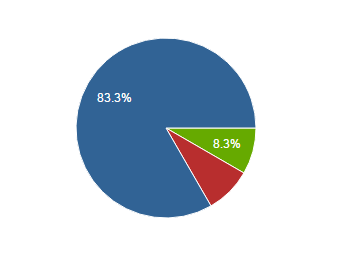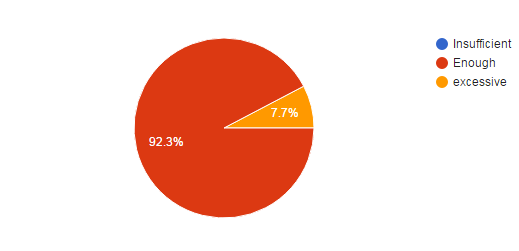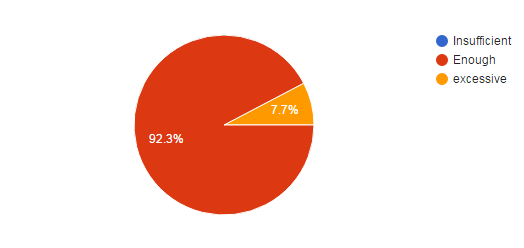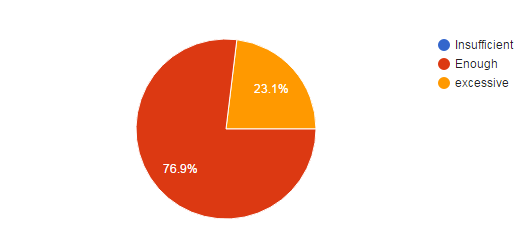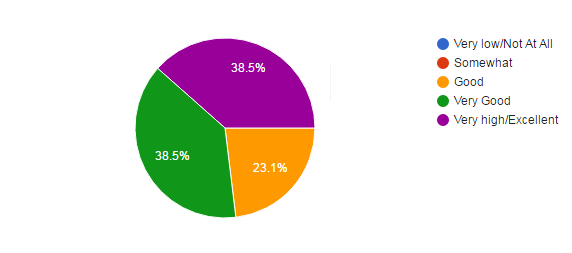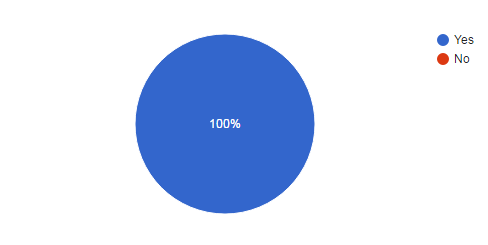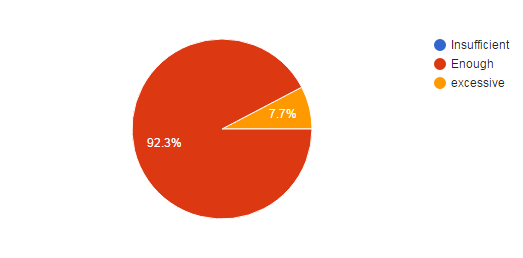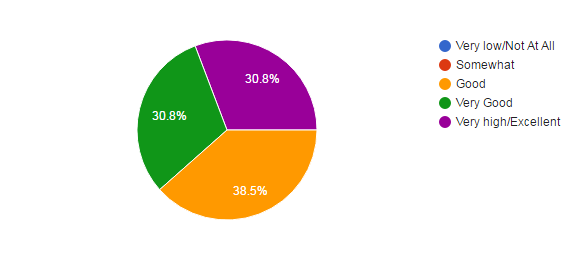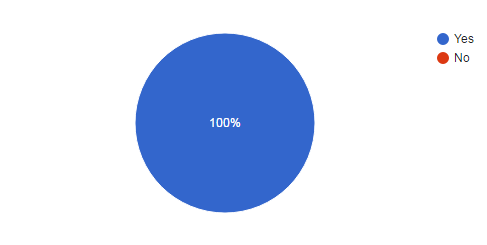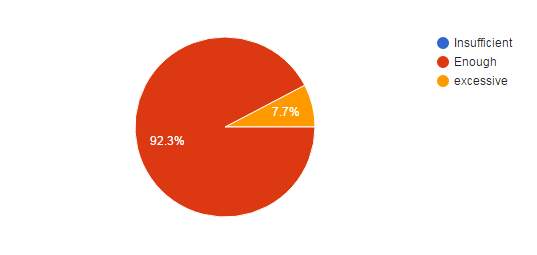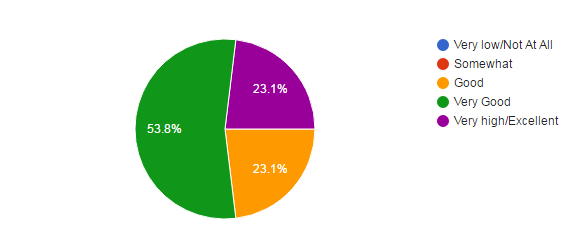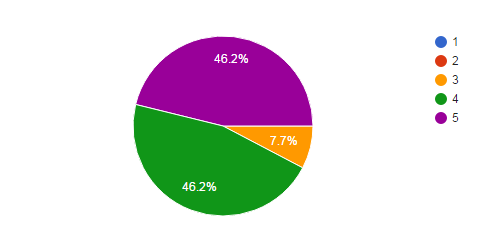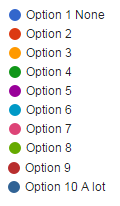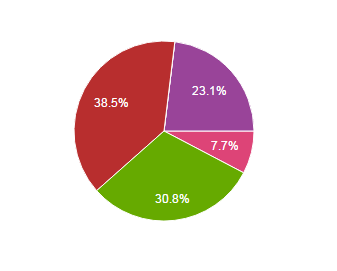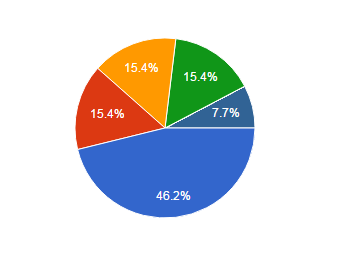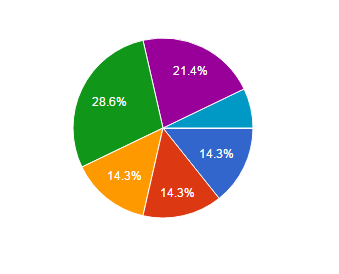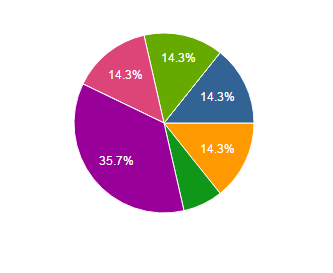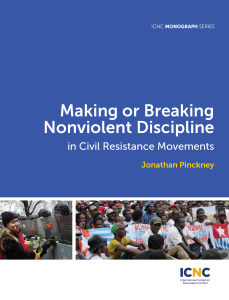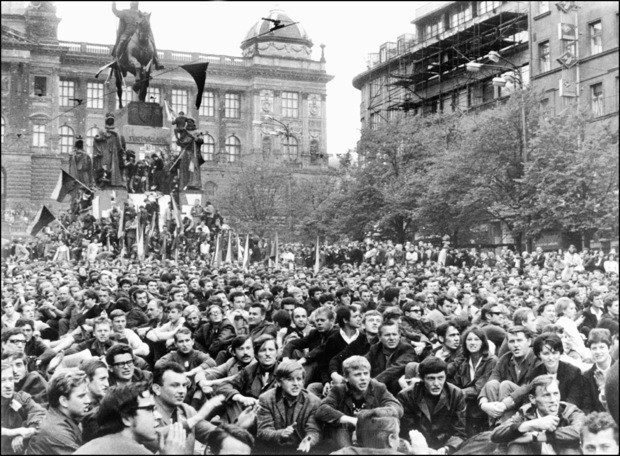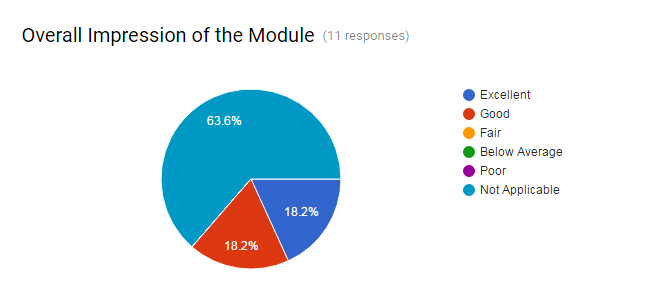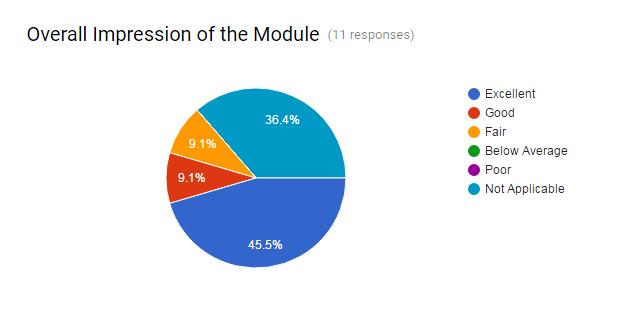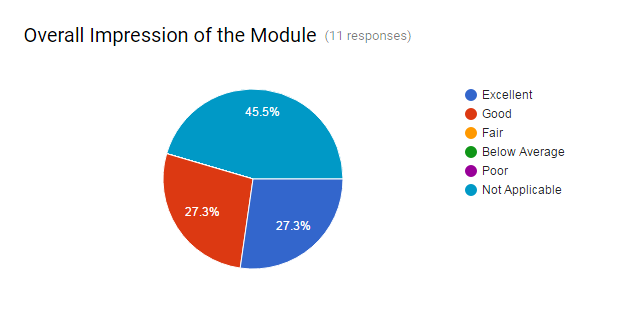Delivering the Story: Why Movement Reporting Matters
Why Violence Undermines Protest
Let’s Get Real! Facing Up to the Agent Provocateur Problem
Madagascar: No Defection Too Small, No Act of Resistance Too Isolated
Uprooting Corruption in Uganda: Protest or Persuasion?
Nonviolent Resistance and Prevention of Mass Killings During Popular Uprisings
By Evan Perkoski and Erica Chenoweth, May 2018
Free Download
Purchase a Print Copy
Purchase e-book (Nook | Kindle)
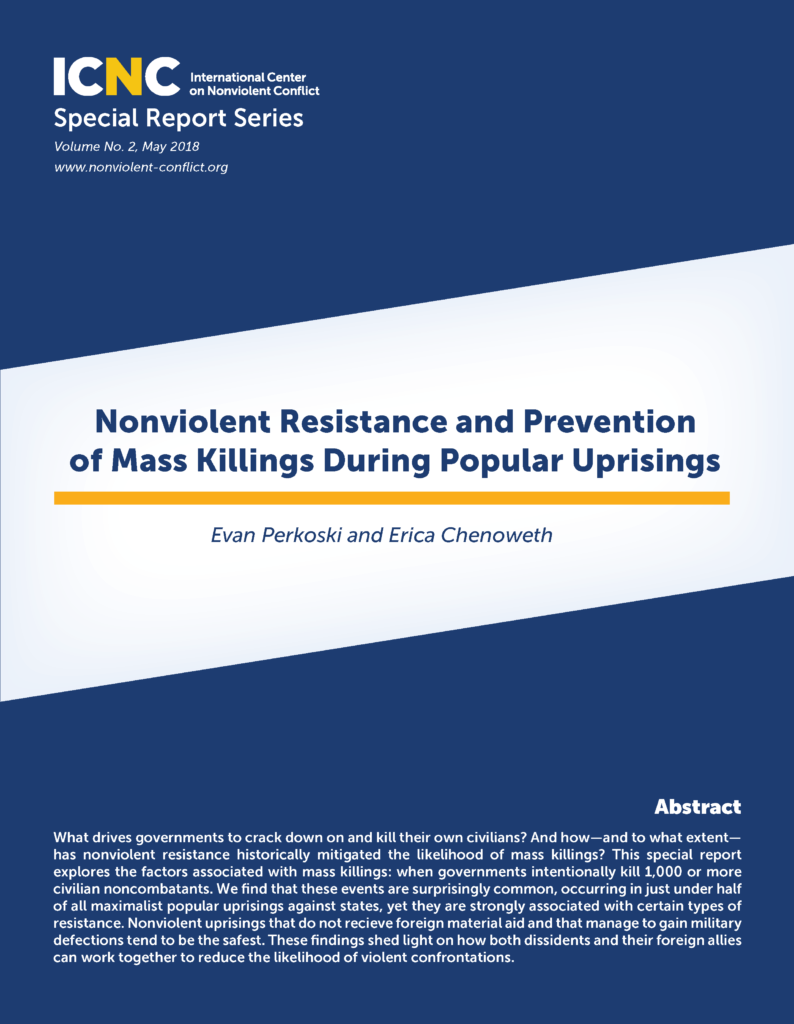
What drives governments to crack down on and kill their own civilians? And how—and to what extent—has nonviolent resistance historically mitigated the likelihood of mass killings? This special report explores the factors associated with mass killings: when governments intentionally kill 1,000 or more civilian noncombatants. We find that these events are surprisingly common, occurring in just under half of all maximalist popular uprisings against states, yet they are strongly associated with certain types of resistance. Nonviolent uprisings that do not receive foreign material aid and that manage to gain military defections tend to be the safest. These findings shed light on how both dissidents and their foreign allies can work together to reduce the likelihood of violent confrontations.
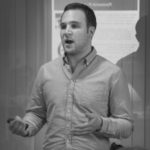 Dr. Evan Perkoski is an assistant professor in the Department of Political Science at the University of Connecticut. His research focuses on the dynamics of rebel, insurgent, and terrorist groups; strategies of violent and nonviolent resistance; and the behavior of state and nonstate actors in cyberspace. His book manuscript explores the breakdown of armed organizations, focusing particularly on the emergence of splinter groups and how they behave relative to their predecessors. He received his PhD from the University of Pennsylvania and has held fellowships at the Belfer Center for Science and International Affairs at the Harvard Kennedy School of Government as well as the Josef Korbel School of International Studies at the University of Denver.
Dr. Evan Perkoski is an assistant professor in the Department of Political Science at the University of Connecticut. His research focuses on the dynamics of rebel, insurgent, and terrorist groups; strategies of violent and nonviolent resistance; and the behavior of state and nonstate actors in cyberspace. His book manuscript explores the breakdown of armed organizations, focusing particularly on the emergence of splinter groups and how they behave relative to their predecessors. He received his PhD from the University of Pennsylvania and has held fellowships at the Belfer Center for Science and International Affairs at the Harvard Kennedy School of Government as well as the Josef Korbel School of International Studies at the University of Denver.
 Dr. Erica Chenoweth is a Professor at the Josef Korbel School of International Studies at the University of Denver. Foreign Policy magazine ranked her among the Top 100 Global Thinkers of 2013 for her work to advance the empirical study of civil resistance. Her book, Why Civil Resistance Works (Columbia University Press, 2011) with Maria J. Stephan, also won the 2013 Grawemeyer Award for Ideas Improving World Order. Chenoweth has authored or edited four books and dozens of articles on political violence and its alternatives. She earned a PhD and an MA from the University of Colorado and a BA from the University of Dayton.
Dr. Erica Chenoweth is a Professor at the Josef Korbel School of International Studies at the University of Denver. Foreign Policy magazine ranked her among the Top 100 Global Thinkers of 2013 for her work to advance the empirical study of civil resistance. Her book, Why Civil Resistance Works (Columbia University Press, 2011) with Maria J. Stephan, also won the 2013 Grawemeyer Award for Ideas Improving World Order. Chenoweth has authored or edited four books and dozens of articles on political violence and its alternatives. She earned a PhD and an MA from the University of Colorado and a BA from the University of Dayton.
Check out the related ICNC Webinar
How Can Resistance Movements Limit Mass Killings By Repressive Governments?
Date: June 20, 2018
Presenter: Evan Perkoski
Civil Resistance: A First Look
Does Protesting Do Any Good?
Curriculum Fellowship Awardees 2017
In 2014, ICNC launched the Curriculum Fellowship Program to support development of courses on nonviolent conflict and promote teaching in the growing field of civil resistance studies by selecting seven curriculum fellows. In both 2015 and 2016 ICNC accepted six fellows. In 2016, ICNC added a new component to the curriculum support program, online courses that interested fellows taught in 2016 and Spring 2017. The online teaching became an integral part of the initiative and the 2017 cohort of fellows will continue teaching both classroom-based and online courses on civil resistance.
ICNC is excited to continue the Curriculum Fellowship Program by accepting seven fellows for the 2017 cohort. These fellows will be teaching in person courses in Kenya, the United States, and Finland. Online courses will be taught in Hong Kong, Armenia, and Cambodia.
The 2017 Fellows are:
Solomon Onyango
Tyler Dale Hauger
Bunly Soeung
Hasan Habes
Johnson Ching-Yin Yeung
Lusine Arakelyan
Lilit Makunts
 Solomon Onyango received his Bachelor in Social Sciences & his Masters in Public Administration and Management from Makerere University in Kampala, Uganda. He is currently a lecturer of Political Science at the Catholic University of Eastern Africa (CUEA) and a PhD candidate with the Social Transformation (Governance and Democracies) Department at Tangaza University College in Nairobi, Kenya. His doctoral dissertation, “Strengthening Accountability through Deliberative Citizen Participation in Sub-National Government” seeks to examine the nexus between deliberative citizen participation and accountability at the sub-national government level in Lamu County, Kenya. Solomon’s teaching and research is anchored in a multi-disciplinary intersection of governance, democratization and decentralization within Africa. He regularly teaches core topical courses on Public Administration, Democracy and Governance, and Social & Public Policy in Africa. Solomon also holds distinguished awards from the South-South Institute and the Democratic Governance Institute of the Council for the Development of Social Science Research in Africa.
Solomon Onyango received his Bachelor in Social Sciences & his Masters in Public Administration and Management from Makerere University in Kampala, Uganda. He is currently a lecturer of Political Science at the Catholic University of Eastern Africa (CUEA) and a PhD candidate with the Social Transformation (Governance and Democracies) Department at Tangaza University College in Nairobi, Kenya. His doctoral dissertation, “Strengthening Accountability through Deliberative Citizen Participation in Sub-National Government” seeks to examine the nexus between deliberative citizen participation and accountability at the sub-national government level in Lamu County, Kenya. Solomon’s teaching and research is anchored in a multi-disciplinary intersection of governance, democratization and decentralization within Africa. He regularly teaches core topical courses on Public Administration, Democracy and Governance, and Social & Public Policy in Africa. Solomon also holds distinguished awards from the South-South Institute and the Democratic Governance Institute of the Council for the Development of Social Science Research in Africa.
Course Title: Theory and Practice of Non-Violent Resistance in East Africa
Location: Institute of Regional Integration and Development (IRID) at the Catholic University of Eastern Africa (CUEA), Nairobi, Kenya (August-December 2017)
Course Abstract: In this course, participants will become familiar with nonviolent resistance, from the era of colonial and post-colonial Africa to the Arab Spring. It will explore facets of nonviolent resistance as a proven social action movement capable of destabilizing colonies, establishing independent states or toppling rogue regimes and recasting the geopolitical landscape in East Africa. It will explore questions surrounding the ethics of nonviolent action, when and where civil resistance is used, the conditions under which it is more or less effective, and its consequences for local communities, state polities and the international system. The course will draw from seminal philosophical texts, historical accounts and cutting-edge social science research. Students will gain an understanding of both the normative and empirical debates surrounding the practice of civil resistance and a familiarity with key cases within and outside the East Africa. The course will cover major topics related to the general field of civil resistance as well as case studies specific to East Africa and Kenya.
Solomon’s course evaluation and learning assessment
 Tyler Dale Hauger is a visiting faculty member at St. Olaf College in Northfield, MN, USA in January 2018. He works full-time as an advisor at Karibu Foundation in Oslo, Norway, an organization that supports civil society movements in Global South that lift up alternatives to the dominant paradigms of power, distribution, and development. Tyler holds a M.Phil. in Peace and Conflict Studies from the University of Oslo (2011), as well as a B.A. in Political Science and Religion from St. Olaf College (2008). His interests and research areas include international relations, conflict resolution & reconciliation, economic globalization & trade regimes, social movements, nonviolent action strategies, and ecumenism & interfaith initiatives. He has previously served with the LWF’s Department for World Service’s Jerusalem office in East Jerusalem, and he currently sits on the board of the Norwegian Social Forum- the Norwegian arm of the World Social Forum.
Tyler Dale Hauger is a visiting faculty member at St. Olaf College in Northfield, MN, USA in January 2018. He works full-time as an advisor at Karibu Foundation in Oslo, Norway, an organization that supports civil society movements in Global South that lift up alternatives to the dominant paradigms of power, distribution, and development. Tyler holds a M.Phil. in Peace and Conflict Studies from the University of Oslo (2011), as well as a B.A. in Political Science and Religion from St. Olaf College (2008). His interests and research areas include international relations, conflict resolution & reconciliation, economic globalization & trade regimes, social movements, nonviolent action strategies, and ecumenism & interfaith initiatives. He has previously served with the LWF’s Department for World Service’s Jerusalem office in East Jerusalem, and he currently sits on the board of the Norwegian Social Forum- the Norwegian arm of the World Social Forum.
Course Title: Political Science 231: Peace and Nonviolent Resistance
Location: St. Olaf College, Minnesota, USA
Course Abstract: The course will explore central theories and perspectives associated with peace, conflict reconciliation, and nonviolent resistance with perspectives from the Nordic countries and around the globe. What lessons can be learned from actors that are struggling nonviolently for individual and collective rights, social and economic justice, and a collective responsibility for coming generations? What key strategies are individuals and groups using in their struggle to create a just community and world? How do groups and individuals approach reconciliation and forgiveness in post-conflict situations? The course will approach these subjects from an academic perspective, that of people’s movements in the field, and through interactive skill trainings that will occur each week. The civil resistance unit of the course will include focus on political power; the strategic nature of civil resistance and peacebuilding, including looking at the pillars of support, broad-based coalition building, and potential allies; how one designs an effective civil resistance campaign that will also ensure a democratic result in the future, beyond just regime change; and issues such as provocateurs, the radical flank / violent effect, as well as topics such as participation and backfire. As a final project, students (in groups) will select one cause which they find personally engaging, and using both class material as well as outside sources, design a strategy for civil resistance and change. Both the theoretical premises and the mechanisms that link the explanatory factors to decisions on power and peace will be discussed in the course.
Tyler’s course evaluation and learning assessment
 Bunly Soeung is a full-time lecturer of public administration at Svay Rieng University, Cambodia. He has also worked as a freelance research coordinator for peace research projects. He received his master’s degree in Public Administration with a focus on Public Policy in 2010 from Universitas Padjadjaran, Indonesia. Between 2013 and 2015, he was a peace research team member for the Alliance for Conflict Transformation. In 2015, he finished a master program in Higher Education at the University of Hong Kong, focusing on students’ perspective on freedom of critical inquiry in Cambodia. In 2016, he translated a 160-page book entitled “May 18 Gwangju Democratic Uprising” about the May 18th Foundation in South Korea. His primary research interests are cultural peace-building, non-violent civil resistance in Cambodia, and academic freedom. Recently, his co-authored journal article on “The Revitalisation of Buddhist Peace Activism in Post-War Cambodia” was published in the Conflict, Security & Development Journal, Volume 17. It examines how Cambodian Buddhist monks develop and maintain their normative legitimacy and connection with civilian followers by focusing on their approaches to four types of resources: religious authority, cultural knowledge, social networks, and new communication technology.
Bunly Soeung is a full-time lecturer of public administration at Svay Rieng University, Cambodia. He has also worked as a freelance research coordinator for peace research projects. He received his master’s degree in Public Administration with a focus on Public Policy in 2010 from Universitas Padjadjaran, Indonesia. Between 2013 and 2015, he was a peace research team member for the Alliance for Conflict Transformation. In 2015, he finished a master program in Higher Education at the University of Hong Kong, focusing on students’ perspective on freedom of critical inquiry in Cambodia. In 2016, he translated a 160-page book entitled “May 18 Gwangju Democratic Uprising” about the May 18th Foundation in South Korea. His primary research interests are cultural peace-building, non-violent civil resistance in Cambodia, and academic freedom. Recently, his co-authored journal article on “The Revitalisation of Buddhist Peace Activism in Post-War Cambodia” was published in the Conflict, Security & Development Journal, Volume 17. It examines how Cambodian Buddhist monks develop and maintain their normative legitimacy and connection with civilian followers by focusing on their approaches to four types of resources: religious authority, cultural knowledge, social networks, and new communication technology.
Course Title: An Introduction to Civil Resistance and Nonviolent Movements
Location: ICNC Online Platform
Course Abstract: This 5-week online course is designed to take participants through a guided progression of ideas, topics, and themes in the field of civil resistance and nonviolent movements. In particular, it examines the foundation of civil resistance, deconstructing misconceptions and structural determinism, strategy and tactics of nonviolent struggle, backfire and depression, gender dynamics, and civil resistance and corporate governance in the extractive industries in both theory and practice. The participants will be introduced to case studies of Cambodian nonviolent movements and will look at common misconceptions about civil resistance including its neglect in history and previous civil movements in Cambodia, such as the Buddhist nationalist movement under the French colonialism, Maha Ghosananda’s Dhammayietra and others. The aim of this course is not only to educate students about civil resistance and nonviolent movements that has never been introduced to any academic curriculum, but also to inspire students to see how powerful the nonviolent movements are.
Bunly’s course evaluation and learning assessment.
 Hasan Habes is an educator, activist and researcher. He is currently a Ph.D. candidate and a lecturer in Peace, Mediation and Conflict Research Program at Åbo Akademi University in Vaasa, Finland and holds a Master’s degree from the same university. He specializes in nonviolent discipline and his research examines how to transform the radical flanks’ violent behaviors to nonviolent ones in Turkey. In addition, he has a MA degree in international relations concentrating on “the impact of education in conflict resolution in Cyprus” from Eastern Mediterranean University, Cyprus.
Hasan Habes is an educator, activist and researcher. He is currently a Ph.D. candidate and a lecturer in Peace, Mediation and Conflict Research Program at Åbo Akademi University in Vaasa, Finland and holds a Master’s degree from the same university. He specializes in nonviolent discipline and his research examines how to transform the radical flanks’ violent behaviors to nonviolent ones in Turkey. In addition, he has a MA degree in international relations concentrating on “the impact of education in conflict resolution in Cyprus” from Eastern Mediterranean University, Cyprus.
He was actively involved in the Gezi resistance in Turkey in 2014 and his master’s dissertation focused on the identification and elimination of the radical flanks during a nonviolent action. In it, he proposed policy recommendations to the organizers and practitioners how to keep the nonviolent discipline during nonviolent action campaigns.
Course Title: Civil Resistance
Location: Peace, Mediation & Conflict Research Program at Åbo Akademi University in Vaasa, Finland
Course Abstract: The aim of the course is to introduce the main concepts and ideas of civil resistance and discuss various historical and contemporary cases of nonviolent campaigns and movements. The students will explore some of the common misconceptions about nonviolent struggles as well as strategies and tactics. In this way the students will learn to distinguish strategy from tactics and they will be able to relate these in the context of civil resistance. Also, students will discover how the external actors play a significant role to facilitate and support these movements. By the end of the course, the students will be able to analyze the core elements of civil resistance movements and reflect on the effectiveness of these movements and their underlying political power. The students will be able to have a better understanding of the impact of violent flanks on the nonviolent action campaigns and the importance of the nonviolent discipline. Also, the students will learn and understand about different ways that movements can fail, the causes as well as the possible alternative strategies to prevent these failures. The course will provide an interactive and structured classroom based learning environment with the activating methods techniques. So the students can become more informed observers of nonviolent conflicts and effective conveyors of civil resistance knowledge.
Hasan’s course evaluation and learning assessment
 Johnson Ching-Yin Yeung is a young human right activist in Hong Kong and former Hurford Youth Fellow at the National Endowment for Democracy. He graduated with a Master of Laws in Human Rights from the University of Hong Kong. He was the spokesman of Civil Human Rights Front, a Hong Kong civil rights alliance, and was Deputy Secretary of The Federation of Students, the leading group of the 2014 Umbrella Movement.
Johnson Ching-Yin Yeung is a young human right activist in Hong Kong and former Hurford Youth Fellow at the National Endowment for Democracy. He graduated with a Master of Laws in Human Rights from the University of Hong Kong. He was the spokesman of Civil Human Rights Front, a Hong Kong civil rights alliance, and was Deputy Secretary of The Federation of Students, the leading group of the 2014 Umbrella Movement.
Course Title: Strategic Civil Resistance Movements for Democracy and Self-Determination: Lessons for Asian Organizers
Location: ICNC Online Platform
Course Abstract: Democracy and civil liberties have faced great challenges since the third wave of democratization in Asia. Faced with improved repressive tactics used by authoritarian government against dissents and activists, this course aims at equipping activists with adequate knowledge on nonviolent civil resistances, such as the basic concept of nonviolent civil resistances, mobilization skills, power structure analysis, and strategic planning. The course is also aimed at the obstacles and challenges of civil resistance movement in theoretical framework, such as backfire theory, radical flank and military suppression. Developed by an organizer of the 2014 Umbrella Movement, this curriculum is tailored for young Asian activists who have experiences of organizing and mobilizing. Additional cases studies in Asia will be explored in order to fit the target audiences. This course is formulated in an interactive manner, students are encouraged to play stimulation games, participate into breakout discussion group, slack discussion and group learning circles. .
 Lusine Arakelyan is a founding member of the NGO Civil Consciousness. Currently she is also their Coordinator of Educational Affairs. Her bachelor’s degree is in Linguistics and Communication,with a specialization in Political Science. In 2015 she graduated from the Center for European Studies at Yerevan State University, where she was awarded the Master’s Degree of European Studies. As part of the Master’s program, she also studied at Ivane Javakhishvili Tbilisi State University. In 2012, she participated in the Brusov Student Movement, which was the first large-scale students’ movement organized in Armenia. Nonviolent action was the key element of success. After the foundation of Civil Consciousness, she has spent the last five years coordinating more than 100 non-formal education projects.
Lusine Arakelyan is a founding member of the NGO Civil Consciousness. Currently she is also their Coordinator of Educational Affairs. Her bachelor’s degree is in Linguistics and Communication,with a specialization in Political Science. In 2015 she graduated from the Center for European Studies at Yerevan State University, where she was awarded the Master’s Degree of European Studies. As part of the Master’s program, she also studied at Ivane Javakhishvili Tbilisi State University. In 2012, she participated in the Brusov Student Movement, which was the first large-scale students’ movement organized in Armenia. Nonviolent action was the key element of success. After the foundation of Civil Consciousness, she has spent the last five years coordinating more than 100 non-formal education projects.
 Lilit Makunts is currently an Associate Professor at the Russian-Armenian University in Yerevan. She earned her Ph.D. in Cognitive Linguistics specializing in Political Discourse. She teaches Sociolinguistics, Cognitive Linguistics, Discourse Analysis, and History of Nonviolent Resistance. After attending the Fletcher Summer Institute for the Advanced Study of Nonviolent Conflict in 2015, she initiated an academic course on Civil Resistance in the Department of Political Science in the fall of 2016. After about 8 years as a political board member in the Liberal Party of Armenia and the head of the youth organization (2004-2012) she realized that, without civic education and the acknowledgment of people power movements among society, no substantial democratic changes can take place. Along with academic teaching, she works as a trainer on different civil society platforms.
Lilit Makunts is currently an Associate Professor at the Russian-Armenian University in Yerevan. She earned her Ph.D. in Cognitive Linguistics specializing in Political Discourse. She teaches Sociolinguistics, Cognitive Linguistics, Discourse Analysis, and History of Nonviolent Resistance. After attending the Fletcher Summer Institute for the Advanced Study of Nonviolent Conflict in 2015, she initiated an academic course on Civil Resistance in the Department of Political Science in the fall of 2016. After about 8 years as a political board member in the Liberal Party of Armenia and the head of the youth organization (2004-2012) she realized that, without civic education and the acknowledgment of people power movements among society, no substantial democratic changes can take place. Along with academic teaching, she works as a trainer on different civil society platforms.
Course Title: Nonviolent Struggle: Why and How It Works
Location: ICNC Online Platform
Course Abstract: This is an online seminar that aims at providing civil society representatives, political activists, trainers of non-formal education and students seeking knowledge of nonviolent strategies in civil resistance. Within the framework of the seminar, the concept of nonviolent civil resistance, its most successful practices around the world, and the reasons of why and how it works will be thoroughly introduced. The course will begin with the introduction of civil resistance, its historical background and will dwell upon the common misconceptions. It will discuss the mechanisms of movement mobilization and formation as well as the factors of its sustainability. It will further discuss strategic frameworks for analyzing campaigns and movements as well as will explore issues of innovative and creative tactical choice. The importance of a well planned civil resistance will also be touched upon together with the long-lasting impact of civil resistance and its costs. The cases of various civil resistance movements in the Post-Soviet region and the main factors of instigation will also be discussed. It will focus on what can be done to make those efforts of civil resistance more strategic and effective.
Defending Paraguay’s Constitution: Setbacks, Second Thoughts and Small Victories, By David Riveros Garcia
Regina Feldman-Rights and Protests: The American Civil Rights Movement and South Africa
Regina Feldman, an ICNC High School Curriculum Fellow, developed, offered and moderated a course on the introduction to civil resistance in 2016 as part of the ICNC High School Curriculum Fellowship. As the results from course evaluations show, students found the course to be extremely beneficial and valuable for their education.
The information featured below was submitted as part of the fellowship requirement that, among others, included creating a detailed course proposal, developing curriculum content, designing evaluation tools, selecting participants and extensive moderation throughout the course.
Learn more by clicking on the topic links:
About the Curriculum Fellow
Course Abstract
Learning Gains Survey Results
 Regina Feldman currently teaches IB Twentieth Century World History and Theory of Knowledge at the Montessori High School at University Circle in Cleveland, Ohio. She taught the previous year at the Affiliated High School of Peking University in Beijing, China. Regina Feldman holds a Master of Philosophy in Ethnology, Human Biology and Communication Theory from the University of Vienna, Austria, a Master of Arts in Medical Anthropology and a Ph.D. in Cultural Anthropology from Case Western Reserve University, which were both earned as a Fulbright Scholar. She also earned a Montessori Certificate in Adolescent Studies and is IB-trained in History, Theory of Knowledge, and Extended Essay. In addition to teaching humanities at MHS, Regina Feldman functions as a Montessori Advisor and Curriculum Trainer and has helped build MHS as a Curriculum Developer, Coordinator, and Documenter since the school’s inception in 2008. She is an avid traveller, yoga practitioner, runner, and cook.
Regina Feldman currently teaches IB Twentieth Century World History and Theory of Knowledge at the Montessori High School at University Circle in Cleveland, Ohio. She taught the previous year at the Affiliated High School of Peking University in Beijing, China. Regina Feldman holds a Master of Philosophy in Ethnology, Human Biology and Communication Theory from the University of Vienna, Austria, a Master of Arts in Medical Anthropology and a Ph.D. in Cultural Anthropology from Case Western Reserve University, which were both earned as a Fulbright Scholar. She also earned a Montessori Certificate in Adolescent Studies and is IB-trained in History, Theory of Knowledge, and Extended Essay. In addition to teaching humanities at MHS, Regina Feldman functions as a Montessori Advisor and Curriculum Trainer and has helped build MHS as a Curriculum Developer, Coordinator, and Documenter since the school’s inception in 2008. She is an avid traveller, yoga practitioner, runner, and cook.
Course Title: Rights and Protests: The American Civil Rights Movement and South Africa
High School: Montessori High School at University Circle, Ohio
Abstract: This course explores struggles for rights and freedoms through two case studies, the study of the Civil Rights Movement in the United States between 1954 and the passing of the Civil Rights Act in 1965 and the study of protests against Apartheid in South Africa, beginning with the election of the National Party in 1948 and ending with first democratic general elections in 1994. Students explore the nature of discrimination, methods of nonviolent resistance and the importance of leadership and organizations or parties in civil society. This course is driven by inquiry: every week, students spend time in “Archive”, using a variety of sources – written, digital, visual –to respond to a weekly Guiding Question and build timelines to trace the evolution of rights and protests in both countries. Work in the Archive will be supported by key lessons, Socratic seminars, academic debate, documentaries, and playing of the strategic game People Power. IB-style research papers, annotated bibliographies, and critical memos, class, seminar, and debate preparation and participation are formatively and cumulatively assessed. The course closes with a Colloquium on the Big Guiding Question about the effectiveness of nonviolent resistance actions for long-term positive societal change.
Learning Gains Survey (LGS) Results:
The LGS aims to measure knowledge gains among course participants. Participants take the Pre-Course Survey at the beginning of the course and take an identical survey (Post-Course) at the end of the course. Included below are the graphed responses to the questions from the Pre-Course and Post-Course Survey showing the percentage that chose the correct answer and the percentage that chose the incorrect answer.
Learning Gains Survey Results Explained:
As you can see in the graph above, the majority of students reported having low levels of familiarity with various civil resistance struggles and tactics when completing the Pre-Course LGS at the start of the course. The average pre-score was 6.3%. However, by the time students completed the Post-Course LGS, at the end of the course, they reported much higher levels of familiarity with general civil resistance knowledge. At the end of the course the average score was 7.8%. The largest knowledge gains were in questions 1, 2, 5, and 6.
Learning Gains Survey Answer Key:
The following questions were graded on a scale of 1 to 10, with 1 indicating little to no knowledge and 10 indicating a lot of knowledge.
Learning Gains Survey Questions:
1. On a scale of 1-10, please circle the number that best represents your current knowledge of civil resistance or nonviolent movements.
2. On a scale of 1-10, identify your comfort level in speaking to others about civil resistance or nonviolent movements.
3. On a scale of 1-10, select the number that best represents your view that revolutions against brutal regimes can succeed ONLY if revolutionaries retain the option to use violent means.
4. On a scale of 1-10, select the number that best represents your view that protests, marches, and demonstrations are the ONLY civil resistance methods.
5. On a scale of 1-10, select the number that best represents your view on how successful you think civil resistance campaigns against repressive states have been in the past.
6. On a scale of 1-10, select the number that best represents your view that movements that face repression must fail.
7. On a scale of 1-10, select the number that best represents your view that in order to be successful nonviolent movements must receive support from external actors, have access to the Internet, or face a regime that is weak and divided.
8. On a scale of 1-10, select the number that best represents your view about how important you think strategic planning is in a successful civil resistance movement.
9. On a scale of 1-10, select the number that best represents your view about how important you think participation is in a successful civil resistance movement.
10. On a scale of 1-10, select the number that best represents your view about how important you think nonviolent discipline is in a successful civil resistance movement.
Paraguay
It was the night of March 31, and a Congress in flames at the hands of angry protesters was the international image for the political catastrophe that was ensuing in Paraguay. After months of threatening to pass a bill that would approve re-election for the executive, a majority of congressmen from the ruling Colorado Party decided it was time to test how the nation would react to their violation of the Constitution.
Destruction is a powerful attention grabber but a weak building block to fix a political crisis; its life is as short as the flames that ate part of Congress that day. Provoking people to destroy becomes a convenient excuse to repress, to instill fear, and to concentrate power. Sadly, the image of destruction too often becomes the main story, while most constructive stories are glossed over in the midst of chaos, and thus, remain forgotten to the protagonists and the world.
Indignation in Cuidad del Este
The first hours of April brought two tragedies. In Asuncion, a police officer trespassed the headquarters of a political party and shot dead one of its young leaders. In Ciudad del Este, the Police’s Especial Operations Group (aka GEO for its Spanish acronym) ignored the “no violence” chants and opened fire using rubber bullets on protesters who were peacefully laying on the floor resisting GEO’s advances. One could feel anger, indignation, frustration, and desire for vengeance against such cowardice: violence would increase and with it the potential for an increased death toll.
People’s rage took over social media the morning of April 1. In Ciudad del Este, the meeting place in the afternoon was the public square right across from the Municipality’s building. The goal was to resist the bill for re-election; the means and the leadership were less clear. That is why, along with my team members at reAcción, an anti-corruption organization, we decided to join the protests in the public square. We knew violence would be the first option for most citizens, especially the youngest ones, and we would try to channel that violence into something else.
<iframe width=”640″ height=”360″ src=”https://www.youtube.com/embed/yQVChsVaInA” frameborder=”0″ allowfullscreen></iframe>
Young protesters gathering to block the bridge connecting Paraguay with Brazil in the city of Ciudad del Este, effectively cutting off one of the most important commercial routes for the country.
Steps We Took to Get Organized
At the onset of our involvement, our team organized to:
- Hold a workshop in a public square to share knowledge about the importance of nonviolent discipline and how to maintain it.
- Form organizing committees and define victory as successive actions that would convince more citizens to join the cause.
- Record a proclamation in defense of our Constitution.
- Engage peacefully in marches and blocking streets.
- Contact local media, through our organizing committees, with a united message to convey our movement’s goals.
- Produce a video for social media so other Paraguayans could learn about our goals and nonviolent methods.
Challenges We Faced
- Over the course of several days, we began encountering a number of challenges, mainly:
- Political parties positioning their people to attempt to take over leadership of the movement and organize concurrent public demonstrations.
- These parties’ actions undermined our committees’ efforts to engage in nonviolent action in the pursuit of our stated goal; they caused confusion and weakened trust among our participants.
- Some protesters misunderstanding our calls for the use of nonviolent action and maintaining nonviolent discipline as passive and insufficient.
These challenges, and others, led to a frustrating and relatively quick disintegration of the movement.
However, in hindsight, we achieved a major goal: keeping protesters from acting violently, and perhaps helping prevent greater-scale acts of violence during a time of national turmoil.
By the end of April, President Cartes did eventually abandon his bid for re-election. I was left wondering whether this was because of the (albeit uncoordinated and intermittent) citizen demonstrations or simply due to pressure from the international community. Either way, I am proud of the work our team did to keep violence from breaking out. And it is my hope that our actions helped others in Paraguay realize that people can wield power in a much smarter and strategic way than engaging in violence, which I believe is an important step for long-lasting change.
Minds of the Movement Submission Guidelines
Blog Objectives
- Highlight cutting-edge developments in the field of civil resistance;
- Disseminate new research, ideas and resources related to the study and practice of civil resistance, and explore their implications;
- Offer readers practical knowledge to help them study, teach, practice, produce media coverage of, and/or engage in policy discussions related to civil resistance;
- Identify areas of complementarity between civil resistance and other disciplines, as well as areas for debate—then serve as a platform for this debate;
- Provide commentary and analysis about international news from a civil resistance perspective, and about how civil resistance shapes broader global trends (though it will not be a news blog per se);
- Tie civil resistance into ongoing policy conversations and to the work of (I)NGOs;
- Bring attention to successful nonviolent struggles, particularly lesser-known ones;
- Convey knowledge and experience of activists and scholars who are active in the field;
- Reinvigorate archives which have new-found relevance and get them into circulation.
Target Audiences
The primary audiences are activists, organizers, and scholars worldwide. The policy community, members of INGOs and journalists are also important audiences.
Content Criteria
Blog posts should be up to 700 words (about two pages, 12 point font, double-spaced). Content should be focused on people’s capacity for nonviolently organizing and holding power accountable. Because blog posts are short, they should focus on, for example, one experience and lessons learned from participation in a movement, as opposed say, an exhaustive recounting of a conflict or issue. Content should be instructive and have direct relevance for one or more of the target audiences described above.
When focusing on a particular movement or case study, blog posts should focus on facts, analysis, and/or lessons learned. We do not publish pieces that are driven mostly by advocacy and political opinions. There are lots of places online that publish advocacy and opinions—what distinguishes us is our first-rate analysis and strategic examination of civil resistance.
Also, please remember that it is not necessary to give full historic background of the conflict you’re writing about (if applicable). Instead, your blog post should focus on an experience, a moment or an idea. What makes the blog post unique content is its focus on nonviolent action and nonviolent movements, so those are the elements that we want to emphasize.
Guidance on Linking
Anchor linking phrases is widely accepted as an effective practice for online media. The purpose of linking is to provide further reading; to bring the reader to a primary source of a quote or other information; to link up with other sources and ongoing news or events; to lighten up a post by allowing the author to avoid going into detail; to help substantiate a claim; and many other purposes. We would encourage bloggers to consider the following points:
- All facts and events that are not commonly known, as well as opinions, should be properly cited with a link to a reputable source. If you do not have a link, you can include an endnote.
- When linking, please bear in mind that the blog is not designed to enable excessive self-promotion or to promote commercial products.
- Link to English-language sites whenever possible. If a link is to a non-English site, please state so in brackets.
Style and Formatting Recommendations
In terms of substance, blog posts should aim to:
- Be mindful of any confidential details such as activists’ names or upcoming direct actions of an ongoing struggle that may compromise security. When in doubt, consult with the source.
- Be dynamic, when possible incorporating media and multimedia. (Note: All image and other multimedia sources should be cited and permission documented in your 1st draft.)
In terms of writing style, blog posts should:
- Have a conversational, modern feel. Explain briefly any academic, organizational or wonky jargon if used.
- Lead with the ‘punchline’ and relevance of the topic to the reader, with the technical details following (and plenty of links to further resources for those who are interested).
- Use stimulating and descriptive language to rein readers in from the first paragraph — without being sensational or ‘shouting’ at readers.
- Be accessible to non-specialists. Not all readers will be specialists, but most will have had some formal or informal education and/or experience on the topic of civil resistance. There may be some exceptions to writing accessibly when focusing on certain specialized academic research.
- Be written in US or UK English (both are accepted).
- Avoid excessively complex or long sentences and paragraphs.
In terms of format, blog posts should:
- Be up to 700 words long. Some exceptions can be made for long-form content.
- The first paragraph should contain similar key words as the title.
- Aim to have a punchy title of four to eight words in length, which includes key words, such as geographic setting and the aspect of civil resistance movement explored.
- Avoid excessive bullet point use.
Submission and Review Process
Although submission/review processes may vary, bloggers may generally expect the following:
- Blogger submits a topic via email to the editor for review. Turnaround for review will be around 1 to 3 working days, depending on the projected publication date of the post.
- Upon approval, blogger submits a full first draft of the post via email to the editor for review by agreed-upon deadline. Turnaround for review will take around 1 to 8 days, depending on the projected publication date.
- Please see below (“Other Items to Submit”) for a list of all items required at time of first draft submission. Please note that incomplete submissions may incur unforeseen delays in the publishing timeline.
Contact: editor [at] nonviolent-conflict.org
Permissions
All blog posts are published under the Creative Commons license “Attribution-NonCommercial-NoDerivatives 4.0 International” (CC BY-NC-ND 4.0). This means that readers will be able to copy and redistribute the material in any medium or format, in whole or in part, giving appropriate credit, and for noncommercial purposes only. If the material is remixed, transformed or built upon, readers may not distribute the modified material. If you have any questions or concerns, see the Creative Commons license here or please contact the editor.
If you or your organization wishes to republish our content on a regular basis, we want to hear from you! Please contact the editor.
Other Items to Submit
For your first draft submission to be considered complete, please also submit (or ensure that we have on file):
- A biography of up to 100 words (a headshot photo is optional but highly encouraged).
- A feature image, and its source, for your blog post (high resolution only, image use permission is required; we encourage sharing your own photography if applicable).
- Any multimedia (optional) such as videos should be submitted via Dropbox. Email the editor for further information.
Late Submissions Policy
Any late submissions are subject to later publication at the editor’s discretion.
Sign Up for Our Blog Newsletter
Introducing Minds of The Movement, An ICNC Blog on the People and Power of Civil Resistance
Does Protesting Do Any Good? By Tom Hastings
Our Civil Resistance Journeys, by Amber French
Memory and Movements in Building Singapore’s Civil Society, by Kirsten Han
Introducing Minds of the Movement, An ICNC Blog on the People and Power of Civil Resistance
Freedom Over the Airwaves
English publication of La liberté au bout des ondes, 2nd edition
Translated by Elizabeth Libbrecht
Foreword by Adam Roberts
Afterword by Howard Barrell
Original (French) publication: Nouveau Monde Editions (2009)
English publication: ICNC Press, February 17, 2017
Free Download
Purchase a Print Copy
Purchase an e-book (Nook | Kindle)
This book on the relationship between communications and nonviolent resistance captures a new understanding of the events that led ultimately to the fall of the authoritarian system in communist Central and Eastern Europe in 1989. In particular, it analyzes history-making acts of resistance and the movements that propelled them in Budapest in 1956, Prague in 1968, Gdansk in 1980 and East Berlin in 1989, in their own historical continuum.
As we evaluate each crisis in relation to the others, we find that beyond cultural and national differences among the countries of the Soviet sphere, the knowledge of how to develop resistance was built up in a little over three generations — a know-how that tied together means of opposition with means of media and communication. Non-provocative, nonviolent methods of action came to supersede uncontrolled forms of violence, and even the mere temptation of armed struggle. From 1968 to 1989, the empowerment of civil resistance movements in Central Europe was witnessed—a phenomenon that strengthened the re-emergence and rebuilding of “civil society.”
In a new Afterword penned for the English translation, Howard Barrell extends this evaluation to encompass the role of social media and digital technology in more recent and potential resistance struggles. This preeminent study offers a rare addition to understanding the transformation of half a continent.
Civic Education: A Course Taught by ICNC High School Curriculum Fellow 2016
Ahmadullah Archiwal, an ICNC High School Curriculum Fellow, developed, offered and moderated a course on the introduction to civil resistance in 2016 as part of the ICNC High School Curriculum Fellowship. As the results from course evaluations show, students found the course to be extremely beneficial and valuable for their education.
The information featured below was submitted as part of the fellowship requirement that, among others, included creating a detailed course proposal, developing curriculum content, designing evaluation tools, selecting participants and extensive moderation throughout the course.
Learn more by clicking on the topic links:
About the Curriculum Fellow
Course Abstract
Learning Gains Survey Results
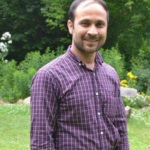 Ahmadullah Archiwal has two Masters (the first in Journalism from the University of Peshawar in Pakistan and the second in International Affairs from the New School University in New York). He has been leading a small organization, OSCAR, which has been the flagship of nonviolent civic mobilization in Afghanistan for the last five years. They are the only organization teaching nonviolence in Afghanistan and have done pioneering work such as generating important contextual materials on the topic, including translating relevant books from English into local languages, writing a book on nonviolence, and conducting relevant workshops in different parts of the country.
Ahmadullah Archiwal has two Masters (the first in Journalism from the University of Peshawar in Pakistan and the second in International Affairs from the New School University in New York). He has been leading a small organization, OSCAR, which has been the flagship of nonviolent civic mobilization in Afghanistan for the last five years. They are the only organization teaching nonviolence in Afghanistan and have done pioneering work such as generating important contextual materials on the topic, including translating relevant books from English into local languages, writing a book on nonviolence, and conducting relevant workshops in different parts of the country.
Course Title: Civic Education
High School: Umara Khan High School, Afghanistan
Abstract: This course aims to equip the students with a basic understanding of nonviolent civic mobilization, in addition to culturally specific tactics of nonviolent resistance. We will begin by discussing the history of nonviolent resistance, examining its effectiveness and the common misconceptions surrounding it. The course will then move to focus on forms of nonviolent resistance that have roots in Afghan culture. We will be reinforcing the idea that nonviolent civic mobilization has historically been used by Pashtuns and others living in the region. Our discussions will range in topic from Abdul Ghafar Khan to Pashtun Nationalism to contemporary civil resistance struggles in the Islamic world and beyond. We will examine the idea that nonviolent resistance is applicable not only in democratic societies, but in societies of all political makeups. The overall goal of the course is to reduce the group’s vulnerability to joining insurgency by educating them in nonviolent civic mobilization.
Learning Gains Survey (LGS) Results:
The LGS aims to measure knowledge gains among course participants. Participants take the Pre-Course Survey at the beginning of the course and take an identical survey (Post-Course) at the end of the course. Included below are the graphed responses to the questions from the Pre-Course and Post-Course Survey showing the percentage that chose the correct answer and the percentage that chose the incorrect answer. 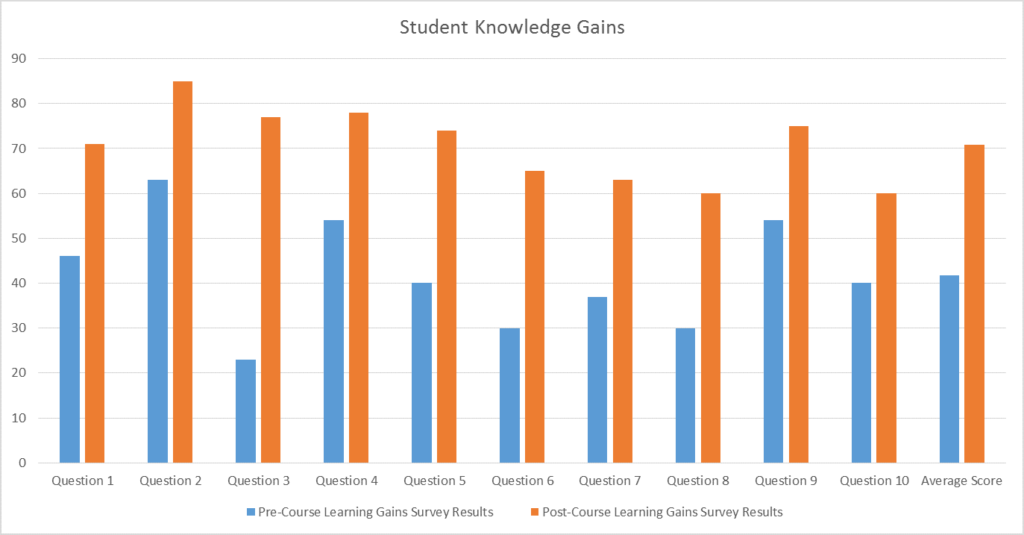
Learning Gains Survey Results Explained:
As you can see in the graph above, the majority of students reported having low levels of familiarity with various civil resistance struggles and tactics when completing the Pre-Course LGS at the start of the course. The average pre-score was 42%. However, by the time students completed the Post-Course LGS, at the end of the course, they reported much higher levels of familiarity with each struggle listed and general civil resistance knowledge. At the end of the course the average score was 71%, which was a 29% increase.
Learning Gains Survey Answer Key:
The following questions were graded using “correct” or “incorrect” answers.
Learning Gains Survey Questions:
1. Nonviolent civic mobilization is about pacifying the target group
2. Nonviolent civic mobilization takes place without taking into consideration the political and social condition in a society
3. Nonviolent civic mobilization campaigns are more effective than violent campaigns
4. Nonviolent civic mobilization campaigns are waged only for political motives
5. A charismatic leader is a must have for the success of a nonviolent campaign
6. Conflict is inevitable in human life
7. It’s only the rulers who have power in a society
8. The impact of violent campaigns is durable and long lasting
9. All nonviolent civic mobilization movements take place spontaneously
10. Marches and protests are the most effective means for nonviolent campaigns
Go back to the main ICNC High School Curriculum Fellowship page.
Russian dissident Vladimir Kara-Murza talks about nonviolent resistance
ICNC sat down recently with renowned Russian dissident Vladimir Kara-Murza, vice chairman of the pro-democracy NGO, Open Russia. Kara-Murza, who has been in the Putin regime’s crosshairs for years, shared his thoughts on various aspects of nonviolent civil resistance in his native country.
Venezuela’s naked protester and other forms of nonviolent resistance
Rwandan women’s activist to challenge Kagame in August polls
Syria: Support for nonviolent fighters key to ending the war
James Lawson Institute
This is a legacy page for the James Lawson Institute (JLI), which ICNC organized in 2013 and 2014.
ICNC organized and ran the James Lawson Institute in 2013 and 2014 as an eight-day program for North American activists and organizers dedicated to sharing knowledge of movement organizing and civil resistance. You can learn more about its process of development here. Following tremendous success with ICNC’s incubation, the James Lawson Institute launched as an independent entity in 2017 offering intensive study of civil resistance to activists in the North American context. Information about the James Lawson Institute and its programs can be found here.
Below is the announcement of the 2014 JLI, organized by ICNC.
The James Lawson Institute:
An Eight-Day Experience in Strategic Evaluation of Nonviolent Civil Resistance
August 16-23, 2014 | Nashville, Tennessee
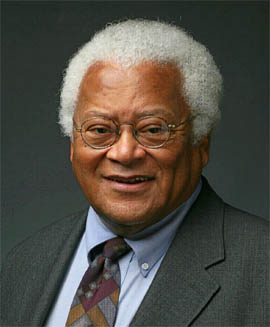 In the 1960s, the Reverend James Lawson organized and led one of the most effective campaigns of nonviolent civil resistance in the 20th century: the Nashville lunch counter sit-ins for the US Civil Rights Movement. In the years that followed he was involved in strategic planning of numerous other major campaigns and actions and was called “the mind of the movement” and “the leading theorist and strategist of nonviolence in the world” by Dr. Martin Luther King, Jr.
In the 1960s, the Reverend James Lawson organized and led one of the most effective campaigns of nonviolent civil resistance in the 20th century: the Nashville lunch counter sit-ins for the US Civil Rights Movement. In the years that followed he was involved in strategic planning of numerous other major campaigns and actions and was called “the mind of the movement” and “the leading theorist and strategist of nonviolence in the world” by Dr. Martin Luther King, Jr.
The US Civil Rights movement, the US Labor movement in the 1930s, the women’s suffrage movement, the anti-nuclear movement, and other move ments in North America and abroad in the decades since did not just engage in activism. They organized people, mobilized them by the millions, and galvanized participation from a broad cross section of society. Collectively, these movements provide a model for how nonviolent change can be organized to win rights, justice and change in very adverse conditions.
ments in North America and abroad in the decades since did not just engage in activism. They organized people, mobilized them by the millions, and galvanized participation from a broad cross section of society. Collectively, these movements provide a model for how nonviolent change can be organized to win rights, justice and change in very adverse conditions.
The James Lawson Institute (JLI) looks at these past movements, and numerous contemporary ones around the world, from a strategic perspective, and engages participants in depth about a wide variety of aspects of organizing and activism in North America. It is a structured seminar to discuss what kinds of strategies, tactics and practices are effective for people organizing movements and waging civil resistance campaigns.
TOPICS COVERED:
Topics to be discussed include:
- The Current State of North American Organizing and Activism
- The Core Dynamics of Nonviolent Civil Resistance
- Movement Formation, Sustainability, and Coalition Building
- Strategy, Tactics, and Planning
- Movement Language and Media
- Managing Repression, Radical Flanks, and Maintaining Nonviolent Discipline
The content is a mixture of theory and practice and is based on the experiences of numerous activists and organizers around the world as well as leading scholarship in the field of social movement and civil resistance. The daily schedule usually includes two presentations and two exercises, as well as an evening program. We will learn from case studies, theoretical frameworks, participant exercises, planning tools, academic research, and each other.
Sessions will be facilitated by James Lawson and the advisors and staff of the International Center on Nonviolent Conflict (ICNC).
APPLICATIONS:
Who Should Apply: North American organizers and activists who are working to organize within the United States or Canada.
The educational environment of the Institute will be rigorous, and we encourage participants to apply who want to share, learn, and work hard for the full eight days. Also, at least half of the learning during the week will draw from participants’ experiences and insights so a good base of field work and/or study in grassroots organizing, movement building, campaign organizing, nonviolent civil resistance, media work, or related areas will be very helpful.
The original application deadline of April 13, 2014 has now been extended to April 20, 2014. No applications will be accepted after April 20, 2014.
You can stay up to date with all the news on the James Lawson Institute (JLI) 2014 on our Facebook page and Twitter feed. You can view the JLI 2014 flyer here. If you have any questions, or would like to request a paper application, please send an email to jli@nonviolent-conflict.org .
When: August 16-23, 2014
Where: Scarritt Bennett Center, Nashville,Tennessee
COST AND SCHOLARSHIPS:
Registration fees for participants are as follows:
$500 – Individuals employed by media, commercial or government organizations
$350 – Individuals with large nonprofit organizations and foundations
$200 – Individuals with local nonprofit and educational organizations
$100 – Organizers, activists and individuals not institutionally affiliated
The JLI registration fee is the only charge requested. Accommodation, all meals, and learning materials for the entire course are paid by the International Center on Nonviolent Conflict (ICNC). Accommodation is in the dormitories at the Scarritt Bennett Center and meals are arranged through the Scarritt Bennett Center.
In addition to the JLI registration fee, participants or their sponsoring organizations are expected to cover their own travel expenses to and from Nashville, Tennessee. However, if an applicant or sponsoring organization cannot afford to pay for travel and/or registration costs, need-based scholarships are available and can be applied for in your JLI application.
Learn more about Rev. James Lawson and nonviolent civil resistance:
“‘A Totally Moral Man'”: The Life of Nonviolent Organizer Rev. James Lawson” by Peter Dreier, Truthout.org, August 15, 2012
ICNC Special Report Series
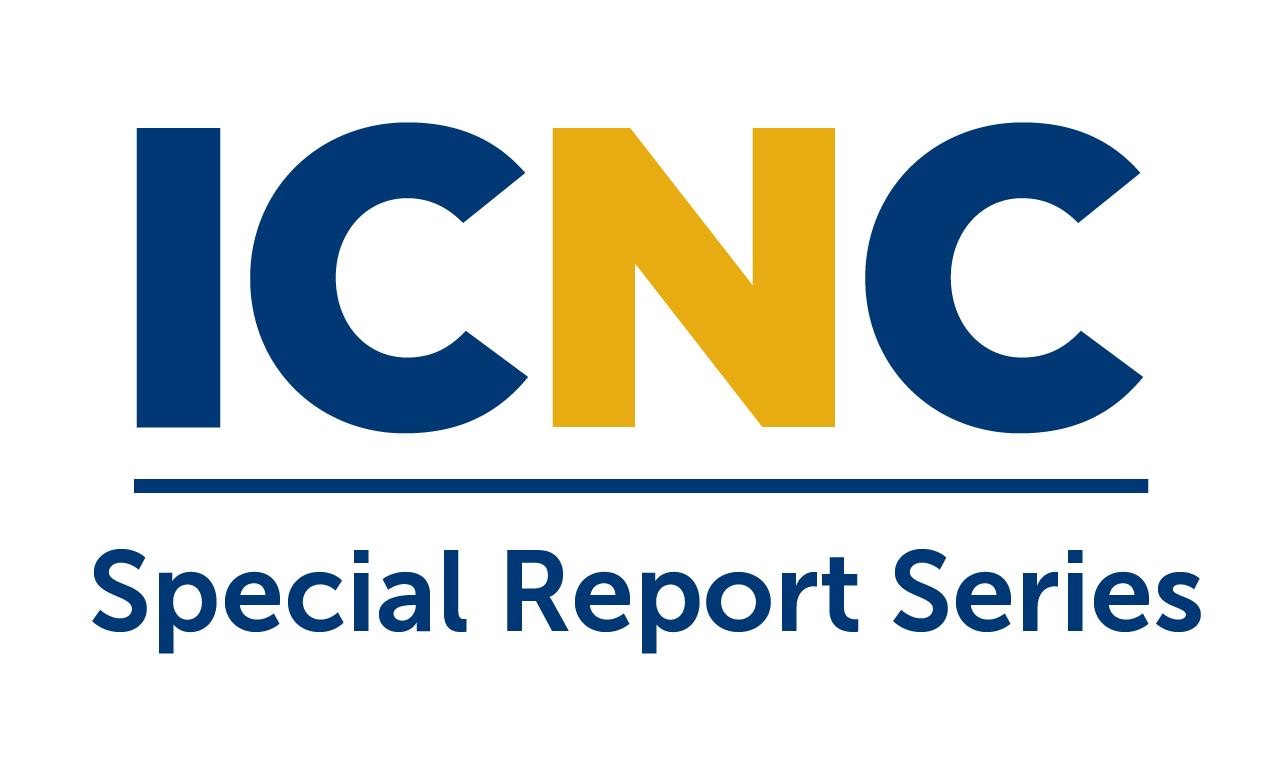 Launched in 2017, ICNC’s Special Report Series aims to bridge the gap between academic, policy and other practitioner communities. ICNC Special Reports draw on cutting-edge research to cover topics pertinent to the ongoing policy discussions and practitioners’ debates around issues relevant to civil resistance movements, grassroots campaigns and nonviolent struggles taking place around the world.
Launched in 2017, ICNC’s Special Report Series aims to bridge the gap between academic, policy and other practitioner communities. ICNC Special Reports draw on cutting-edge research to cover topics pertinent to the ongoing policy discussions and practitioners’ debates around issues relevant to civil resistance movements, grassroots campaigns and nonviolent struggles taking place around the world.
Published Reports
Powering to Peace: Integrated Civil Resistance and Peacebuilding Strategies
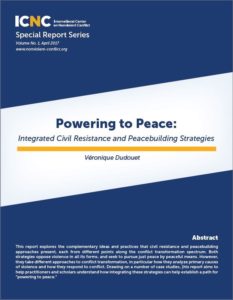 By: Véronique Dudouet
By: Véronique Dudouet
Date of publication: April 2017 (44 pages)
Series Editor: Maciej Bartkowski, Senior Director for Education and Research
Volume Editor: Amber French, Manager of Editorial Initiatives
This report explores the complementary ideas and practices that civil resistance and peacebuilding approaches present, each from different points along the conflict transformation spectrum. Both strategies oppose violence in all its forms, and seek to pursue just peace by peaceful means. However, they take different approaches to conflict transformation, both in their analyses of the primary causes of violence and how they respond to conflict. The report then describes how civil resistance and peacebuilding can work in tandem throughout the four stages of transformation of asymmetric conflicts. Concrete examples are provided to illustrate the respective functions of constructive conflict (through civil resistance) and conflict mitigation (through peacebuilding) in transitions from latent to overt conflict, from resistance to dialogue and negotiation, and from conflict settlement to sustainable peace.
Download free PDF
Buy the book
Forthcoming Special Reports
ICNC is excited to announce a forthcoming special report by Erica Chenoweth and Evan Perkoski entitled “Nonviolent Resistance & the Prevention of Mass Atrocities in Popular Uprisings.” The report is expected to be released in the ICNC Special Report Series in late fall 2017.
Abstract
Since the Arab Spring, states, civilians, and many nongovernmental organizations have watched as contentious events play out across the globe. Many wondered how these events would unfold, which would succeed, and just as significantly, whether those contesting power would come to be victimized by the very governments they were protesting against. In this report we seek to understand why some popular uprisings experience mass killings and others do not. In particular, we focus in on the characteristics of violent and nonviolent uprisings to better understand the types of contentious events that are most likely to elicit government crackdowns. Analyzing new data on state violence and popular uprisings from 1955 to 2013, we find that mass killings are associated with particular country and regime characteristic. Preexisting subgroup discrimination and certain types of authoritarian regimes, for instance, are important predictors of governmental violence. Yet, characteristics of popular uprisings are significant as well. Not every uprising is equally threatening to regime elites, and some – like violent movements with foreign support – are much more likely to elicit mass killings than others. In turn, nonviolent resistance, though oftentimes constituting an even greater challenge to oppressive regimes than armed struggle, tends to also decrease the likelihood of mass atrocities. These findings therefore have important implications for policymakers seeking to prevent mass atrocities, and for activists seeking to stay safe in the course of a popular uprising.
Nonviolent Action and the “New Story”: Completing the Circle for an Unstoppable Movement
This webinar occurred on Thursday, June 22, 2017 from 12-1 p.m. EST.
Watch the webinar:
Webinar summary:
We are in the throes of a “paradigm shift” from an “old story” of materialism and separateness, in which competition and violence are inevitable, to a “new story” drawing on both new scientific understandings and ancient wisdom traditions that value nonviolence. In this new story, we can see again that we are deeply connected to one another and the natural world, and that the kind of nonviolent and just society Martin Luther King called the “Beloved Community” is not just desirable, but possible. This growing view, promoted by thought leaders like Thomas Berry and Joanna Macy, encourages a “Great Turning” in how we see and engage the world, and it does so at a level deeper than just rational argument. It aims, as Gandhi said, to “move the heart also.”
At the same time, nonviolent action and civil resistance are spreading rapidly around the world and new strategies with innovative tactics, newly empowered communities, new institutions, and new victories for justice, freedom, and rights are being won in ways that the old story would say is impossible.
In this webinar, we will discuss why the times are propitious for a vital change in the cultural stories we tell ourselves and will explore the role of nonviolent action in both completing the story and getting it accepted.
This connection is too often neglected. Currently, the social theorists working on the new story know little about nonviolent social change movements. Many nonviolent movement organizers and theorists do not pay much attention to either the new story or the underlying cultural assumptions that support or hinder movements for social change. What could be accomplished if both efforts realized their overlap and connection to each other? We are ready for a breakthrough!
Presenter:
 Professor Michael Nagler is the founder and president of The Metta Center for Nonviolence. He also serves as the co-host of Nonviolence Radio, which airs every other Friday on KWMR FM radio, which you can subscribe to via iTunes or Stitcher. In addition, Nagler is editor of Daily Metta, a daily reflection on Gandhi’s words which you can find at this link. He is also the author of The Search for a Nonviolent Future and The Nonviolence Handbook, among other works.
Professor Michael Nagler is the founder and president of The Metta Center for Nonviolence. He also serves as the co-host of Nonviolence Radio, which airs every other Friday on KWMR FM radio, which you can subscribe to via iTunes or Stitcher. In addition, Nagler is editor of Daily Metta, a daily reflection on Gandhi’s words which you can find at this link. He is also the author of The Search for a Nonviolent Future and The Nonviolence Handbook, among other works.
Relevant Readings:
- David Loye, Ed. The Great Adventure: Toward a Fully Human Theory of Evolution. SUNY, 2004.
- Frans de Waal. The Age of Empathy: Nature’s Lessons for a Kinder Society. Random House, 2010
- David Korten. The Great Turning: From Empire to Earth Community. 2007
- Erica Chenoweth and Maria Stephan. Why Civil Resistance Works: The Strategic Logic of Nonviolent Conflict. Columbia University, 2011.
- Michael Nagler. The Search for a Nonviolent Future. New World Library, 2001.
Hungary: Thousands in Budapest protest legislation targeting Soros-founded university
Protests sweeping South America show rising anti-government anger
Turkey arrests dozens over referendum protests
France: Chinese-French millennials protest police shooting
What Uganda’s Poor and “Under-Educated” Activists Can Teach People Resisting Autocrats Across the World
This “Voices from the Field” webinar occurred on Wednesday, May 24 from 12-1 p.m. EST.
Watch the webinar below:
Webinar summary:
This webinar will discuss ongoing struggles in Uganda, including successes in organizing and training peasant farmers, as well as the role of activists and leaders from the informal transportation sector. These campaigns are led and waged by the most underprivileged groups in society, with counterparts across the global south. These budding and sustained movements are evidence that marginalized community-led movements add longevity and effectiveness to broader struggles for change.
Presenters:
 Phil Wilmot is husband to Suzan Abong Wilmot. Together, they co-founded Solidarity Uganda with a group of Ugandan activists. The organization aims to train social change and environmental advocacy groups throughout Uganda in the skills, methods, and concepts of nonviolence. Phil and Suzan reside in Lira, Uganda with their daughter Aceng Nadia. They have been working with a number of campaigns and movements around the country, including informal transport workers, farmers, urban activists, and others to teach nonviolent resistance, strategies and tactics and to build people’s power to improve people’s lives in local communities in Uganda. He has trained hundreds of people in nonviolent strategy and movement building, especially in East Africa. He writes for Waging Nonviolence and Mobilisation Lab and recently published a book on his 2014 detainment in a Ugandan jail called, A Wolf Dressed in Sheepskin: A White Guy’s Dilemma in a Ugandan Jail Cell. He is also an advisor for Beautiful Rising and one of the LIN 2016 Fellows, along with Suzan Abong Wilmot and Daniel Tulibagenyi.
Phil Wilmot is husband to Suzan Abong Wilmot. Together, they co-founded Solidarity Uganda with a group of Ugandan activists. The organization aims to train social change and environmental advocacy groups throughout Uganda in the skills, methods, and concepts of nonviolence. Phil and Suzan reside in Lira, Uganda with their daughter Aceng Nadia. They have been working with a number of campaigns and movements around the country, including informal transport workers, farmers, urban activists, and others to teach nonviolent resistance, strategies and tactics and to build people’s power to improve people’s lives in local communities in Uganda. He has trained hundreds of people in nonviolent strategy and movement building, especially in East Africa. He writes for Waging Nonviolence and Mobilisation Lab and recently published a book on his 2014 detainment in a Ugandan jail called, A Wolf Dressed in Sheepskin: A White Guy’s Dilemma in a Ugandan Jail Cell. He is also an advisor for Beautiful Rising and one of the LIN 2016 Fellows, along with Suzan Abong Wilmot and Daniel Tulibagenyi.
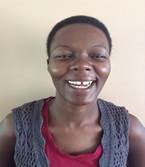 Scovia Arinaitwe is a director and trainer of Solidarity Uganda. An organizer with the Women’s Movement and The Jobless Brotherhood, Scovia works with people of all social classes in Kampala. She ran an activist-centered rapid response system for political prisoners which also functioned to build bridges between movements.
Scovia Arinaitwe is a director and trainer of Solidarity Uganda. An organizer with the Women’s Movement and The Jobless Brotherhood, Scovia works with people of all social classes in Kampala. She ran an activist-centered rapid response system for political prisoners which also functioned to build bridges between movements.
Nonviolent Direct Action: A Course Taught by ICNC High School Curriculum Fellow 2016
Elizabeth “Betsy” Cepparulo, an ICNC High School Curriculum Fellow, developed, offered and moderated a course on the introduction to civil resistance in 2016 as part of the ICNC High School Curriculum Fellowship.
The information featured below was submitted as part of the fellowship requirement that, among others, included creating a detailed course proposal, developing curriculum content, designing evaluation tools, selecting participants and extensive moderation throughout the course.
Learn more by clicking on the topic links:
Go back to the main ICNC High School Curriculum Fellowship page.
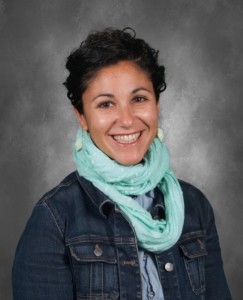 Elizabeth “Betsy” Cepparulo is a History teacher at Wilmington Friends School, in Wilmington, Delaware. She specializes in a course called Global Peace and Justice, which teaches world history through topics such as women’s rights, civil disobedience, social justice, and peace in a time of conflict. Prior to teaching, Betsy was an attorney in Pennsylvania for four years, focusing mainly on family law and criminal defense. She has her BA from Skidmore College, her JD from Temple University, and her Masters in Education Policy and Leadership from Stanford University.
Elizabeth “Betsy” Cepparulo is a History teacher at Wilmington Friends School, in Wilmington, Delaware. She specializes in a course called Global Peace and Justice, which teaches world history through topics such as women’s rights, civil disobedience, social justice, and peace in a time of conflict. Prior to teaching, Betsy was an attorney in Pennsylvania for four years, focusing mainly on family law and criminal defense. She has her BA from Skidmore College, her JD from Temple University, and her Masters in Education Policy and Leadership from Stanford University.
Course Title: Nonviolent Direct Action
High School: Wilmington Friends School, Delaware
Abstract: In this course, students will explore civil resistance movements from both practical and personal standpoints. Practically, students will learn concrete steps to engaging in a nonviolent direct action (NVDA) campaign. This will differentiate civil resistance and NVDA from passivity, which is sometimes confused with peaceful resistance. Personally, students will study Gandhi and Indian Independence, James Lawson and MLK Jr with the Civil Rights movement, and finally Colombian civil resistance in the face of violence. Students will write their own NVDA plans, contemplate a “peace force,” and explore the pros and cons of fighting violence and oppression with active peace. In the end, students will be able to articulate concrete steps and nuanced perspectives in ending conflict with civil resistance.
Learning Gains Survey Results:
The Learning Gains Survey aims to measure knowledge gains among course participants. Participants take the Pre-Seminar Survey at the beginning of the course and take an identical survey (Post-Seminar) at the end of the course. Included below is the graphed responses to the questions from the Pre-Seminar and Post-Seminar Surveys. In general, the surveys illustrate a positive trend in the knowledge gains achieved by participants as a result of the course.
Learning Gains Survey Answer Key:
The following questions were answered on a scale of 1-5, where:
1= None 2 = A little bit 3= adequate 4= Good 5 = Excellent
Learning Gains Survey Questions:
- Rate your level of familiarity with nonviolent direct action as a specific strategy for achieving change
- Rate your level of familiarity with the definition of Nonviolent direct action
- Rate your level of familiarity with Gandhi’s methodology for achieving nonviolent civil resistance
- Rate your level of familiarity with India’s struggle for independence
- Rate your level of familiarity with James Lawson’s techniques for nonviolent civil resistance
- Rate your level of familiarity with Martin Luther King, Jr’s techniques for nonviolent civil resistance, specifically his four-step plan
- Rate your level of familiarity with nonviolent direct action during the civil rights movement in the American south
- Rate your level of familiarity with using civil resistance against violent groups
- Rate your level of familiarity with the “comunidades de paz,” in Colombia and their methods of civil resistance
- Rate your level of familiarity with “peace forces” as an alternative for a military army
- Rate your level of interest in nonviolent civil resistance as an alternative to war
- Rate your likelihood of using nonviolent tactics in the future to create change that you believe in
Learning Gains Survey Results Explained:
As you can see in the graph above, the majority of students reported having low levels of familiarity with various civil resistance struggles and tactics when completing the Pre-Seminar LGS at the start of the course. However, by the time students completed the Post-Seminar LGS, at the end of the course, they reported much higher levels of familiarity with each struggle listed and general civil resistance knowledge. The overall civil resistance knowledge level of the students more than doubled as a result of their experience in this course.
Go back to the main ICNC High School Curriculum Fellowship page.
Philippines’ president Rodrigo Duterte reignites martial law fears
French Guiana: Launches from Kourou temporarily suspended by social unrest
U.K.: Solidarity with Europe as 100,000 march on parliament
Venezuela: Ranks of political prisoners grow as democracy ebbs
Hungary: Thousands march in support of university in Budapest
Transforming Women through Civil Resistance and Nonviolent Activism
This “Voices from the Field” webinar occurred on Wednesday, May 10 from 10-11:30 a.m. EST.
Webinar summary:
This interactive panel will discuss women’s movements fighting for better livelihoods, ending violence against women, and supporting inclusion and rights in India. Participants will learn about current majority-women campaigns and movements in West Bengal and Bhopal involving thousands. Discussants will share insightful observations about the challenges of being a solidarity bridge-builder between grassroots movements and global support networks, as well as about the types of tactics and strategic impact that women have on movements, including their leadership and planning.
Presenters:
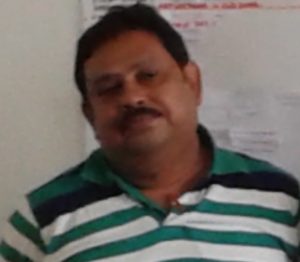 Arnab Chakraborty works at a national NGO called PRADAN (www.pradan.net) with and for extremely poor women to create robust community organizations to stimulate change in each member who individually feels powerless, each with a deeply limiting sense of self-efficacy. He helps them create an environment of togetherness and oneness, lending support to and reinforcing each other and more easily and readily learn from each other. These women working together creates synergy, a social capital, a social and political space for them to change the distribution of power in society. All these involves “enabling” women to take charge of their life around the economic and socio-political realm. This is to ensure that each poor woman is supported to develop livelihood options enhancing her control over economic resources; effectively participates in local governance systems and builds gender-sensitive accountability processes; negotiates intra-family issues that hinder equal access to rights for women and girls, including addressing domestic violence and access rights and entitlements enshrined in the Constitution. Arnab is also a 2016 LIN Fellowship member and received a small grant to develop and implement training on nonviolent action and resistance to Adhivasi women in West Bengal. The grant supported several TOT workshops and training and action plans distributed to many thousands of women who began their public nonviolent resistance in March 8 on International Women’s Day.
Arnab Chakraborty works at a national NGO called PRADAN (www.pradan.net) with and for extremely poor women to create robust community organizations to stimulate change in each member who individually feels powerless, each with a deeply limiting sense of self-efficacy. He helps them create an environment of togetherness and oneness, lending support to and reinforcing each other and more easily and readily learn from each other. These women working together creates synergy, a social capital, a social and political space for them to change the distribution of power in society. All these involves “enabling” women to take charge of their life around the economic and socio-political realm. This is to ensure that each poor woman is supported to develop livelihood options enhancing her control over economic resources; effectively participates in local governance systems and builds gender-sensitive accountability processes; negotiates intra-family issues that hinder equal access to rights for women and girls, including addressing domestic violence and access rights and entitlements enshrined in the Constitution. Arnab is also a 2016 LIN Fellowship member and received a small grant to develop and implement training on nonviolent action and resistance to Adhivasi women in West Bengal. The grant supported several TOT workshops and training and action plans distributed to many thousands of women who began their public nonviolent resistance in March 8 on International Women’s Day.
 Reena Shadaan is a doctoral candidate in the Faculty of Environmental Studies at York University (Toronto, Canada). Her work explores gender and environmental racism, environmental health, and reproductive justice. Since 2013, she has been Coordinating Committee member of the North American solidarity tier of the International Campaign for Justice in Bhopal (ICJB) – an environmental justice and corporate accountability campaign that is led by survivors of the 1984 Bhopal gas disaster, and seeks justice for the ongoing disaster in Bhopal, India.
Reena Shadaan is a doctoral candidate in the Faculty of Environmental Studies at York University (Toronto, Canada). Her work explores gender and environmental racism, environmental health, and reproductive justice. Since 2013, she has been Coordinating Committee member of the North American solidarity tier of the International Campaign for Justice in Bhopal (ICJB) – an environmental justice and corporate accountability campaign that is led by survivors of the 1984 Bhopal gas disaster, and seeks justice for the ongoing disaster in Bhopal, India.
Struggling for Livelihood, Dignity, and Free and Fair Elections in Africa: Spotlight on Kenya
This “Voices from the Field” webinar is scheduled for Thursday, October 5 from 10am to 11:30am ET.
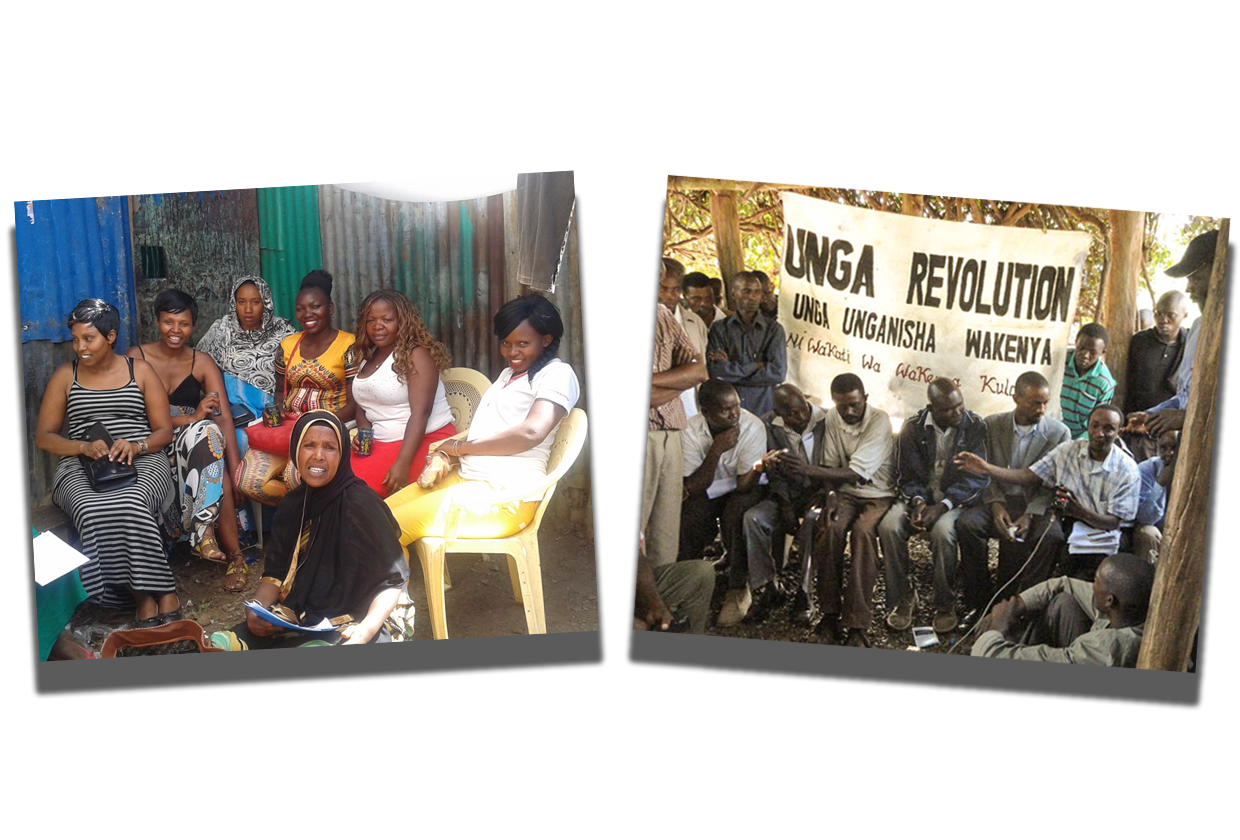 Webinar summary:
Webinar summary:
With the recent presidential elections nullified by the Supreme Court, Kenyans are struggling for free, fair and verifiable elections. Without these, the risk of violence rises. This webinar will focus on grassroots coalitions like Kenyans for Tax Justice that are using strategic nonviolent action for a variety of goals: to ensure free elections; to end extra-judicial killings and violence against women and youth; and to achieve basic human rights enshrined in the Kenyan constitution but not realized for most of the country’s population. Many citizens in countries around the world, including democracies and those with more authoritarian governments, are grappling with the same challenges. The webinar will offer practical strategies, insights, and lessons learned that are relevant for activists and organizers struggling for justice in Africa and around the world.
Click here to register
Presenters:
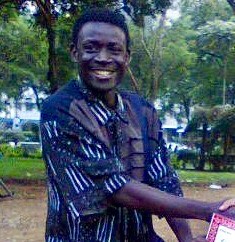 Julius Okoth is a social justice crusader and currently coordinator of Kenyans for Tax Justice movement. He believes in social inclusion, respect for human rights and effective participation of all citizens in democratic and development processes and in governance of public affairs. Together with his fellow citizens at the grassroots, he has been advocating for a system of Kenya’s government that is representative, by demanding national or county government to do something or stop them doing something for the sake of fair, just and equitable Kenyan society directed towards fruitful relationship among human beings and between humans and the Earth.
Julius Okoth is a social justice crusader and currently coordinator of Kenyans for Tax Justice movement. He believes in social inclusion, respect for human rights and effective participation of all citizens in democratic and development processes and in governance of public affairs. Together with his fellow citizens at the grassroots, he has been advocating for a system of Kenya’s government that is representative, by demanding national or county government to do something or stop them doing something for the sake of fair, just and equitable Kenyan society directed towards fruitful relationship among human beings and between humans and the Earth.
Julius and Kenyans for Tax Justice received a LIN 2016 Fellowship and have successfully developed a number of trainers and experts on nonviolent resistance that are spreading the knowledge throughout Kenya in preparation for the August 2017 elections. They are seeking to work with communities and interested parties to oppose the Value Added Tax (VAT) that has recently been imposed on school textbooks, a move which has hit the poorest of the poor school-going children the hardest. The project will work with communities to ensure that these new taxes are abolished, and education is made accessible to all – using nonviolent means of resistance.
It is instructive to note that in Africa, only Kenya and South Africa levy Value Added Tax on school textbooks. This has made books very expensive, considering that majority of Kenyans live below the poverty line. This effort seeks to ensure that books are affordable, and education is accessible to all. They also work on broader rights related to basic needs, violence against women, and human rights.
 Ruth Mumbi is a social justice activist, a community organiser and a strong defender of human/women’s rights. She was born and brought up in the informal settlement of Mathare, which is a collection of slums, and the second largest informal settlement in Nairobi, the capital city of Kenya. Ruth is the founder and current National Coordinator of Bunge la Wamama, a women’s chapter of Bunge la Mwananchi, a movement that conducts strong advocacy and campaigning on issues of social justice and accountability in different parts of Kenya.
Ruth Mumbi is a social justice activist, a community organiser and a strong defender of human/women’s rights. She was born and brought up in the informal settlement of Mathare, which is a collection of slums, and the second largest informal settlement in Nairobi, the capital city of Kenya. Ruth is the founder and current National Coordinator of Bunge la Wamama, a women’s chapter of Bunge la Mwananchi, a movement that conducts strong advocacy and campaigning on issues of social justice and accountability in different parts of Kenya.
Bunge la Wamama is also a member of the Kenyans for Tax Justice Coalition. Ruth Mumbi was a finalist for the 2013 Front Line Award for Human Rights Defenders at Risk and is a recognized women human rights defender in Kenya that works with grassroots communities. She facilitates community dialogue on social justice issues by empowering my community with knowledge, mobilizing them to expose malpractices by state officers, condemn human rights violations and demand accountability from the government.
Ruth also guides the women in the informal settlements on how to make demands on state agencies, including demands for the arrest of persons who have committed sexual and gender based violence (SGBV) and where police failed to act; and demand justice for the victims and accountability from the police, by linking up victims of SGBV to human rights organisations where they can be offered free legal representation in court. Ruth attended the Centre for Applied Human Rights at the University of York, UK in 2014. Her position as a community leader has led to harassment, attacks, and ongoing threats.
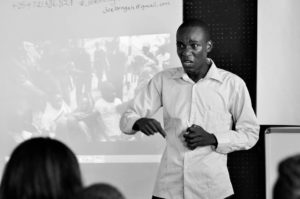 Sakwa Makanda is a social justice activist in Kenya and a leader in the Kenyans for Tax Justice western chapter. His responsibilities include training and capacity building for residents who are mostly peasant farmers, boda boda drivers, and community leaders involved in building nonviolent social movements. In the past, he has been involved in building the unga revolution, a nonviolent campaign advocating for the reduction of prices for basic foodstuffs (unga is a staple of the local population’s diet); occupation of the Kenyan parliament fighting for the reduction of MPs’ salaries; and organizing the Bunga La Mwanchi (an umbrella coalition of a nonviolent movement), and Kenyans for Tax Justice chapters across the country. The goals of these mobilizations are freedom of association and speech. In the course of these struggles, many activists have been arrested, including Sakwa who has appeared in court five times on trumped up charges.
Sakwa Makanda is a social justice activist in Kenya and a leader in the Kenyans for Tax Justice western chapter. His responsibilities include training and capacity building for residents who are mostly peasant farmers, boda boda drivers, and community leaders involved in building nonviolent social movements. In the past, he has been involved in building the unga revolution, a nonviolent campaign advocating for the reduction of prices for basic foodstuffs (unga is a staple of the local population’s diet); occupation of the Kenyan parliament fighting for the reduction of MPs’ salaries; and organizing the Bunga La Mwanchi (an umbrella coalition of a nonviolent movement), and Kenyans for Tax Justice chapters across the country. The goals of these mobilizations are freedom of association and speech. In the course of these struggles, many activists have been arrested, including Sakwa who has appeared in court five times on trumped up charges.
Curriculum Fellowships for Online Courses
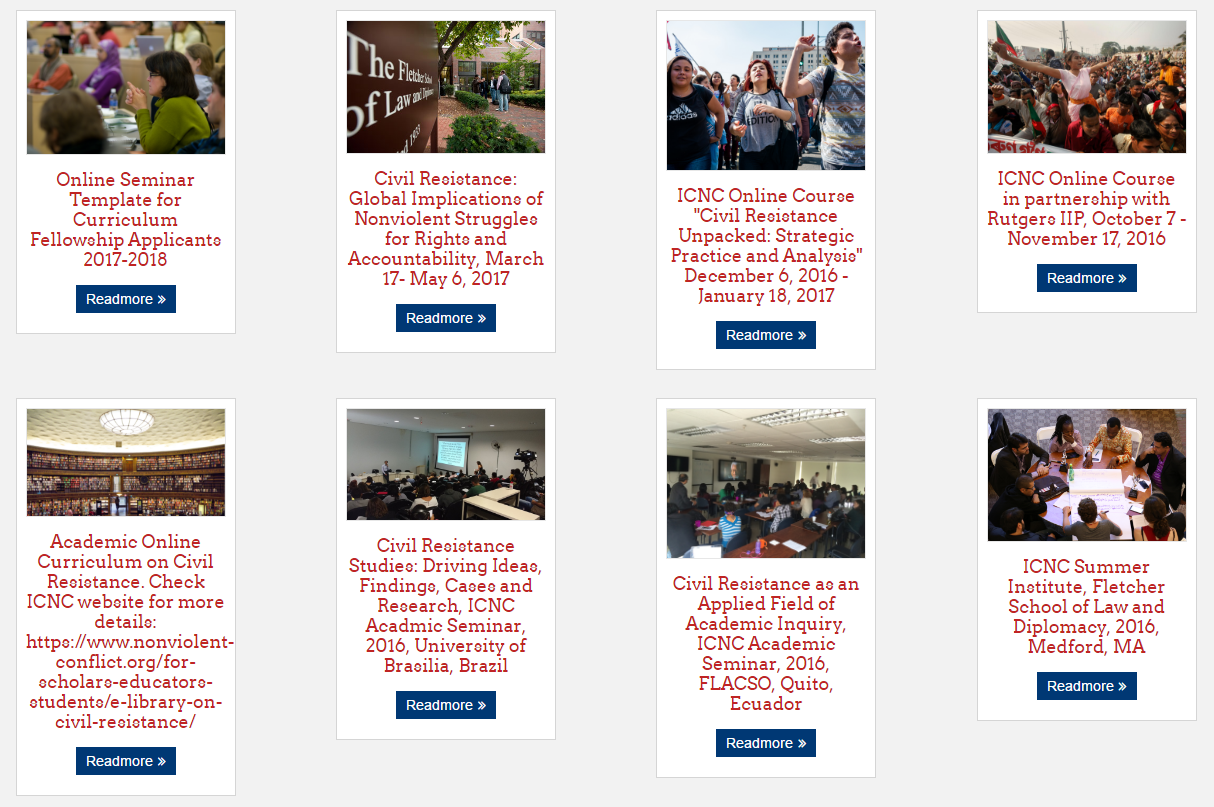 Applicants interested in developing and teaching online seminars
Applicants interested in developing and teaching online seminars
ICNC is strongly interested in supporting the expansion of online teaching on civil resistance, particularly in situations where it is difficult or impossible to develop a formal classroom-based course at a local academic institution. In such cases, ICNC Curriculum Fellowships aims to encourage and support interested instructors to set up an online seminar on civil resistance and offer it to a select group of interested learners.
Interested also in teaching classroom-based courses? Check this curriculum fellowship for classroom-based courses.
Online seminar consists of a minimum of 5 weekly sessions on civil resistance where participants are asked to review relevant session notes, videos, and readings and then engage in forum discussions moderated by a seminar instructor.
The curriculum fellowship is designed to plant a seed for continued education on civil resistance. Applicants should therefore be able to demonstrate that their curriculum is part of a long-term, sustainable teaching plan, as opposed to being a one-off course offering.
Application deadline: April 30, 2017.
Click the links to learn more:
- Eligibility
- Award
- Fellowship Components
- Recommended Resources
- How to Apply
- Fellowship Distribution
- Past Curriculum Fellows
Eligibility
- Scholars, and instructors from colleges and universities around the world who are interested in expanding their institutions’ existing curriculum to cover civil resistance.
- Educators and trainers who might be loosely affiliated with academic institutions at home or abroad but have academic-based training or pedagogical and teaching experience, particularly in regions and countries with restrictive civic spaces or conflicts.
Award Details
In 2017, up to seven curriculum fellowships, each in the amount of $1,300, will be offered on open, merit and competitive bases to qualified applicants to develop:
- an online seminar on civil resistance that will be offered to students and interested learners from applicant’s university, town, district, country or the region. The online seminar would be given through the designated ICNC’s online platform.
In addition to a curriculum fellowship grant, awardees will receive a package with academic books and documentaries on civil resistance. ICNC provides these resources free of charge as part of its curriculum fellowship package to help its fellows develop the content on and teach civil resistance.
Teaching for 2017/2018 ICNC Curriculum Fellowships is expected to take place either in Summer, Fall 2017 or Winter, Spring 2018.
As part of the fellowship it is expected that:
a. Perspective applicant will access and review the Curriculum Fellowship Template for an Online Seminar [enrollment key: Onlinetemplate2017]. Once selected, fellow will be expected to develop a similar online seminar, though customized to fit their own teaching environment, learning objectives and audience.
b. Limited technical assistance from ICNC will be available to help fellows learn basic ICNC Moodle or Open edX functionality to be able to build their own courses.
c. fellow is expected to develop original content for and run an online seminar
d. proposal for the online seminar will, at minimum, include teachable content (such as audio/videos, readings, exercises, forum discussions) on:
- what civil resistance is, including prevailing misconceptions
- historical record and effectiveness of civil resistance
- strategies and tactics of civil resistance
- dynamics of civil resistance including but not limited to the phenomenon of backfire, defections, movement mobilization, sustainability and/or tactical innovation and sequencing
e. fellow moderates the course online in its different forums where learners comment on the materials reviewed and exchange ideas about specific topics and respond to moderator’s questions.
f. fellow interacts with learners via regular, live video-conferencing and creative online content (e.g. case studies/exercises) to ensure learners’ active engagement and to reduce attrition from the online course once it begins
g. no less than 10 and no more than 20 students per fellow are actively engaged throughout the online seminar to ensure effective course moderation and supervision
h. materials on civil resistance that a fellow selects, develops and uploads into online seminar can be in language other than English (check recommended resources) though the initial curriculum proposal for ICNC consideration must be in English
i. forum conversations and moderation can be conducted in a language other than English
j. fellow prepares and shares with ICNC bi-weekly English-language reports on the progress of the online seminar, including participants’ interactions in discussion forums and their work on seminar assignments
k. fellow is encouraged to arrange an online guest speaker who will present on a selected topic on civil resistance
l. fellow develops online evaluation instrument to be used to assess progress in students’ learning about civil resistance
- template of a pre-seminar learning gains survey (distributed prior to the start of the seminar)
- template of a post-seminar learning gains survey (distributed at the end of the seminar)
m. fellow develops online final course evaluation to solicit students’ feedback on the course content on civil resistance
Review:
- template of a final course evaluation
n. fellow submits a final report to ICNC soon after the course or curriculum unit ends. The report will summarize content on civil resistance delivered, including any innovative teaching tools used, completed assignments, aggregate results from the students’ learning gains surveys, results from the final evaluation and general lessons learnt
How to Apply
To be considered applicants should review ICNC recommended list of resources, fill out the online application form, submit CV and curriculum proposal, and other information as requested.
APPLY for the Online Seminar Fellowship
The curriculum proposal should include a detailed description of the content for at least five weekly-based online sessions on civil resistance where participants are asked to review a relevant session description, videos, and readings and engage in forum discussions moderated by a seminar instructor. Once the applicant is selected and becomes familiar with the ICNC online learning management system, s/he will set up the proposed curriculum (with any requested modifications) on the designed space in the ICNC online learning platform.
Application deadline: April 30, 2017 for online courses that will be offered in Summer or Fall 2017 or Winter and Spring 2018.
Recommended List of Resources for Curriculum Proposal Development
In developing the curriculum proposal on civil resistance for either a classroom-based course or online seminar, applicants are strongly encouraged to review the ICNC universal e-classroom for ideas on curriculum content as well as sample syllabi. In addition, applicants may wish to consider integrating into the sessions on civil resistance the following resources:
- ICNC translations: if a proposed course is taught in a language different than English, a fellow will be expected to incorporate translations of civil resistance literature available in the ICNC library, which houses materials on civil resistance in 55 languages.
- A Force More Powerful, 2000 documentary
- Bringing Down a Dictator, 2001 documentary
- Orange Revolution, 2007 documentary
- Erica Chenoweth and Maria Stephan, Why Civil Resistance Works. The Strategic Logic of Nonviolent Conflict (New York: Columbia University Press, 2011)
- Maciej Bartkowski, ed. Recovering Nonviolent History. Civil Resistance in Liberation Struggles (Boulder, CO: Lynne Rienner Publishers, 2013)
- Peter Ackerman, and Jack DuVall, A Force More Powerful: A Century of Nonviolent Conflict (New York: Macmillan, 2000)
- Shaazka Beyerle, Curtailing Corruption. People Power for Accountability and Justice (Boulder, CO: Lynne Rienner Publishers, 2014)
- Veronique Dudouet, ed. Civil Resistance and Conflict Transformation. Transition from Armed to Nonviolent Struggle (London: Routledge, 2015)
- A Diplomat’s Handbook for Democracy Development Support
Check also Selected Bibliography on Civil Resistance (2016)
Applicants’ curriculum proposal – to be submitted as part of the application process – is expected to include a list of resources on civil resistance that an applicant plans to incorporate into an online seminar and is encouraged to identify a potential guest speaker suitable for a proposed civil resistance topic.
Fellowship Distribution
The fellowship grants will be disbursed in two equal installments. The first installment will be made after the course begins, the student enrollment is confirmed and the syllabus with an online civil resistance content has been satisfactorily reviewed by ICNC. The second installment will be made after the online seminar ends and ICNC receives fellow’s final report and results of students’ evaluations pertaining to their learning on civil resistance and course assessment.
Past Curriculum Fellows
2016 Curriculum Fellows
2015 Curriculum Fellows
2014 Curriculum Fellows
Curriculum Fellowships for Classroom-based Courses
Applicants interested in developing and teaching classroom-based courses
ICNC is interested in promoting teaching of civil resistance in academic institutions that have not yet developed coursework on the subject. We especially encourage applications from candidates who do not currently teach civil resistance at the institutions where they want to develop the new curriculum unit. We also prefer that the institutions have at present no courses on civil resistance offered as part of the departmental, school, or university curriculum.
Interested also in teaching online seminars? Check the curriculum fellowship for online courses.
Applicants are expected to develop a curriculum unit on civil resistance that, at minimum, covers five 90-minute sessions over the course of minimum of 5 weeks as part of the undergraduate or graduate course and consists of either instructor guides, readings, modules, exercises, or simulations directly relevant to the field of civil resistance.
The curriculum fellowship is designed to plant a seed for continued education on civil resistance. Applicants should therefore be able to demonstrate that their curriculum is part of a long-term, sustainable teaching plan, as opposed to being a one-off course offering.
Application deadline: April 30, 2017.
Click the links to learn more:
- Eligibility
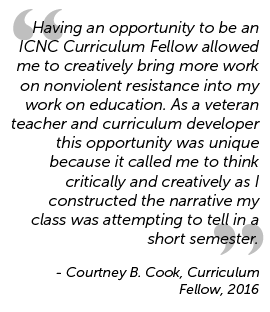
- Award
- Fellowship Components
- How to Apply
- Recommended Resources
- Fellowship Distribution
- Past Curriculum Fellows
Eligibility
- Scholars, and instructors from colleges and universities around the world who are interested in expanding their institutions’ existing curriculum to cover civil resistance.
- Educators and trainers who might be loosely affiliated with academic institutions at home or abroad but have academic-based training or pedagogical and teaching experience, particularly in regions and countries with restrictive civic spaces or conflicts.
Award Details
In 2017, up to seven curriculum fellowships, each in the amount of $1,300, will be offered on open, merit and competitive bases to qualified applicants to develop:
- a curriculum unit on civil resistance that will be offered as a self-standing, elective or mandatory, course at the applicant’s home university
or
- a curriculum unit on civil resistance that will be incorporated into the existing, elective or mandatory, course at the applicant’s home university
In addition to a curriculum fellowship grant, awardees will receive a package with academic books and documentaries on civil resistance. ICNC provides these resources free of charge as part of its curriculum fellowship package to help its fellows develop the content on and teach civil resistance.
Teaching for 2017/2018 ICNC Curriculum Fellowships is expected to take place either in Summer, Fall 2017 or Winter, Spring 2018.
As part of the fellowship it is expected that:
a. fellow develops a full-fledged course syllabus that includes a curriculum unit on civil resistance. A unit on civil resistance covers minimum five 90-minute sessions over the period of minimum of 5 weeks.
b. sessions on civil resistance that are part of the developed curriculum unit will, at minimum, analyze and explain to students:
- what civil resistance is, prevailing misconceptions
- historical record and effectiveness of civil resistance
- strategies and tactics of civil resistance
- dynamics of civil resistance including but not limited to the phenomenon of backfire, defections, movement mobilization, sustainability or tactical innovation and sequencing
c. no less than 10 students will register and attend the course
d. course syllabus, assignments and assessment materials are to be developed in English, though the course itself can be conducted in a different language
e. fellow hosts at least one guest speaker that will present on a selected topic on civil resistance
f. fellow develops online evaluation instrument to be used to assess progress in students’ learning about civil resistance
- template of a pre-seminar learning gains survey (distributed prior to the start of the seminar)
- template of a post-seminar learning gains survey (distributed at the end of the seminar)
g. fellow develops online final course evaluation to solicit students’ feedback on the course content on civil resistance
Review:
- template of the final course evaluation
h. fellow submits a final report to ICNC soon after the course or curriculum unit ends. The report will summarize content on civil resistance delivered, including any innovative teaching tools used, information on the guest speaker talk, aggregate results from the students’ learning gains surveys, results from the final evaluation and general lessons learnt
i. students’ feedback/evaluation and recommendation for improvements
j. fellow selects and submits to ICNC- with students permission –one/two outstanding pieces of written or audio/video work on civil resistance done as part of the course
To be considered applicants should review ICNC recommended list of resources, fill out the online application form, submit CV and curriculum proposal, and other information as requested.
How to Apply
To be considered applicants should fill out the online application form, submit their CV and curriculum proposal, and other information as requested.
APPLY for the Classroom-Based Fellowship
The curriculum proposal should include a detailed description of the content of at least five 90-minute sessions that will be taught for a minimum of 5 weeks. Each proposed session must include a brief description of the topic covered, as well as a list of assigned readings on civil resistance. If applicable, the applicant should also attach a revised syllabus that will include the newly proposed sessions on civil resistance and explain how these new topics relate to the existing course material. Finally, the application will identify the course number, its elective or mandatory status, departmental/institutional affiliation for the course, average number of enrolled students, and the semester when it will be offered.
Application deadline: April 30, 2017 for courses that will be offered in Summer, Fall 2017 or Winter, Spring 2018
Recommended List of Resources for Curriculum Proposal Development
In developing the curriculum proposal on civil resistance for a classroom-based course, applicants are strongly encouraged to review the ICNC universal e-classroom for ideas on curriculum content as well as sample syllabi. In addition, applicants may wish to consider integrating into the sessions on civil resistance the following resources:
- ICNC translations: if a proposed course is taught in a language different than English, a fellow will be expected to incorporate translations of civil resistance literature available in the ICNC library, which houses materials on civil resistance in 55 languages
- A Force More Powerful, 2000 documentary
- Bringing Down a Dictator, 2001 documentary
- Orange Revolution, 2007 documentary
- Erica Chenoweth and Maria Stephan, Why Civil Resistance Works. The Strategic Logic of Nonviolent Conflict (New York: Columbia University Press, 2011)
- Maciej Bartkowski, ed. Recovering Nonviolent History. Civil Resistance in Liberation Struggles (Boulder, CO: Lynne Rienner Publishers, 2013)
- Peter Ackerman, and Jack DuVall, A Force More Powerful: A Century of Nonviolent Conflict (New York: Macmillan, 2000)
- Shaazka Beyerle, Curtailing Corruption. People Power for Accountability and Justice (Boulder, CO: Lynne Rienner Publishers, 2014)
- Veronique Dudouet, ed. Civil Resistance and Conflict Transformation. Transition from Armed to Nonviolent Struggle (London: Routledge, 2015)
- A Diplomat’s Handbook for Democracy Development Support
Check also Selected Bibliography on Civil Resistance (2016)
Applicants’ curriculum proposal – to be submitted as part of the application process – is expected to include a list of resources on civil resistance that an applicant plans to incorporate into a classroom-based and identify a potential guest speaker suitable for a proposed civil resistance topic.
Fellowship Distribution
The fellowship grants will be disbursed in two equal installments. The first installment will be made after the course begins, the student enrollment is confirmed and the syllabus with a civil resistance component has been satisfactorily reviewed by ICNC. The second installment will be made after the classroom-based course ends and ICNC receives fellow’s final report and results of students’ evaluations pertaining to their learning on civil resistance and course assessment.
Past Curriculum Fellows
2016 Curriculum Fellows
2015 Curriculum Fellows
2014 Curriculum Fellows
Kenya: Women Hellraisers of Nairobi
Russian environmental activist mobilizing protests abroad
Japan detains movement leader to silence struggle against U.S. military bases
Guam: Group calls for preservation of Ritidian, medicinal plants
Palestine: Children gather at Jerusalem municipality to protest school closure
Sri Lanka: Protests break out over death of fisherman
New Zealand: Health workers, patients protest chronic health underfunding
Argentina: Thousands of teachers strike for wage increases amid inflation
Zimbabwe: Evan Mawarire, pastor behind #ThisFlag movement, denied bail
Sri Lanka: Families stand up to the soldiers who took their homes
Populists and autocrats: the dual threat to global democracy
South Korea: Seoul streets jam-packed with protesters for and against Park
Why did Occupy Stumble: Key Lessons for Activists Today
This Academic Webinar took place on Thursday, April 6 at 12 p.m. EST.
This webinar was presented by Matthew Johnson
Watch the webinar below:
Webinar content:
1. Introduction of the Speaker: 00:00 – 01:03
2. Presentation: 01:03 – 32:05
3. Questions and Answers: 32:05 – 53:18
Webinar Summary:
This webinar will discuss the Occupy Movement of 2011 from a firsthand perspective. It will look at its failure to achieve major goals: to abolish corporate-elite governance and restore democracy for the so-called “99 percent.” At least five factors will be identified as contributing to the movement’s decline: 1) Rugged Individualism, 2) Lack of Respect for/Faith in Leadership, 3) Sectarianism, 4) Internal Oppression, and 5) Lack of Training and Nonviolent Discipline. The concluding part of the webinar will consider the key lessons of Occupy for later movements, such as the Standing Rock campaign, and the Women’s March, as well as offer recommendations for the future large-scale progressive civil resistance in the United States.
CHECK OTHER UPCOMING WEBINARS
Presenter:
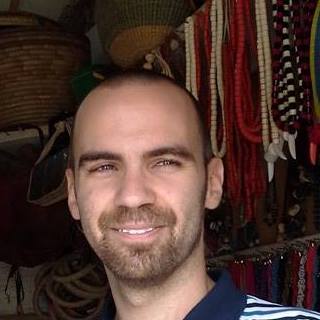 Born in Baltimore, Maryland, Matthew Johnson holds an MA in Peace and Conflict Studies from Hacettepe University (Turkey) and a BA in Journalism from the University of Maryland. Although a product of the public school system, he is passionate about nontraditional educational environments. He previously worked at a youth detention center, where he introduced a popular peace studies class along with teaching English, social studies, and GED prep. Most recently he taught at a progressive private school in NJ. Aside from teaching, conflict resolution and restorative justice are his main interests. He has researched and practiced alternatives to punishment or legal action in the context of schools, the justice system, and social movements for five years, serving thousands of students, prisoners, organizations, and community members. He is trained in numerous practices including mediation, nonviolent third-party intervention, transformative justice, community conferencing, dialogue circles, Restorative Circles, and crisis counseling for trauma victims.
Born in Baltimore, Maryland, Matthew Johnson holds an MA in Peace and Conflict Studies from Hacettepe University (Turkey) and a BA in Journalism from the University of Maryland. Although a product of the public school system, he is passionate about nontraditional educational environments. He previously worked at a youth detention center, where he introduced a popular peace studies class along with teaching English, social studies, and GED prep. Most recently he taught at a progressive private school in NJ. Aside from teaching, conflict resolution and restorative justice are his main interests. He has researched and practiced alternatives to punishment or legal action in the context of schools, the justice system, and social movements for five years, serving thousands of students, prisoners, organizations, and community members. He is trained in numerous practices including mediation, nonviolent third-party intervention, transformative justice, community conferencing, dialogue circles, Restorative Circles, and crisis counseling for trauma victims.
Relevant Readings:
- ‘Occupy Justice’ http://wagingnonviolence.org/feature/occupy-justice/
- ‘Internal Failures of Occupy’ http://www.everythingology.com/wp-content/uploads/2013/03/The-Anti-movement-Occupy.pdf
- ‘Outcomes of OWS’ https://mobilizingideas.wordpress.com/category/essay-dialogues/outcomes-of-ows/
Organizing Civil Resistance in Divided Societies: Key Lessons from Nepal, South Africa, and East Timor
This Academic Webinar took place on Wednesday, March 22, 2017 at 12 p.m. EST.
This webinar was presented by Dr. Ches Thurber
Watch the webinar below:
Webinar content:
1. Introduction of the Speaker: 00:00 – 01:01
2. Presentation: 01:01 – 36:48
3. Questions and Answers: 36:48 – 56:12
Webinar Summary:
Social divisions, such as ethnicity, race, religion, and class, create unique challenges for those engaging in civil resistance. Researchers point out that civil resistance campaigns in non-democracies are significantly less likely to achieve their goals when ethnic divisions are at stake. In fact, in such polarized environments, civil resistance campaigns are not only less likely to succeed, but they rarely even get off the ground.
Constraints on activists’ ability to activate key mechanisms of nonviolent success deter groups form launching a civil resistance campaign and may even encourage them to opt for a violent strategy instead. Examining cases such as the Nepali Maoists’ transition to nonviolent resistance, the anti-Apartheid movement in South Africa and the movement for East Timorese independence, this webinar will highlight tactics such as alliance-building and internationalization of the conflict that have helped movements overcome challenges of organizing in divided society. Key lessons for civic mobilization and civil resistance in polarized societies will be offered and discussed.
CHECK OTHER UPCOMING WEBINARS
Presenter:
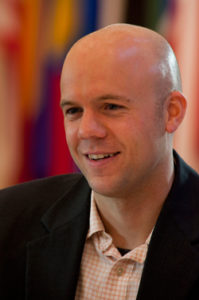 Dr. Ches Thurber is an Assistant Professor in the Department of Political Science at Northern Illinois University. His research examines the range of contentious global politics from nonviolent resistance movements to interstate war. His book manuscript, Between Mao and Gandhi: Strategies of Violence and Nonviolence in Revolutionary Movements, investigates variation in the strategic behavior of groups seeking to capture state power. Findings from his research were featured on the Australian Broadcasting Corporation’s “Big Ideas” radio program. Previous work has been published in Small Wars and Insurgencies, the Journal of Public and International Affairs, and al-Naklah. Previously, Dr. Thurber was a research fellow at the Chicago Project on Security and Terrorism at the University of Chicago and at the Harvard Kennedy School’s Belfer Center for Science and International Affairs. He received his Ph.D. from The Fletcher School of Law and Diplomacy at Tufts University and his B.A. from Middlebury College.
Dr. Ches Thurber is an Assistant Professor in the Department of Political Science at Northern Illinois University. His research examines the range of contentious global politics from nonviolent resistance movements to interstate war. His book manuscript, Between Mao and Gandhi: Strategies of Violence and Nonviolence in Revolutionary Movements, investigates variation in the strategic behavior of groups seeking to capture state power. Findings from his research were featured on the Australian Broadcasting Corporation’s “Big Ideas” radio program. Previous work has been published in Small Wars and Insurgencies, the Journal of Public and International Affairs, and al-Naklah. Previously, Dr. Thurber was a research fellow at the Chicago Project on Security and Terrorism at the University of Chicago and at the Harvard Kennedy School’s Belfer Center for Science and International Affairs. He received his Ph.D. from The Fletcher School of Law and Diplomacy at Tufts University and his B.A. from Middlebury College.
Relevant Readings:
- Chenoweth, Erica, and Jay Ulfelder. “Can Structural Conditions Explain the Onset of Nonviolent Uprisings?” Journal of Conflict Resolution (2015).
- Brant, William D. “The Effects of Race and Social Distance on Obedience.” Journal of Social Psychology 112 (Dec. 1980): 229–235.
- Davenport, Christian, David A Armstrong II, and Sarah A Soule. “Protesting While Black? The Differential Policing of American Activism, 1960 to 1990.” American Sociological Review 76, no. 1 (Feb. 2011): 152–178.
- Denny, Elaine K, and Barbara F Walter. “Ethnicity and Civil War.” Journal of Peace Research 51, no. 2 (Mar. 2014): 199–212.
- Ogura, Kyoko. Kathmandu Spring: The People’s Movement of 1990. Lalitpur, Nepal: Himal Books, 2001.
- Routledge, Paul. “Nineteen Days in April: Urban Protest and Democracy in Nepal,” Urban Studies 47, no. 6 (May 2010): 1279-1299.
- Svensson, Isak, and Mathilda Lindgren. “Community and consent Unarmed insurrections in non-democracies.” European Journal of International Relations 17, no. 1 (Mar. 2011): 97–120.
Native Americans’ Nonviolent Struggle for Rights and Justice
This Academic Webinar, presented by Sherri Mitchell and Tom Hastings, 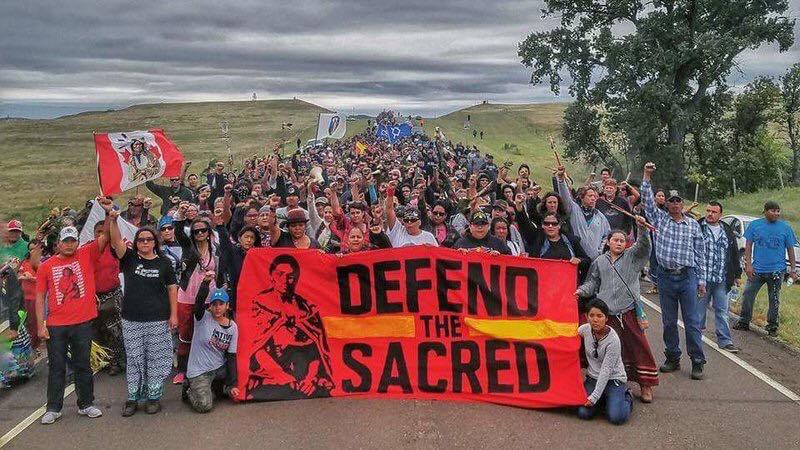 took place on Thursday, March 9, 2017, at 12 p.m. EST.
took place on Thursday, March 9, 2017, at 12 p.m. EST.
Watch the webinar below:
Webinar content:
- Introduction of the Speakers: 00:00-03:25
- Presentation: 03:25-47:57
- Question and Answers: 47:57-1:17:52
Webinar Summary:
Native Americans and First Nations peoples have distinct cultural methods of conflict management that vary from nation to nation, with specifically unique nonviolent strands apparent historically and presently. In our modern era, several Native Americans’ struggles have featured methods of nonviolent strategy to fight for rights oftentimes with surprising outcomes. They used nonviolent civil resistance to change dominant culture, laws and policies. While the struggle by the Standing Rock Sioux has elevated Native struggles in the public eye, much more has occurred during the long history of Native Americans’ mobilization for rights and justice.
In this webinar talk we aim to highlight this often unacknowledged history of nonviolent resistance, and show how the study of innovations and traditional methods of nonviolent conflict management, as well as direct nonviolent actions practiced by many of the tribes of the Native American Nations and First Nations, can benefit scholarship and practice of civil resistance.
CHECK OTHER UPCOMING WEBINARS
Presenters’ responses to questions not answered during the scheduled webinar time:
1. Would you please recommend some further resources — books, websites, authors, workshops et cetera — to explore the history, practice and philosophies of indigenous practices of nonviolent struggle?
- https://www.nonviolent-conflict.org
- http://www.aeinstein.org
- http://www.ienearth.org
- http://www.honorearth.org
- http://nvdatabase.swarthmore.edu
2. How do you collaborate with others involved who are coming from a nonviolent view but not solely a Native American struggle?
Tom: My own experience is that at times I drop almost everything else and jump in as a white ally. Then, when I come back to talk about coalition or mutual support, I am granted more of an audience. It isn’t a quid pro quo, just an authentic way to approach organizing.
3. I wonder if adopting the ‘Resistance’ motif is really that helpful when it comes to nonviolent action. After all, resistance seems to allow for the other to set the agenda and then blocks it, whereas the real power of nonviolent action is a positive way of life (seen to some extent in your list of cultural values) that pursues goals of the good, rather than driven by resistance to the bad. I think some of the ideas on Moving Forward tend in the positive direction but I wonder what you think about downplaying resistance since it seems to lock us into certain stances that may be too short-sighted.
Tom: I regard it as historically proven that it’s seamless, e.g., Gandhi’s transitions from obstructive to constructive actions. Updating that, I’d suggest that every solar panel reduces the need for oil pipelines. However, as Winona LaDuke suggests, there are times when, sigh, we just have to resist.
4. I am a non-Indigenous American citizen, living in Switzerland and consider myself an ally to indigenous rights. On a very practical level – what is the best way to show solidarity from overseas? I have felt frustrated in not being able to make my body available for the actions in Standing rock. Similarly, I have no money invested in financial institutions that fund dirty energy and trample on indigenous rights. How can one amplify the nonviolent activism from abroad?
Some possibilities:
- Write op-eds on the topic and send to American papers.
- Donate to indigenous groups–and promote the crowdsourced donating you believe to be most authentic.
- Organize local demonstrations and post the photos. My favorite is one that shows NoDAPL with the Eiffel Tower in the background.
- Use social media to promote the support of the tribes.
5. How important is it to have a 100% non-violent movement? Can you have people in your movement that believe that the destruction of property for instance is acceptable?
Tom: It is vital to frame everything as nonviolent, repeatedly, with logic. Rule 1: All violence backfires, whether committed by the armed forces of the state or by a movement. Having said that, with enough work, enough messaging, and repeated explanation, some property under some circumstances can be dismantled, interfered with, or repurposed so that it’s understood as nonviolent. It must be done transparently by people who claim credit and accept consequences for it. For example, I am an expert witness in an upcoming second trial in a series of them of defendants who transparently shut off oil pipelines. My deposition explains the role of nonviolent civil disobedience in successfully stopping violence, violations of human rights, etc. And I am personally a veteran of two Plowshares actions, both of which involved dismantling thousands of dollars of components of a thermonuclear command center. That was framed as nonviolent and accepted as such. Indeed, the closure of that command facility was due in large part to the growth of the coalition of peoples and organizations opposing it, including the Great Lakes Indian Fish and Wildlife Commission and their highly effective lawyers.
6. What the presenters have given us are just ad hoc ideas about what we can do with our elected officials, consumer choices, etc. That is too diffuse and weak. No, we need to pick a specific pillar and begin to chip away at that target with all our collective power. What is the weakest brick in the wall of the extractive industries raping indigenous lands?
Tom: I’m not the authority on what we must do right now, but I agree that a coalition of indigenous leadership should prioritize, if possible, and communicate that to one and all.
7. I believe that it is important to clearly define the enemy, so that the war can be won. The battles are many: pipelines, the fossil fuel industry when it is not working towards CO2 reduction, but actually seeking to export pollution, wage inequity, workplace inequity, nuclear power, waste and weapons, human rights violations and on and on the list could go. What do you think?
Sherri: I don’t believe in the idea of enemies. I see the actions of those harming the Earth as a spiritual and mental illness. War is what has brought us to this point. And, as Einstein said: You can’t solve a problem with the same mindset that created it. We need to hold back the tide of harm in ways that don’t harm the other. We need to see them as our brothers and sisters and make space for them to shift their mindset. We’ll never change the current paradigm or reach critical mass if we continue to draw lines of division and create enemy scenarios that result in us engaging in more acts of warfare. If we want a different world we have to invest in its creation. It’s a three part process, holding back the current harm, working to change hearts and minds, and creating new systems to replace the old. We divest all of our energy from the harmful systems, divest our money from their structures, and divest our minds from the patriarchal narrative.
8. In the interest of “telling truth”, would in not be more appropriate to refer to the people from Christopher Columbus and following to be referred to as “invaders” rather than “settlers”.
Sherri: Yes, invaders is appropriate for some, especially Columbus. However, there are also many that came here humbly seeking a better life, many of those individuals had good relationships with the Native peoples. When we are unable to see the distinction in the actions of individuals we run the risk of demonizing entire populations of people. History has shown us where that path leads. We must also separate the actions of the limited few in power from the rest of the population. Would you want to be judged by the actions of Donald Trump or Stephen Harper? I wouldn’t. There is no question that Native people were intelligent, with sophisticated democratic governance structures, successful trade routes, and ways of life that were in harmony with the rest of the world. There is a great deal that Indigenous people can teach the rest of the world. Those stories can be elevated, patriarchy can be called out and diminished, without demonizing the entire population. Within our population there are the descendants of slaves, asylum seekers, refugees, and countless others who were either brought here or came here for reasons that were wrought with peril. It’s far more complex and deserves to be treated with a bit more complexity than applying blanket statements to an entire population of people. My hope is that we can engage that complexity with more humanity and find a more unified path forward.
9. Curious to hear about other specific ways for non-native people to ally or be accomplices in the nonviolent struggle of the native population
Sherri: There are countless ways. One of the best ways to determine how to be the best an ally or accomplice is to go to the Native people in your area and ask them what they need. Don’t ever assume that it’s appropriate for you to speak for them. There is a distinct difference between speaking for someone and speaking in support of them, learn that distinction. Find ways to create a platform for their voices, support them in their efforts to protect their lands, waters, and way of life. Oppose any attempts to further diminish their rights. The best thing that you can do is to befriend Native people, have conversations with them, let go of any romantic or biased notions that you have about who they are and what they need. Let them lead you in your efforts to be helpful. Otherwise, you run the risk of being paternalistic. We are all still figuring out how to address the intersectionality within our movements, how to support the rights of all people, and how to heal the wound of our shared history of violence – we need to allow for a lot of patience and learning in this work. My suggestion is that you approach the work with willingness to learn and to be guided. Approach those who are leading the movements that you wish to support and ask them how you can best do that. They will be best suited to tell you the specific actions needed to address the particular issues that they are working on. In the meantime, form coalition within your area and let your political and industrial leaders know that you will not support their continued efforts to take from Native peoples or to diminish their rights. Then, be willing to back that that up with divestiture, campaigning against candidates that engage in those actions, and making it impossible for them to continue behaving in such disgraceful ways.
Presenters:
 Sherri Mitchell was born and raised on the Penobscot Indian Nation. She is an Indigenous Rights Attorney, and a global advocate for human rights and Earth rights. She received her JD and a certificate in Indigenous People’s Law and Policy from the University of Arizona’s James E. Rogers College of Law. Sherri is also an alumnus of both the Udall Native American Congressional Internship program and the American Indian Ambassador Program.
Sherri Mitchell was born and raised on the Penobscot Indian Nation. She is an Indigenous Rights Attorney, and a global advocate for human rights and Earth rights. She received her JD and a certificate in Indigenous People’s Law and Policy from the University of Arizona’s James E. Rogers College of Law. Sherri is also an alumnus of both the Udall Native American Congressional Internship program and the American Indian Ambassador Program.
Sherri has worked as an advocate for Indigenous rights for the past 20 years. She has served as a program coordinator and advisor to the American Indian Institute’s ‘Healing the Future Program, and Traditional Circle of Indian Elders and Youth. And, she is currently an advisor to the Indigenous Elders and Medicine People’s Council of North and South America.
She worked as a law clerk for the Solicitor of the United States Department of Interior, as an associate with Fredericks, Peebles and Morgan, and as an educator for the Civil Rights Division of the Maine Attorney General’s Office. In 2010, Sherri received the Mahoney Dunn International Human Rights and Humanitarian Award for her research into human rights violations against Indigenous peoples.
She is an accomplished writer and speaker, having been featured in numerous journals, anthologies and publications. She is a published poet and a contributor to both Indian Country Today, and Native News Network. She is currently completing her first book, Sacred Instructions, which is expected to be released in September 2017. She has worked with countless individuals and groups helping them to devise legal strategies for rights-based action, while also teaching in depth workshops that focus on the details of building strong, effective nonviolent rights-based movements.
Sherri is the founder and Director of the Land Peace Foundation. An organization dedicated to the protection of Indigenous rights, and the preservation of the Indigenous way of life. She also is co-host of the program Love (and revolution) Radio, a program that focuses on heart-based movements around the world.
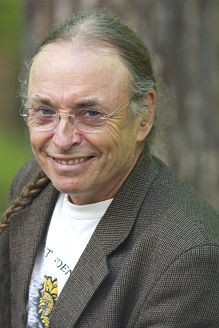 Tom H. Hastings, with his undergraduate degree in Peace and Conflict Studies, his Masters in Journalism, and his doctorate in Education, is Coordinator of the undergraduate degree programs in Conflict Resolution at Portland State University. He is a former member of the Governing Council of the International Peace Research Association (IPRA), former co-chair of the Peace and Justice Studies Association, and is on the boards of both the IPRA Foundation and the Oregon Peace Institute, as well as the Academic Advisory Council of the International Center on Nonviolent Conflict. He is Founding Director of PeaceVoice, a program of OPI, and has written several books and many articles about nonviolence and other peace and conflict topics. He is a former Plowshares resister, a nonviolence trainer, a founding member of two Catholic Worker communities, and currently lives in Whitefeather Peace House. His sons are African American, which literally colored his perspective on the world since the 1960s.
Tom H. Hastings, with his undergraduate degree in Peace and Conflict Studies, his Masters in Journalism, and his doctorate in Education, is Coordinator of the undergraduate degree programs in Conflict Resolution at Portland State University. He is a former member of the Governing Council of the International Peace Research Association (IPRA), former co-chair of the Peace and Justice Studies Association, and is on the boards of both the IPRA Foundation and the Oregon Peace Institute, as well as the Academic Advisory Council of the International Center on Nonviolent Conflict. He is Founding Director of PeaceVoice, a program of OPI, and has written several books and many articles about nonviolence and other peace and conflict topics. He is a former Plowshares resister, a nonviolence trainer, a founding member of two Catholic Worker communities, and currently lives in Whitefeather Peace House. His sons are African American, which literally colored his perspective on the world since the 1960s.
Relevant Readings:
Cloud Morgan, Larry (1985). Prison meditations. Minneapolis, MN: St. Joseph’s.
Whaley, Rick, & Bresette, Walter (1994). Walleye warriors: An effective alliance against racism and for the earth. Philadelphia, PA: New Society Publishers.
ICNC Special Course: Civil Resistance Unpacked: Strategic Practice and Analysis
In response to increased demand for knowledge about civil resistance, ICNC hosted in 2016 an additional online seminar beyond its annual ICNC/Rutgers online course. This second course offered was entitled “Civil Resistance Unpacked: Strategic Practice and Analysis” and took place from December 6, 2016 to January 25, 2017.
Learn more by clicking on the following links:
- Why did ICNC offer this course?
- Applications, admission and course participants
- Course description
- Course goals
- What is meant by “participant-driven” course?
- Participating in an online learning community
- Self-learning community code of conduct
- Participant time and activity commitment
- Course content
- Learning gains survey results
- Final course evaluation results
- Selected testimonials
Why did ICNC offer this course?
In the past several years, ICNC has received rapidly increasing demand for knowledge and greater understanding of the dynamics and power of civil resistance. Individuals, groups, and organizations in the United States and around the world are reaching out to us in record numbers to inquire about civil resistance learning opportunities. We view online courses as a way to better keep up with this increasing demand, achieve greater scale, and reach more people in our educational efforts.
Based on the online seminar ICNC offers each year in partnership with Rutgers University, the special online course “Civil Resistance Unpacked: Strategic Practice and Analysis” offered modules on civil resistance with a variety of readings and videos that guided participants in their learning, online discussions, and interactions. Participants included activists, organizers, scholars, students, members of the policy community and NGOs, journalists, and others with extremely diverse experience with civil resistance and knowledge on this field of study and practice.
Applications, admission and course participants
Within only 13 days of advertising the course, ICNC received 97 applications from around the world. Of the 97 applicants, 51 participants were accepted. A poll conducted during the orientation webinar indicated that the majority of the participants:
- identified themselves as practitioners;
- were predominantly interested in mobilizing for social and environmental justice; and
- wanted to seek advice from and exchange ideas with other participants.
In addition, the participants specified their learning interests and goals; their recent experience related to civil resistance; how they planned to enrich a self-learning community that this special course was based on; and where they would apply the knowledge gained from the course.
Civil resistance is a social and political phenomenon that defies a long-held belief in the power of arms to challenge a brutal, violent adversary. Contrary to the violence-centered narrative that dominates mass media, nonviolent resistance campaigns against repressive states have been on the rise in the last few decades, surpassing violent insurgencies by almost 5 to 1 in the last 15 years.
For the past several years, ICNC has supported work to develop unique datasets of nonviolent campaigns (NAVCO). In 2011, this work led to a ground-breaking quantitative study that showed that civil resistance movements often emerge and succeed in challenging environments. It also established that civil resistance struggles are more than twice as effective against violent states as armed resistance groups.
Informed by these important developments in research and the practice of civil resistance, this free, online course provided an interactive, in-depth, and multidisciplinary perspective on civilian-based movements and campaigns that defend and obtain fundamental rights and justice around the world. The course aimed to explain the nature of civil resistance and its force, underlying dynamics, and effectiveness.
During the course participants reflected on the skills and agency of ordinary people, their strategies and tactics, how movements can confront repression, the backfire effect, and how movements have caused defections among their adversaries’ supporters. We looked at how entrenched political and social structures and practices shifted under the pressure of organized nonviolent movements, and the long-term impacts on societies, nations, and institutions. We also studied the role of gender and women in civil resistance.
Finally, the course also examined a variety of case studies of civil resistance struggles, including movements for democracy and human rights, as well as movements challenging corruption, corporations, and abusive and violent non-state actors.
The online course involved a number of activities, including forum posts and online discussions, readings, and viewing videos.
The main goals of this online course were to:
- learn about main concepts and ideas of civil resistance
- become familiar with various cases of nonviolent campaigns and movements
- reflect on the effectiveness of civil resistance and its power to overcome adversarial conditions
- share experience and knowledge with other participants and moderators
- help participants become more informed observers of nonviolent conflicts, and effective conveyors of civil resistance knowledge
What is meant by “participant-driven” course?
The main difference between this course and previous online seminars was in the way that online interactions were envisaged to take place. “Civil Resistance Unpacked” was an entirely participant-driven course whereby, after reviewing relevant modules, participants interacted with one another on various forums without additional ICNC moderation or substantive input. In that sense, participants were part of a learning community that was built around participants’ motivation, open attitude to learning, desire to share and interact with others, and relevant knowledge and experience.
Participating in an online learning community
Participants formed a learning community whose intellectual strength and vibrancy depended solely upon its members and their active and insightful written contributions in various forums. No outside moderators joined this class. A specific set of questions set up in advance by course administrators in the discussion forums guided participants’ exchanges. In these forums, participants were expected to monitor and read other learners’ posts, share innovative ideas and thoughts within the learning community, ask follow-up questions to other participants, suggest answers and plausible solutions as well as, in rare cases, flag any inappropriate behavior on the forums.
Self-learning community code of conduct
Because no outside moderation of online discussions was envisaged for this course, a specific code of conduct was developed to ensure that participant interactions and knowledge sharing were as meaningful, substantive, and respectful as possible.
Participants committed themselves to following and enforcing the follow code of conduct.
1. What participants are expected to do in their online interactions
- Respect each others’ points of view
- Share comments that relate to forum questions and the subject at hand
- Review assigned material (readings/videos) included in the course chapters, before responding to questions raised in the forums.
- Keep an open mind and a desire to learn from others. People in the community may have strong perspectives, but do not dismiss others simply because they have a different perspective.
- Focus on the phenomenon of civil resistance. If you find your conversations going onto other topics that are not directly related to the course, then you should feel free to take those conversations outside of the course (i.e. over email, Facebook, phone, etc.).
- Focus on debating ideas, and separate people from ideas. If you disagree with an idea, don’t attack the person who posted the idea, or make assumptions about their motives.
- Back up your ideas, criticism and arguments with references to authoritative and verified sources or personal experience.
- In addition to the readings, refer to other source materials to support your statements or as background information to the point you are making.
- Read carefully and in entirety posts made by other people before replying to them. If something is not clear in someone’s else comment, do not hesitate to ask for clarifications and further explanations while you offer your own points of view on the discussed matter.
- Present various possible arguments that might be made around the discussed issue.
- Write concisely more than expansively.
- Post regularly to the required forums and catch up as soon as possible if you fall behind.
- Formulate your thoughts and ideas in clear language. Other participants may have limited knowledge about the case that you are elaborating on.
- Other learners are people too, although you will not necessarily see them. Do not use ideological or divisive language and instead apply objective reasoning that is backed up by evidence and arguments from authoritative sources.
- Share first-hand accounts and stories from your personal and professional work, study, or activity that pertain to the discussed subject matter.
- Humor, encouragement, praise, constructive criticism, and putting yourself in someone else’s shoes are the most effective ways to engage with others and facilitate informed discussions that do not exclude anyone.
- No profanity or personal insults.
- Do not hesitate to report any inappropriate, offensive or vulgar posts to the course administrators.
2. Additional commitments of members of the learning community
- The learning experience is optimized when all participants remain active all the way through the end of the course. Do not abandon your fellow participants in the course (unless there is a family or personal emergency); they are counting on your active contributions, just as you are theirs.
- Do not be tardy with posting during the week as this negatively affects your and other participants’ learning progress.
- Do not copy and paste from outside sources when you write in forums. Use your own wording and vocabulary, though feel free to cite (and use quotation marks when you do) authoritative and verifiable sources.
Even though we have never had any problems of the following kind during our previous online courses, we want to make sure that participants:
- Do not use ad-hominem attacks or any race, gender, religion, national origin, age, disability, sexual orientation based attacks.
- Do not use threats or incite any kind of violence.
Participant time and activity commitment
Participants were expected to spend between 7 and 10 hours per week in the online classroom, or a minimum of 1 hour per day for the full duration of the course on reviewing materials, posting comments about the readings and assigned videos, and interacting with/responding to other participants’ posts.
Module 1: Foundations of Civil Resistance
What Is Civil Resistance?
People and Power
Effectiveness of Civil Resistance
Additional Resources
Module 2: Emergence of Civil Resistance Movements; Conditions and Skills
Emergence of Civil Resistance Movements
Conditions and their Impact
Skills Drive Civil Resistance
Additional Resources
Module 3: Strategy and Tactics of Nonviolent Struggle
Nashville Lunch Counter Campaign (U.S. Civil Rights Movement)
Strategic Planning and Tactical Choices
Cultural Resistance Tactics
Tactical Innovation
Conflict Analysis Tools
Additional Resources
Module 4: Backfire, Defections and Violent Flanks
Repression and Backfire
Defections
Violent Flanks
Additional Resources
Module 5: New Frontiers in Civil Resistance Studies
People Power versus Corruption and Impunity
Civil Resistance in War-Torn Environments
Women and Nonviolent Resistance
Democratization and Civil Resistance
Civil Resistance and Corporate Governance
Additional Resources
Module 6: Final Course Evaluation & Learning Gains Survey
Post Course Learning Gains Survey
Final Course Evaluation
ICNC distributed pre-seminar and post-seminar surveys to measure gains in learning progress among course participants. Included below are the graphed responses to the questions included in the surveys. In general, participants’ responses illustrate a positive trend in learning gains in civil resistance knowledge.
1. On the scale below, select the number that best represents your current knowledge of civil resistance or nonviolent movements. (1: None; 10: A lot)
2. On the scale below, identify your comfort level in speaking to others about civil resistance or nonviolent movements. (1: Not at all ; 10: Very comfortable)
3. On the scale below, select the number that best represents your view that revolutions against brutal regimes can succeed ONLY if revolutionaries retain the option to use violent means. (1: Strongly agree ; 10: Strongly disagree)
4. On the scale below, select the number that best represents your view that protests, marches, and demonstrations are the ONLY civil resistance methods. (1: Strongly agree ; 10: Strongly disagree)
5. On the scale below, select the number that best represents your view on how successful you think civil resistance campaigns against repressive states have been in the past. (1: Not successful; 10: More successful than not)
6. On the scale below, select the number that best represents your view that movements that face repression must fail. (1: Strongly agree ; 10: Strongly disagree)
7. On the scale below, select the number that best represents your view that in order to be successful nonviolent movements must receive support from external actors. (1: Strongly agree ; 10: Strongly disagree)
8. Which of the factors, in your view, is/are essential for a nonviolent movement to be successful. You can select more than one. (Participation; Opponent that is willing to negotiate; Strategic planning; Charismatic leader; Nonviolent discipline; Material resources; Absence of repression)
9. On the scale below, select the number that best represents your view about how important you think nonviolent discipline is in a successful civil resistance movement. (1: Not at all; 10: Extremely important)
10. Do you think that nonviolent civil resistance is more effective than violent resistance against repressive regimes?
Final course evaluation results
Included below are graphed responses to selected questions from the final course evaluation. (1: Strongly disagree; 5: Strongly agree)
1. Course content was organized and planned:
2. The goals of the course and its modules were clear:
3. Course modules and content were timed and sequenced well:
4. Course content was comprehensive and balanced, and topics were well selected:
5. Taking this online course was a positive experience:
6. I now have more knowledge about civil resistance and its various topics than I had before taking the course:
7. I learned a considerable amount of new information about civil resistance:
8. I learned about civil resistance from other course participants:
9. Course content matched my interests and professional needs:
10. The knowledge I gained from the course will be relevant in my current and future study/work/activities:
11. The course met or exceeded my expectations:
12. I would recommend this course to other people:
13. How would you assess your own engagement with the course material, including participation in the course forums? (1: Did not engage with the course material much and did not post regularly or at all to forum discussions; 5: Engaged with the course material as per the original commitment of at least 1 hour per day; 7 hours per week minimum and posting regularly to forum discussions)
14. How effective was the self-learning community that this course relied on for your learning, interactions and networking? (1: Not effective; 5: Very effective)
“If you want to know how to build successful campaigns and movements, this course can help you do it. You wanna win, right? If so, this is the course for you!”
-Stuart Basden, ICNC Special Course Participant
“The ICNC online course provided a tremendous opportunity to learn about civil resistance and People Power. It energized me and renewed my faith that together, united and organized, we can make a positive difference in the world.”
-Maureen Daly, ICNC Special Course Participant
“Taking this course expanded my knowledge and awareness of all aspects of civil disobedience from misperceptions, its effectiveness, history, tactics and challenges. Collectively participants shared a wealth of experience. This course is highly recommended whether one is new or a veteran to nonviolent action.”
-ICNC Special Course Participant
“This course provided me with easy access to crucial materials that I immediately incorporated into my teaching. The resources are abundant and well organized. Since we will continue to have access to the “optional” materials, I will go back again and again to increase my knowledge of civil resistance.”
-ICNC Special Course Participant
“This is a wonderful course for learning the rudiments of non-violent civil resistance. It is stocked with many sources and resources to teach participants a strong historical and contemporary understanding of civil resistance. It is also great to connect with many people who share interests in the topic and provides opportunities to learn from them.”
-Austin Silvan, ICNC Special Course Participant
“As an activist and a teacher, I find the online courses offered by the ICNC a great way to find new resources I can use in workshops and classes I teach. These courses are the place I turn to in order to find new research findings in the ever-growing field of civil resistance studies that help with both my teaching and use of civil resistance in my organizing work.”
-ICNC Special Course Participant
“Taking the “Civil Resistance Unpacked: Strategic Practice and Analysis” course during the presidential transition was empowering and insightful. The course demystified the specifics of nonviolent civic engagement and educated on its many diverse forms that should be part of any true democracy. This reinvigorated my commitment to citizen action and the positive power of people acting in community towards common goals.”
– Jeanine M. Canty, ICNC Special Course Participant
“I found the course extremely helpful and I learned a lot. There is a great mix of video and reading content that’s been carefully selected to convey the most relevant and cutting edge research on civil resistance. The discussion forums really helped me to think through the materials and to apply them to my own context. Much of the material that I wrote in response to the questions posed in the forums will continue to be useful to me now after the course.”
-Doug Coltart, ICNC Special Course Participant
2013 ICNC Online Course: Civil Resistance and the Dynamics of Nonviolent Conflict
ICNC offered a moderated online course on civil resistance in partnership with Rutgers University Graduate School, which took place from February 18, 2013 to April 5, 2013.
Click the following links to navigate:
Applications, admission and course participants
ICNC received close to 100 applications and accepted 42 participants. Among these 42 participants, 35 countries were represented including Latvia, Kenya, Germany, Uganda, New Zealand, South Africa, Guatemala, Israel, Brazil, Nigeria, among others. The course participants were mostly mid-level professionals that included lawyers, journalists, NGOs executives, development managers and civil society experts, as well as doctoral students and academics.
The online course consisted of an introduction module and seven thematic modules. Each thematic module was released at the beginning of the week and the participants and moderators engaged in different forums of the module throughout the week. A detailed course outline is provided below.
Module 1. Welcome and Introductions
Meet Your Course Facilitators
ICNC and Rutgers
Course Schedule
Course Requirements
Video Presentations
Tips for Online Learning
Module 2: Theoretical Foundations of Civil Resistance
Civil Resistance in Context
Fundamental Ideas
Common Misconceptions
Module 3: Historical Development of Civil Resistance
Centuries of Nonviolent Conflict
Core Dynamics of Civil Resistance
Nonviolent Action in the Islamic World
Movements Learn from One Another
Module 4: Tools of Conflict Analysis + Strategies and Tactics
Pillars of Support and Mechanisms of Change
Spectrum of Allies
Strengths, Weaknesses, Opportunities, and Threats (SWOT)
A Force More Powerful: Nashville segment
Experience from the Thai/Burma Border
Strategic Planning and Tactical Choices
Principles of Strategic Nonviolent Conflict
Cultural and Creative Dynamics of Nonviolent Tactics
Experience from Palestine
Methods of Nonviolent Action
Module 5: Skills vs. Conditions and Tactical Innovation in Nonviolent Conflict
Conditions and Their Impact
Skills vs. Conditions
Tactical Innovation
People Power: The Game of Civil Resistance
Module 6: What about Violence?
Violent vs. Nonviolent Action
Radicalized, Extreme Violence
The Paradox of Repression and Backfire (Part 1)
The Paradox of Repression and Backfire (Part 2)
Radical Flank Effect
Module 7: The Role of Media in Civil Resistance
Civil Resistance and Conventional Media
Digital Tools and New Media
Citizen Journalism
Module 8: Final Evaluation
Final Quiz
Final Course Evaluation
“Everyone was engaged and made interesting contributions; there was real debate in the forums, with the facilitators adding new ideas and summaries.”
-ICNC Online Course Participant, 2013
“I really enjoyed the range of different materials used to support learning. I really appreciated the opportunity to understand our own struggles.”
-ICNC Online Course Participant, 2013
“This was such an interesting course, full of material I didn’t know about, and new ideas, and really accessible.”
-ICNC Online Course Participant, 2013
“[I liked] learning from other students, and making potentially long- term contact with some of them.”
-ICNC Online Course Participant, 2013
West Papua independence movement becomes more strategic
Ideas & Trends: Five countries in which civic space is rapidly closing
North Korea: Aggressive crackdowns on information and movement
U.S.: Four more journalists get felony charges after covering inauguration protests
Morocco: Year of reform and repression
2012 ICNC Online Course: Civil Resistance and the Dynamics of Nonviolent Conflict
An ICNC moderated online course on civil resistance offered in partnership with Rutgers University Graduate School took place from April 23, 2012 to June 5, 2012.
Learn more by clicking on the topic links:
- Applications, admission and course participants
- Course content
- Selected course evaluation results
- What participants liked best about the course
- Selected testimonials
Applications, admission and course participants
ICNC received 56 applications and accepted 31 participants. Among these 31 participants, 12 countries were represented including Cameroon, Spain, Thailand, United States, Canada, New Zealand, Germany, Georgia, among others. Selected participants included graduate students, educators, activists, and civil society professionals.
The online course consisted of an introduction module and seven thematic modules. Each thematic module was released at the beginning of the week and the participants and moderators engaged in different forums of the module throughout the week. A detailed course outline is provided below.
Module 1. Welcome and Introductions
ICNC and Rutgers
Course Schedule
Course Requirements
Meet Course Facilitators
Video Presentations
Tips for Online Learning
Module 2: Theoretical Foundations of Civil Resistance
Civil Resistance in Context
Fundamental Ideas
Common Misconceptions
Module 3: Historical Development of Civil Resistance
A Century of Nonviolent Conflict
Core Dynamics of Civil Resistance
Nonviolent Action in the Islamic World
Movements Learn from One Another
Module 4: Tools of Conflict Analysis + Strategies and Tactics
Pillars of Support
Spectrum of Allies
Experience from the Thai/Burma Border
A Force More Powerful
Strategic Planning and Tactical Choices
Principles of Strategic Nonviolent Conflict
Cultural and Creative Dynamics of Nonviolent Tactics
Experience from Palestine
Module 5: Skills vs. Conditions and Tactical Innovation in Nonviolent Conflict
Conditions and Their Impact
Skills vs. Conditions
Tactical Innovation
People Power: The Game of Civil Resistance
Module 6: What about Violence?
Violent vs. Nonviolent Action
Radicalized, Extreme Violence
The Paradox of Repression and Backfire (Part 1)
The Paradox of Repression and Backfire (Part 2)
Radical Flank Effect
Module 7: The Role of Media in Civil Resistance
Civil Resistance and Conventional Media
Digital Tools and New Media
Citizen Journalism
Module 8: Final Evaluation
Final Quiz
Final Course Evaluation
Selected course evaluation results
How would you rate your learning experience in this course?
How would you rate the course instructors and their facilitation of the course?
What participants liked best about the course:
- The contemporariness of the materials
- The organization and structure was easy to follow
- The varieties of learning techniques
- The live webinars were really valuable
- The video intro and recap of the past unit was really helpful
- The feedback was useful and relevant
- The times when we connected via webchat and video conference were most engaging
- The forum interactions
- Excellent course materials
- Access to a cornucopia of new resources
- The wealth of knowledge provided through readings, presentations, and forum discussions
- Helpful nature of tutors’ comments
- Logical structure and development of course
- Respectful and friendly way of orchestrating and interacting with participants
- Interactive sessions with course instructors and other experts
- Instructors were all highly qualified, informative and accessible
- I appreciated instructors’ weekly video updates. They made the course more personal
- The learning from other students, and making potentially long-term contact with some of them
“The ability to discuss things in the forum was very valuable….This was such an interesting course, full of material I didn’t know about, and new ideas, and really accessible. I loved having a variety of media…I could put the reading into ibooks and have the links to the videos on YouTube. I thought it was so clever when the tutors gave short video feedback after the first week – it was very motivating and engaging. I really enjoyed the links to other materials provided by other participants – really interesting things I would not know how to find out otherwise. Finally the daily digest from the Forums was great – even when I had days when I didn’t get a chance to contribute it reminded and encouraged me to contribute.”
-ICNC Online Course Participant, 2012
“I found the facilitators very active and appreciated how they offered weekly video updates. It made the course more personal. I also liked the simulation exercise and how most of the materials were downloadable, such as the slides from the YouTube presentations.”
-ICNC Online Course Participant, 2012
“The other participants! Everyone was engaged and made interesting contributions; there was real debate in the forums, with the facilitators adding new ideas and summaries.”
-ICNC Online Course Participant, 2012
“This course was excellently conducted. The interactive sessions with our course instructors and other experts were fantastic and a unique opportunity to interact with specialists we might never otherwise have the opportunity to meet in person. The variety of materials — from readings, to lectures to the online simulation — were incredibly well chosen, informative, interesting and appropriate. It was also great to see our instructors in the weekly videos and hear their feedback and thoughts about the prior week’s segment and learn more about other.”
-ICNC Online Course Participant, 2012
“The triangle of personal-scientific-and-technical expertise. Thanks for your respectful and friendly way of orchestrating and interacting with us during the last six weeks. This was just amazing. The range of educational resources was stunning. Thanks for this inspiring mix and hints to follow up. I also really liked how precise everything was set up. Everything just worked out smoothly.”
-ICNC Online Course Participant, 2012
“I really enjoyed the range of different materials used to support learning. I also really appreciated the opportunity to link that into direct examples and try to understand our own struggles though the context of the theory.”
-ICNC Online Course Participant, 2012
Gambia: Risk of repression under Jammeh likely to grow among electoral tensions
Zimbabwe: Fighting grassroots corruption through grassroots activism
Australia: Human Rights Watch report card gives country a fail for offshore detention
Mexico: Protesters demonstrate against rise in fuel prices
Sudan: Social media campaign of civil dissent boosts hope of change
Dictatorships and Civil Resistance in the 21st Century: A course taught by ICNC Curriculum Fellow 2016
 Clay Fuller, the ICNC Curriculum Fellow, developed, offered and moderated a classroom-based course on civil resistance in Fall 2016 at the University of South Carolina as part of the ICNC Curriculum Fellowship. The course was conducted at the University of South Carolina, Columbia, South Carolina.
Clay Fuller, the ICNC Curriculum Fellow, developed, offered and moderated a classroom-based course on civil resistance in Fall 2016 at the University of South Carolina as part of the ICNC Curriculum Fellowship. The course was conducted at the University of South Carolina, Columbia, South Carolina.
The information featured below was submitted as part of the fellowship requirement for classroom-based course that, among others, required a detailed course proposal with clearly developed sections on civil resistance, assigned readings, assignments relevant to the subject matter and evaluation tools.
Learn more by clicking on the topic links:
- About the Curriculum Fellow
- Course Abstract
- Course Structure
- Assignments
- Course Evaluation
- Learning Gains Survey Results
Section I: Summary Statistics
Section II: Discussion of the Survey Results
Section III: Discussion of the Question-Specific Results
Section IV: Survey Template
Section IV: Granular Data
Go back to the main ICNC Curriculum Fellowship page.
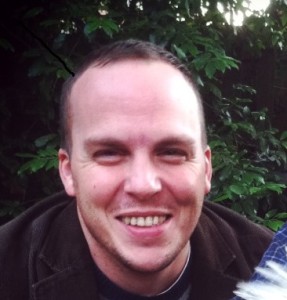 Clay Fuller is a research assistant for the Walker Institute of International and Area Studies, a sixth year PhD candidate (ABD) and adjunct instructor at the University of South Carolina, and he also teaches international relations online for Western Carolina University (NC). Clay studies non-democratic political institutions and the conditions under which these allow for liberal economic experimentation.The title of his dissertation is ‘Authoritarian Liberalism: Dictatorship in the 21st Century.’ His dissertation proposes an alternative assumption to the largely held belief that authoritarian regimes that grow the domestic economy and adopt semi-democratic political institutions will eventually lose control of the process and democratize. Essentially, modern authoritarian regimes are quite capable of adopting most of the necessary conditions for democracy while successfully avoiding the sufficient. His first field is comparative politics and second is international relations. Clay’s research resides in the nexus of these two fields and offers promising new data and insight concerning the use of special economic zones (SEZs) and sovereign wealth funds (SWFs). He regularly teaches an original topics course on modern dictatorships (to which this fellowship is applied) and regularly teaches basic international relations theory courses.
Clay Fuller is a research assistant for the Walker Institute of International and Area Studies, a sixth year PhD candidate (ABD) and adjunct instructor at the University of South Carolina, and he also teaches international relations online for Western Carolina University (NC). Clay studies non-democratic political institutions and the conditions under which these allow for liberal economic experimentation.The title of his dissertation is ‘Authoritarian Liberalism: Dictatorship in the 21st Century.’ His dissertation proposes an alternative assumption to the largely held belief that authoritarian regimes that grow the domestic economy and adopt semi-democratic political institutions will eventually lose control of the process and democratize. Essentially, modern authoritarian regimes are quite capable of adopting most of the necessary conditions for democracy while successfully avoiding the sufficient. His first field is comparative politics and second is international relations. Clay’s research resides in the nexus of these two fields and offers promising new data and insight concerning the use of special economic zones (SEZs) and sovereign wealth funds (SWFs). He regularly teaches an original topics course on modern dictatorships (to which this fellowship is applied) and regularly teaches basic international relations theory courses.
This political science course combines the traditionally domestic and/or area focus of comparative politics with the global and/or interstate levels of analysis associated with international relations. Authoritarianism, neo-authoritarianism, soft authoritarianism, dictatorship, monarchy, autocracy, totalitarianism, single-party regimes, military juntas, and the all-encompassing ‘non-democracy’ are merely a few of the many names given to world’s oldest and most common form of government. Despite ‘waves of democratization,’ in 2015 Freedom House reported that 55% of the world’s countries and 60% of the world’s population are not fully “free.” They also currently report a steady decline in freedom around the world for the entire past decade (freedom measured by civil liberties and political rights). This class explains and explores what these data and terminology mean, the methodologies used to generate these stats, and the major theoretical explanations for the continued survival of non-democracies and their leaders. In addition to learning the various theories concerning non-democratic survival, there are three other components to the course: 1) a section on data collection in dictatorships, 2) a semester-long computer simulation of the fall of a dictatorship to a civil resistance campaign, and 3) a large segment on civil resistance including its history, strategies, and tactics. It is actually not very difficult to remove a dictator from office relative to the difficulty of building a democratic society. The aim of this course is not only to educate students about the 80+ non-democratic regimes that exist today, but also to inspire students to learn more about the front end of the democratization process (removal of the dictator or regime) while simultaneously warning them about the pitfalls that face the group that replaces the regime.
The civil resistance units in this course were presented over the last three weeks of the semester. We followed the approved syllabus in the execution of the class, especially in regards to the civil resistance modules. Class goals were met through lecture, discussion, videos, on-line discussion, writing assignments, and a guest speaker. Evaluation was done based upon evidence of reading and participation.Before beginning the section on civil resistance, we did an in-class simulation of the fall of a dictatorship. It is a role-playing strategy game developed by a professor in Boston. It explores strategies between the ruling coalition and the people in a fictional dictatorship (like the People Power game, but this is in-class and in-person). The in-class simulation does not incorporate civil resistance tactics; however, it makes a great transition into the civil resistance section of the class because it exposes the dynamics that make a dictator susceptible to removal and fires up the imaginations of the students. The students always enjoy and have fun with this simulation. In future iterations, I plan to do the simulation a second time, incorporating nonviolent strategies in the player profiles.
The main assignments was a paper that each student wrote either 1) explaining and analyzing a historical nonviolent resistance movement using the assigned readings or 2) identifying a current situation where a nonviolent resistance movement could be effective and evaluating the prospects of such a plan (using the assigned readings). One extra assignment was added to encourage further reading. Students were offered extra points to create a “tweet” and a “hashtag” for specific readings and then write a paragraph explaining what message the tweet was intended to convey. The students enjoyed this exercise and in future iterations I will be using it again in a more systematic way.
In sum, I think the students enjoyed and learned a lot from the civil resistance modules. I learned a lot as well. My experience with this bled into a related class that I taught this fall – Political Violence and Revolutions. In it, I gave my students the options to design a nonviolent resistance movement in the United States to fix the student loan problem. I first established with every student that there was a problem. I asked them to share their experiences and thoughts. They mostly expressed apathy or helplessness. Some even expressed resentment for people who complain about it (even though they also recognized it was a big problem). I then simply asked “what are you going to do about it?” Most said “nothing.” I then asked them what would happen if all 50 million+ students and the millions more paying off student loans simply refused to make any more payments. I could tell that many had never even considered this. They became excited. Many tried to rationalize by saying that it would ruin their credit rating. I countered by asking them how that logic works.Many were struck by the concept of power through consent (we were studying the Color Revolutions at the time). Many wrote papers planning a student-led nonviolent movement to fix the student loan problem. I have found that if framed correctly, nonviolent struggles are very attractive to US college students.
Learning Gains Survey Results:
Clay distributed pre-seminar and post-seminar surveys to measure gains in learning progress among course participants. Included below are the graphed responses to selected questions from the surveys. In general, they illustrate a positive trend in learning gains achieved by the participants as a result of the course. The survey results and questions are displayed and briefly analyzed in descriptive form. The survey was given on the second day of class and then again on the last day of class during the fall semester of 2016. The raw data (in .csv form) is available for the use of ICNC staff. Confidentiality of respondents is strictly preserved. The data contains two identification markers. Each student has a randomized identification number (id) that matches across pre and post survey results. Each id number matches with another indicator of whether the student is male or female (female = 0, male = 1). There are 40 subjects – 21 males, 19 females. They were mostly juniors and seniors. ~75% of the class plans on a law degree. The analysis is split into four sections explained below.
SECTION I: Summary Statistics of Raw Data(Note: Questions 10 and 11 are nominal and results are discussed in section III.)
SECTION II: General Discussion about Survey Results
In general, the students had learning gains across all questions. The standard deviation decreases in the post-survey results across all continuous answers except questions 8 (list of tactics and strategies) and 9 (list of CRMs). The decrease in the standard deviation in questions 1-7 implies that the teacher was effective in conveying coherent knowledge on the subject matter to all students. The increase in standard deviations for questions 8 and 9 may imply that some students had a stronger interest in the subject and did more of the readings and independent research than other students.All survey instruments can be improved. A few suggestions for this one would be to change up the words under the numerical scales to possibly increase variation in answers (i.e. more specificity). Several students suggested that some questions could be more specific (for example, questions 9 and 10 should specify whether or not it is referring to historical or modern (or all) examples. Respondent descriptive questions would be helpful for a deeper analysis (i.e. race, age, student standing, major, etc.).I think that a standardized survey instrument for all instructors can be fashioned out of this first cut. A standardized instrument could help the ICNC clearly identify where its strengths and weaknesses are in the teaching curriculum program and other programs. Identifying strengths and weaknesses would help the ICNC make an already strong program even more effective.
SECTION III: Discussion of Question-Specific Results
SECTION IV: Granular Data Demonstration
The raw data are displayed below so the reader may see variation across individual students.
Go back to the main ICNC Curriculum Fellowship page.
Tunisians protest against returning militants
Zimbabwe: Tajamuka movement vows more anti-Mugabe protests in 2017
Honduras: Being a human rights defender in one of the deadliest countries on Earth
Hope for the Central American Spring
Syria: Women continue resistance against fascism, imperialism, and patriarchy
Strategic Nonviolent Action, Peacemaking, Community Policing: A course taught by ICNC Curriculum Fellow 2016
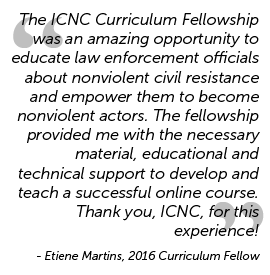 An online course on civil resistance created and moderated by Etiene Martins, developed with the support of the ICNC Curriculum Fellowship Program.
An online course on civil resistance created and moderated by Etiene Martins, developed with the support of the ICNC Curriculum Fellowship Program.
Learn more by clicking on the topic links:
Go back to the main ICNC Curriculum Fellowship page.
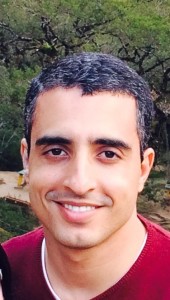 Etiene Martins is a Brazilian Federal Judge and a former police officer. He was a police officer for 16 years at Rio de Janeiro State, Brazil, and served at its Legal Department. In 2014, he was appointed Federal Judge and, currently, serves at the 4th Federal Court of Guarulhos City, District of São Paulo. He holds a B.A and a M.A in Public Security. In 2008, he earned LLB from the Federal University of the State of Rio de Janeiro. Since November 2015, Etiene Martins has been Professor of Constitutional Law and International Law at Enfase Institute (Brazil). Etiene has additionally started teaching Criminal Law at the D. João VI Police Academy. Etiene is active in the field of civil resistance training. He is a Kingian Nonviolence Conflict Resolution Co-Trainer affiliated with the Center for Nonviolence & Peace Studies (University of Rhode Island) In 2011, he attended the Kingian Nonviolence Training – Level I (University of Rhode Island) and, in 2015, the Fletcher Summer Institute on the Advanced Study of Nonviolent Conflict. In June this year, he will embark on the “Kingian Nonviolence Training – Level II – ADVANCED TRAINING in Leadership, Organization, Mobilization” at the University of Rhode Island. He is the author of the chapter “Law, Violence, and Public Security: Martin Luther King Jr.’s Philosophy Applied” published in the book Kingian Nonviolence: Applications for International & Institutional Change, 2015.
Etiene Martins is a Brazilian Federal Judge and a former police officer. He was a police officer for 16 years at Rio de Janeiro State, Brazil, and served at its Legal Department. In 2014, he was appointed Federal Judge and, currently, serves at the 4th Federal Court of Guarulhos City, District of São Paulo. He holds a B.A and a M.A in Public Security. In 2008, he earned LLB from the Federal University of the State of Rio de Janeiro. Since November 2015, Etiene Martins has been Professor of Constitutional Law and International Law at Enfase Institute (Brazil). Etiene has additionally started teaching Criminal Law at the D. João VI Police Academy. Etiene is active in the field of civil resistance training. He is a Kingian Nonviolence Conflict Resolution Co-Trainer affiliated with the Center for Nonviolence & Peace Studies (University of Rhode Island) In 2011, he attended the Kingian Nonviolence Training – Level I (University of Rhode Island) and, in 2015, the Fletcher Summer Institute on the Advanced Study of Nonviolent Conflict. In June this year, he will embark on the “Kingian Nonviolence Training – Level II – ADVANCED TRAINING in Leadership, Organization, Mobilization” at the University of Rhode Island. He is the author of the chapter “Law, Violence, and Public Security: Martin Luther King Jr.’s Philosophy Applied” published in the book Kingian Nonviolence: Applications for International & Institutional Change, 2015.
Course Abstract: This is an online seminar that aims to introduce police officers to ideas and concepts of civil resistance scholarship and practice, and to show how important social and political changes can be brought about by nonviolent actions. The course also intends to make participants aware of how civil resistance campaigns can help to reduce violence and enforce the rule of law. Since civil resistance campaigns can play such an important role in fighting corrupt practices, state abuses and strengthening rule of law, police would benefit from understanding and gaining greater insight from the field of civil resistance studies. The course aims to teach its participants how to identify civil resistance campaigns, deconstruct misconceptions about civil resistance actions and nonviolent movements, and how to constructively work with activists and civil resistance campaigns. The course consists of five components: 1) an introduction to civil resistance through a historical and practical perspective; 2) an examination of nonviolent action in history, focusing on the Martin Luther King campaign; 3) a look into the strategies and skills that create successful civil resistance movements; 4) applying nonviolent action to policing; and 5) an exploration of the future of civil resistance. Collectively, these components examine the proponents, philosophies and techniques of nonviolent action in transforming violent conflicts into more constructive nonviolent contentions that will benefit resolution of personal interpersonal, societal, and international conflicts.
Selected Learning Gains Survey and Final Evaluation Results
Learning Gains Survey Results:
Etiene distributed pre-seminar and post-seminar surveys to measure gains in learning progress among course participants. Included below are the graphed responses to selected questions from the surveys. In general, they illustrate a positive trend in learning gains achieved by the participants as a result of the course.
1. On the scale below, circle the choice that best represents your current knowledge of civil resistance and nonviolent movements. (Left: Pre-Seminar Results, Right: Post-Seminar Results)
Explanation: In the Pre-Seminar LGS, only 17.6% students felt that they had a very strong knowledge base (8-10) of civil resistance and nonviolent movements. In the Post-Seminar LGS, 66.7% of participants reported having a strong knowledge base on the subject.
2. On the scale below, identify your comfort level in speaking about Community Policing. (Left: Pre-Seminar Results, Right: Post-Seminar Results)
Explanation: In the Pre-Seminar LGS, 11.8% of participants reported having a very low comfort level in speaking about community policing (1-2). In the Post-Seminar LGS, 0% of participants reported having a very low comfort level and 83.3% reported having a very high comfort level (8-10).
3. On the scale below, which choice best represents your view that revolutions against brutal regimes (dictatorships, for instance) can succeed only if revolutionaries retain the option to use violent means? (Left: Pre-Seminar Results, Right: Post-Seminar Results)
Explanation: In the Pre-Seminar LGS, 17.6% of participants held the view that revolutions against brutal regimes can succeed only if revolutionaries retain the option to use violent means. In the Post-Seminar LGS, 0% of participants maintained that view and 91.7% disagreed or strongly disagreed with that view.
4. On the scale below, which choice best represents your view that protests, marches, and demonstrations in Brazil are violent (consider the last 10 years)? (Left: Pre-Seminar Results, Right: Post-Seminar Results)
Explanation: In the Pre-Seminar LGS, 5.9% of participants believed that protests, marches, and demonstrations in Brazil are always violent. However, in the Post-Seminar LGS, no participants reported maintaining that view.
5. On the scale below, circle the number that best represents your view that movements/campaigns that face repression must fail. (Left: Pre-Seminar Results, Right: Post-Seminar Results)
Explanation: In the Pre-Seminar LGS, no participants strongly disagreed that movements/campaigns that face repression must fail. In the Post-Seminar LGS, 16.7% of participants strongly disagreed that such movements must fail.
6. On the scale below, circle the number that best represents your view about how important you think strategic planning and leadership are in policing. (Left: Pre-Seminar Results, Right: Post-Seminar Results)
Explanation: In the Post-Seminar LGS, 83.3% of the participants thought that strategic planning and leadership in (nonviolent) policing are important, which was an increase by almost 7% in comparison with the result (76.5%) for the same question in the Post-Seminar LGS.
Final Course Evaluation Results:
Included below are graphed responses to selected questions from the Final Course Evaluation.
Module 1: Introduction to Nonviolence
This module introduces the main concepts and ideas of civil resistance. It reflects on its effectiveness and its power to overcome adversarial conditions.
The amount of study material provided in this module was:
Relevance to your interests or work:
Would you recommend this session be included in a similar program in the future?
Module 2: Civil Resistance in History: Martin Luther King
This module introduces Kingian Nonviolence and discusses the Kingian framework for conflict reconciliation, management, mediation, and arbitration. It includes analysis of the different types and levels of conflict, and how they escalate and deescalate.
The amount of study material provided in this module was:
Relevance to your interests or work:
Would you recommend this session be included in a similar program in the future?
Module 3: Leadership, Negotiation and Strategy
This module aims to empower participants with knowledge to become better leaders. It discusses BATNA (Best Alternative to a Negotiated Agreement) and the importance of unity, planning and nonviolent discipline in developing and leading a movement.
The amount of study material provided in this module was:
Relevance to your interests or work:
Would you recommend this session be included in a similar program in the future?
Module 4: Nonviolence Applied to Policing
This module analyzes why people are violent. It discusses negotiation, mediation and conflict resolution. It covers community policing and its definition, challenges and application.
The amount of study material provided in this module was:
Relevance to your interests or work:
Would you recommend this session be included in a similar program in the future?
Module 5: The Future of Civil Resistance
This module discusses ways that external non-state actors can support campaigns and civil resistance, the police as a nonviolent actor, the importance of communication and media strategies for successful nonviolent resistance movements, and different roles of technologies in civil resistance struggles.
The amount of study material provided in this module was:
Relevance to your interests or work:
Would you recommend this session be included in a similar program in the future?
General Questions about Educational Content:
Which Module was the most important for you?
Overall so far, the quality of the content has been: (Scale: 1 = very low; 5 = very high)
Go back to the main ICNC Curriculum Fellowship page.
Introduction to Civil Resistance: History and Strategies of Nonviolent Struggle: A course taught by ICNC Curriculum Fellow 2016
 Lilit Makunts, an ICNC Curriculum Fellow, developed, offered and moderated an online course on the introduction to civil resistance in Fall 2016 as part of the ICNC Curriculum Fellowship. The course was conducted on the ICNC Moodle platform.
Lilit Makunts, an ICNC Curriculum Fellow, developed, offered and moderated an online course on the introduction to civil resistance in Fall 2016 as part of the ICNC Curriculum Fellowship. The course was conducted on the ICNC Moodle platform.
The information featured below was submitted as part of the fellowship requirement that, among others, included creating a detailed course proposal, developing online content, designing evaluation tools, selecting participants and extensive moderation throughout the course.
Learn more by clicking on the topic links:
- About the Curriculum Fellow
- Course Abstract
- Learning Gains Survey Results
- Final Course Evaluation Results
- Selected Testimonials
- Useful Tips from Participants for Course Success
Go back to the main ICNC Curriculum Fellowship page.
Lilit Maku nts is currently an Associate Professor at Russian-Armenian University in Yerevan. She earned her Ph.D. in Cognitive Linguistics specializing in Political Discourse. She teaches Sociolinguistics, Cognitive Linguistics, and Discourse Analysis. After attending the Fletcher Summer Institute for the Advanced Study of Nonviolent Conflict in 2015, she initiated an academic course on Civil Resistance in the Department of Political Science this fall.
nts is currently an Associate Professor at Russian-Armenian University in Yerevan. She earned her Ph.D. in Cognitive Linguistics specializing in Political Discourse. She teaches Sociolinguistics, Cognitive Linguistics, and Discourse Analysis. After attending the Fletcher Summer Institute for the Advanced Study of Nonviolent Conflict in 2015, she initiated an academic course on Civil Resistance in the Department of Political Science this fall.
Still a student, she was very actively engaged in civic initiatives. Her aspiration for democratic changes in Armenia made her enter politics in 2004 and try to promote universal values. However, after about 8 years as a political board member in the Liberal Party of Armenia and the head of the youth organization (2004-2012) she realized that, without civic education and the acknowledgment of people power among society, no substantial democratic changes can take place. This was the major reason she quit political activity and started working with civil society groups and individuals. Along with academic teaching, she works as a trainer on different civil society platforms.
Course Abstract: This is an online seminar that aims to provide civil society representatives, social/political activists and students with basic knowledge of civil resistance history as well as to introduce them to strategies and tactics that are employed worldwide to make nonviolent resistance effective. The course intends to discuss various cases of nonviolent campaigns and movements and reflect on their efficiency by drawing parallels across local contexts. The course will begin with an introduction to civil resistance and its historical background and will discuss its common misconceptions. It will analyze the reasons why nonviolent campaigns succeed more often than violent ones and will touch upon the idea of people power and how it works. The seminar will further discuss strategic frameworks for analyzing campaigns and movements, as well as explore issues related to innovative and creative tactical choice. Cultural resistance will then be discussed as a creative way to challenge and fight oppression. The last component of the online course will be devoted to the discussion of the role of negotiations in civil resistance and the options regarding their application in nonviolent struggles in Armenia.
Learning Gains Survey Results
The Learning Gains Survey aims to measure knowledge gains among course participants. Participants take the Pre-Seminar Survey at the beginning of the course and take an identical survey (Post-Seminar) at the end of the course. Included below are the graphed responses to selected questions from the Pre-Seminar and Post-Seminar Surveys. In general, the surveys illustrate a positive trend in the knowledge gains achieved by participants as a result of the course.
1. On the scale below, grade your current knowledge of civil resistance or nonviolent movements. (Left: Pre-Seminar Results, Right: Post-Seminar Results)
Explanation: In the Pre-Seminar LGS, more than one third of participants (35.7% selected option 3) felt they had relatively little knowledge of civil resistance or nonviolent movements and zero participants ranked their knowledge above a score of 7. In the Post-Seminar LGS, close to 85% of participants felt that they had a very high level of knowledge on the subject (8-10).
2. On the scale below, identify your comfort level in speaking to others about civil resistance or nonviolent movements. (Left: Pre-Seminar Results, Right: Post-Seminar Results)
Explanation: In the Pre-Seminar LGS, participants reported a wide range of comfort levels when speaking about civil resistance or nonviolent movements; some participants ranked their level as very low and others as very high. [Participants might have understood this question not only in relation to their knowledge of/familiarity with the subject but also in relation to their willingness to speak about it with others in a relatively closed society]. The results of the Post-Seminar LGS indicate that all participants now feel confident in their ability to speak about this topic, with 77% ranking their comfort level as a 9 or a 10 and the remaining 23% ranking their comfort level as an 8.
3. On the scale below, select the number that best represents your knowledge on the history and effectiveness of nonviolent civil resistance. (Left: Pre-Seminar Results, Right: Post-Seminar Results)
Explanation: There is a clear growth in participants’ knowledge of the history and effectiveness of nonviolent civil resistance. In the Pre-Seminar LGS 42.9% of participants ranked their knowledge of this topic as low (3). However, in the Post-Seminar LGS 92.4% of participants ranked their knowledge as very high (8-10).
4. On the scale below, grade the effectiveness of nonviolent campaigns over the violent ones. (Left: Pre-Seminar Results, Right: Post-Seminar Results)
Explanation: In the Pre-Seminar LGS, participants were divided in their feelings of the effectiveness of nonviolent campaigns over violent ones. However, in the Post-Seminar LGS 69.3% of participants, no doubt informed by the readings and class discussions, reported that nonviolent campaigns can be highly effective, even more so than their violent counterparts.
5. On the scale below, select the number that best represents your view on the statement that movements that face repression cannot succeed. (Left: Pre-Seminar Results, Right: Post-Seminar Results)
Explanation: In the Post-Seminar LGS the number of participants who strongly disagreed that movements that face repression cannot succeed nearly doubled from 28.6% to 46.2%.
6. On the scale below, select the number that best reflects your view about how effective cultural resistance can be. (Left: Pre-Seminar Results, Right: Post-Seminar Results)
Explanation: The number of the participants who reported that cultural resistance can be highly effective (9-10) nearly doubled, from 35.7% in the Pre-Seminar LGS to 61.6% in the Post-Seminar LGS.
7. On the scale below, indicate the number that best represents your view on the statement that violent campaigns can be more effective for democratic transitions than nonviolent ones. (Left: Pre-Seminar Results, Right: Post-Seminar Results)
Explanation: The number of participants who felt strongly that violent campaigns cannot be more effective for democratic transitions than nonviolent ones, increased from 14.3% on the Pre-Seminar LGS to 23.1% on the Post-Seminar LGS (1).
8. On the scale below, indicate the number that best represents your opinion about how effective nonviolent movements are against repressive regimes. (Left: Pre-Seminar Results, Right: Post-Seminar Results)
Explanation: On the Pre-Seminar LGS, 28.6% of participants believed that nonviolent movements are very effective (8-10) against repressive regimes. The number of participants who held this view increased to 46.2% in the Post-Seminar LGS.
Final Course Evaluation Results:
Included below are graphed responses to selected questions from the Final Course Evaluation.
1. Course content was organized and planned (1: Strongly Disagree; 5: Strongly Agree)
2. The goals of the course and its modules were clear (1: Strongly Disagree; 5: Strongly Agree)
3. Course modules and content were timed and sequenced well (1: Strongly Disagree; 5: Strongly Agree)
4. Course content was comprehensive and balanced, and topics were well selected (1: Strongly Disagree; 5: Strongly Agree)
5. Taking this online course was a positive experience (1: Strongly Disagree; 5: Strongly Agree)
6. I now have more knowledge about civil resistance and its various topics than I had before taking the course (1: Strongly Disagree; 5: Strongly Agree)
7. I have reviewed some misconceptions that I had on nonviolent resistance as a result of the course (1: Strongly Disagree; 5: Strongly Agree)
8. I found the module on “Developing Strategy and Tactics” useful (1: Strongly Disagree; 5: Strongly Agree)
9. I consider analyzing the spectrum of allies to be important for planning (1: Strongly Disagree; 5: Strongly Agree)
10. I found weekly module summaries shared by the course moderator relevant and helpful (1: Strongly Disagree; 5: Strongly Agree)
11. Course moderator offered useful comments (1: Strongly Disagree; 5: Strongly Agree)
12. I learned about civil resistance from other course participants (1: Strongly Disagree; 5: Strongly Agree)
13. Course content matched my interests and professional needs (1: Strongly Disagree; 5: Strongly Agree)
14. The course met or exceeded my expectations (1: Strongly Disagree; 5: Strongly Agree)
15. I would recommend this course to other people (1: Strongly Disagree; 5: Strongly Agree)
16. How would you assess your own engagement with the course material, including participation in the course forums? (on a scale from 1 to 5)
17. I feel my knowledge on nonviolent resistance can be resourceful for researchers, activists and other interest groups (1: Strongly Disagree; 5: Strongly Agree)
- “Initially, I was very enthusiastic about this online course and, now, my expectations are justified…..Before the course I was very pessimistic about the changes that one can make in their own country, but now it is quite the opposite picture. The examples, the people, the achievements were so influential, that you could not help believing in its power. The most valuable part for me were the discussions, because here you can, directly, feel the great concerns of different people on one issue, and discussions, in that sense, were the beginning of something new.”
- “For me the part of “Developing Strategies and Tactics” was the most interesting and important, because it shares theoretical knowledge on very practical part of social/political life.”
- “Each module of the course was valuable and in each step we got a new knowledge. In future I will use my knowledge from the course. She is a great moderator because she constantly reminds us that she is willing to listen to anything we have to say and discuss.”
- “I liked the discussions in the forums, it was great to know that there are people who value the idea of non-violent civil resistance.”
- “I liked it and everything was balanced. I think all of modules are valuable and they can’t be separated.”
- “First of all the whole course was inspiring and motivating, which, I think, is quite necessary for today’s generation, particularly in our country. Most of all I liked the 6th module, ‘Cultural Resistance’, as it seemed to be the best way of a nonviolent civil movement in many ways.”
- “I got very positive impression from the course, because I learned a lot of new things about non-violent civil resistance. I especially liked when we studied different successful cases of civil resistance all around the world.”
- “I’ll mention 3 topics which really impress me. They are ‘Developing Strategy and Tactics’, ‘Cultural Resistance’, and ‘Negotiations and Civil Resistance’
- “The course was very useful for me. I particularly enjoyed the interaction between participants in the forums.”
Useful Tips from Participants for Course Success
- Time management and self-commitment
- Spend 1.5 – 2 hours per day engaging in the course
- Before watching and reading materials, review the forum discussion questions
- Do not leave tasks to the last day of each module
- Be as attentive and active as possible; taking this course and reviewing this literature is a duty
- Create a schedule
- Read material every day little by little
- Keep up with forum discussions that other participants lead; it is the best way to remember all the course details and to apply various points of view
Go back to the main ICNC Curriculum Fellowship page.
China: Salman Rushdie leads World Human Rights day protest for Chinese writers
West Papua: Major demonstrations staged in Wamena and Manokwari
Russia/Ukraine: Crimean Tatar activist says world is silent as Russia persecutes his people
Mexico: Environmental grassroots protest in a repressive context
Ethiopia: The importance of nonviolent resistance in the Oromo struggle
Making or Breaking Nonviolent Discipline in Civil Resistance Movements
This Academic Webinar took place on Tuesday, January 17, 2017 at 12 p.m. EST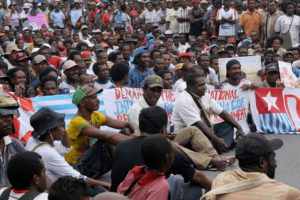
This webinar was presented by Jonathan Pinckney
Watch the webinar below:
Webinar content:
1. Introduction of the Speaker: 00:00-00:52
2. Presentation: 00:52- 29:20
3. Questions and Answers: 29:20-52:29
Two different polls were conducted among the participants during the webinar. The polls asked the following questions:
- In your opinion, how important is nonviolent discipline for the success of a civil resistance movement?
- In your view, what factors increase nonviolent discipline in civil resistance movements?
Check the webinar recording above to see the polls’ results that reflected the views’ of the webinar participants and compare them with the quantitative and qualitative findings of the research presented by the speaker.
Webinar summary:
How can we understand when nonviolent movements will stay nonviolent? When are they likely to break down into violence? In this monograph, Jonathan Pinckney analyzes both what promotes and undermines nonviolent discipline in civil resistance movements. Combining quantitative research on thousands of nonviolent and violent actions with a detailed comparison of three relevant case studies of civil resistance during the “Color Revolutions”, Pinckney’s analysis provides important lessons for activists and organizers on the front lines, as well as for practitioners whose work may impact the outcomes of nonviolent struggles. We learn how repression consistently induces violence, as do government concessions. On the flip side, we see that structuring a campaign in an inclusive and non-hierarchical way is conducive to greater nonviolent discipline.
Responses to questions not answered during the scheduled webinar time:
Participant comment/question: hanks for studying this topic. I’m in the US, and I’ve dealt with people who come to demonstrations and civil disobedience actions as participants in and advocates of “black bloc” style “diversity of tactics.” Many of the anti-corporate globalization mobilizations faced these challenges, and for a while even advocates of nonviolence seemed to try to split the difference with “black blocs.” But my perception is that this didn’t work (splitting the difference seemed to mean, in practice, rejecting what you call nonviolent discipline). And I think many advocates (the RANT collective, for example, I believe) reaffirmed advocacy for explicitly nonviolent agreements for demonstrations. I’m wondering, either in your case studies or your interest in the field, if you’ve studied the negotiation process between advocates and skeptics of explicitly nonviolent approaches.
Pinckney: This is definitely a major challenge for several movements, and it’s very typical to see back and forth struggles between groups who are committed to nonviolence and those who either explicitly espouse violence or at least want to keep their options open to a “diversity of tactics,” as you mention. I haven’t studied that negotiation process in depth, but I can tell that it’s certainly difficult. Some movements attempt to distance themselves from groups that don’t explicitly commit to nonviolence, others try to talk them into moderating or limiting their violent activities. It’s a process that’s very specific to the particular case, depending on what the power balance is between different groups, their connection to the larger social-political environment, etc.
Participant comment/question: I’m a little confused about your statistical tests, including the “statistical results” column. Were you testing these three cases alone, or bringing in other examples as well?
Pinckney: For my statistical testing I looked at around 18,000 actions by hundreds of different campaigns in 14 countries over a period of around twenty years. The countries were completely different than the three countries that I examined for the comparative cases section. That’s why you might have noticed that sometimes the findings were different for the statistical testing than for the three [in-depth] cases. I was particularly convinced by findings where I could see a pattern both in the statistical testing and in the three cases. I discuss where the data for the statistical testing comes from in great detail in my ICNC monograph.
Presenter

Jonathan Pinckney is a PhD candidate at the Josef Korbel School of International Studies, University of Denver, and a research fellow at the Sie Cheou-Kang Center for International Security and Diplomacy, where he supervises the Nonviolent and Violent Campaigns and Outcomes (NAVCO) 3.0 project. His research centers on nonviolent political contention in non-democracies, which special focus on the role of civil resistance in democratization. Jonathan’s work has been published in the Journal of Peace Research, Foreign Policy Magazine’s Democracy Lab, and the Encyclopedia of Social and Behavioral Sciences. Jonathan received his BA in International Affairs from Gordon College, graduating summa cum laude with special honors, and his MA from the Korbel School in 2014. He was a 2012 recipient of the Korbel School’s Sie Fellowship.
Making or Breaking Nonviolent Discipline in Civil Resistance Movements monograph
Recommended Readings:
- Hardy Merriman. “The Trifecta of Civil Resistance.”
- Liesel Mitchell. “Nonviolent Discipline: A Comparative Analysis of Tiananmen Square 1989 and Gwangju 1980.”
- Gene Sharp. “How Nonviolent Struggle Works.” (A shorter version of The Politics of Nonviolent Action that is available online) Chapter 11: Solidarity and Discipline to Fight Repression.
Upcoming ICNC webinars. For the full list of upcoming ICNC webinars go here.
Past ICNC webinars. Please visit the ICNC Webinar Digest to hear all ICNC webinars delivered between 2010-2016 in an easily accessible format.
National Nonviolent Defense Against Aggressor-States
This Academic Webinar took place on Wednesday, December 21, 2016 at 12 p.m. EST
This webinar was presented by Dr. Maciej Bartkowski
Watch the webinar below:
Webinar content:
1. Introduction of the Speaker: 00:00 – 00:55
2. Presentation: 00:56 – 49:52
3. Questions and Answers: 49:53 – 1:07:58
Four different polls were conducted among the participants during the webinar. The polls asked the following questions:
- What would you do if foreign troops invaded & occupied your town/city/region/country?
- In your view, how effective can nonviolent resistance against a powerful aggressor-state be?
- In your view, how effective can armed resistance against a powerful aggressor-state be?
- What resistance action would you join if your town/city/region/country was occupied by a brutal foreign regime?
Check the webinar recording above to see the polls’ results and compare them with the outcomes of the national surveys that were shown and discussed by the speaker.
Webinar Summary:
Historically, nonviolent resistance has proven to be more effective than armed insurrections against domestic authoritarian regimes. The relevance and applicability of civil resistance to fighting violent regimes at home are by now indisputable.
This scholarly, policy and practitioner confidence has yet to translate into the opinion that civil resistance can also be relevant and applicable for effective national defense against an aggressor-state. This webinar will elaborate on a national nonviolent defense as a viable means to counter external, overt and covert (hybrid) aggression and foreign occupation.
More specifically, the webinar will analyze the results of recent national surveys from Poland and Ukraine that show surprisingly large social capital among respective populations for civil resistance in case of violent foreign intrusion. It will also look at selected historical cases of nonviolent defense used spontaneously by the attacked societies and current efforts by Lithuania to integrate civil resistance into its defense policies and preparedness.
These analyses will show how nonviolent resistance strategies can be relevant for developing viable and effective national defenses against violent aggressor-states.
Presenter:
Dr. Maciej Bartkowski is the Senior Director for Education & Research at ICNC. At ICNC, Dr. Bartkowski manages academic programs for students, faculty, and educators that support curriculum-development, teaching, research, writing and study on civil resistance. He is editor of the ICNC Monograph series and the volume Recovering Nonviolent History: Civil Resistance in Liberation Struggles. He is also an adjunct faculty at Johns Hopkins University, Krieger School of Arts and Sciences and at Fletcher School of Law and Diplomacy. Read more
Relevant publications by Dr. Bartkowski:
- Countering Hybrid War. Civil Resistance as a National Defense Strategy, openDemocracy, May 2015. Available Online
- Nonviolent Civilian Defense to Counter Russian Hybrid Warfare, Critical Policy Issue Studies, Johns Hopkins University, March 2015. Available Online
- To Kill or Not to Kill: Ukrainians Opt for Nonviolent Civil Resistance, Political Violence @ A Glance, October 2015. Available Online
- The Kremlin’s “Protest Potential” Strategy, The HuffingtonPost, November 2016. Available Online
- Nonviolent Strategies to Defeat Totalitarians such as ISIS, openDemocracy, March 2016. Available Online
Brazil: Initiative seeks to create free labs for activists
Legacy of dissident movements could have lessons for today
Armenia: Female activists are reclaiming space in public life
Australian activists, dissenters, and whistleblowers feeling the heat
Sudanese opposition parties join call for civil disobedience
ICNC is Hiring
2014 ICNC Online Course: Civil Resistance and the Dynamics of Nonviolent Conflict
ICNC offered a moderated online course on civil resistance in partnership with the International Institute for Peace at Rutgers University Graduate School, which took place from October 14, 2014 to November 21, 2014.
Click on the following links to navigate: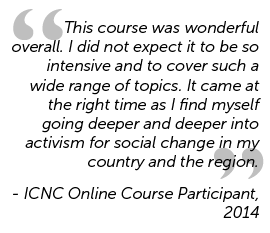
- Applications, admission and course participants
- Course moderation
- Course content
- Selected testimonials
- Useful tips from participants for course success
Applications, admission and course participants
ICNC received 86 applications and accepted 55 participants. Among those 55 participants, 23 countries of origin were represented including Israel, Pakistan, Venezuela, and Poland. The participant group was made up of activists, scholars, educators, and students.
Course facilitators included Dr. Maciej Bartkowski, Shaazka Beyerle, and Althea Middleton-Detzner.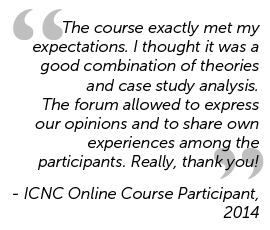
The online course consisted of an introduction module and five thematic modules. Each thematic module was released at the beginning of the week and the participants and moderators engaged in different forums of the module throughout the week. A detailed course outline is provided below. (Note: The selection of the ‘Not Applicable’ option indicates that the respondent did not participate in that particular module)
Module 1. Welcome and Introductions
Module 2. Foundation of Civil Resistance
- What civil resistance is, its dynamics, attributes, power of agency
- Explaining effectiveness of civil resistance: its record and why it was ignored in the past
Module 3. Deconstructing Misconceptions and Structural Determinism
- Common misconceptions and their harmful consequences
- Skills versus Conditions: underlying misconceptions, research findings (Freedom House study, Gaventa and Barrett), interplay between skills and conditions, Thomas Schelling quote
Module 4. Dynamics of Civil Resistance: Strategies and Tactics
- Nonviolent tactics and strategies (what they are/what is the difference between the two)
- Tools for tactical analysis
- Strategic sequencing of tactics (Nashville episode)
- Dilemma actions
- Backfire/paradox of oppression
- Defections
Module 5. Variety of topics [participants chose at least two out of six topics listed below]
- Nonviolent Resistance Against Violent Non-State Actors
- Gender Dynamics in Civil Resistance
- Violent Flank and Civil Resistance
- Unaccountable Exploitative Industry and Civil Resistance
- Grassroots Campaigns and Movements Impacting Corruption and Impunity
- Democratic Transition and Civil Resistance
5.1 Nonviolent Resistance Against Violent Non-State Actors:
If “Not Applicable” was selected it meant learners did not take part in reviewing and discussing this particular topic in Module 5, and instead chose a different one.
5.2 Gender Dynamics in Civil Resistance:
If “Not Applicable” was selected it meant learners did not take part in reviewing and discussing this particular topic in Module 5, and instead chose a different one.
5.3 Violent Flank and Civil Resistance:
If “Not Applicable” was selected it meant learners did not take part in reviewing and discussing this particular topic in Module 5, and instead chose a different one.
5.4 Unaccountable Exploitative Industry and Civil Resistance:
If “Not Applicable” was selected it meant learners did not take part in reviewing and discussing this particular topic in Module 5, and instead chose a different one.
5.5 Grassroots Campaigns and Movements Impacting Corruption and Impunity:
If “Not Applicable” was selected it meant learners did not take part in reviewing and discussing this particular topic in Module 5, and instead chose a different one.
5.6 Democratic Transition and Civil Resistance:
If “Not Applicable” was selected it meant learners did not take part in reviewing and discussing this particular topic in Module 5, and instead chose a different one.
Module 6
- Final Course Evaluations
“It was extremely knowledgeable and very concise and well organised in its structure. I could not have expected more…Very much impressed with the quality of lectures and course work and absolute brilliant administration and organisation by the ICNC Team.”
-ICNC Online Course Participant, 2014
“The course exactly met my expectations. I thought it was a good combination of theories and case study analysis. The forum allowed to express our opinions and to share own experiences among the participants. Really, thank you!!!”
-ICNC Online Course Participant, 2014
“This course was wonderful overall. I did not expect it to be intensive and to cover a wide range of topics. It came at the right time as I find myself going deeper and deeper in activism for social change in my country and region.”
-ICNC Online Course Participant, 2014
“My role models in nonviolence have been Mahatma Gandhi and Dr Martin Luther King both of whom advocated principled nonviolence yet were very strategic in the use of it. Without realizing it I had taken principled violence as the only form of violence and never considered those who use nonviolence for strategic purposes only. This understanding left me frustrated every time people turned away as I advocated for nonviolence. The course helped me get the message clearer and I will be able now to tell people correctly and draw more activists to adhere to our cause of nonviolent social change.”
-ICNC Online Course Participant, 2014
“I did not know the extent of women’s involvement in nonviolent movements. I knew it was substantial, but I had still underestimated just how powerful and effective women have been historically and presently in making nonviolence happen. Also, I was unaware of the number of instances in which folks used nonviolence, not because of an ideological commitment, but because it worked.”
-ICNC Online Course Participant, 2014
Useful tips from participants for course success
- Time management is key
- If you have internet access issues, plan work time efficiently
- Work a little everyday or pick certain days to dedicate large portions of time
- Explore the online course site in the beginning to understand all the tools
- Use your phone to read/work on the go
- Start discussions; ask questions
ICNC High School Curriculum Fellowships
 Interest in civil resistance movements and nonviolent action is rising among high school students. Whether driven by current events in their country, growing media attention that civil resistance movements are receiving, or other causes, opportunities need to be created for these students to follow their interest and pursue study of this field.
Interest in civil resistance movements and nonviolent action is rising among high school students. Whether driven by current events in their country, growing media attention that civil resistance movements are receiving, or other causes, opportunities need to be created for these students to follow their interest and pursue study of this field.
View the most recent call for High School Fellowships to learn more about the fellowship and requirements. A new call for applications is expected to be launched in the first quarter of every year.
Studying civil resistance movements and nonviolent action as an applied science and creative engagement can have numerous benefits for young students, including:
- Understanding new ways of engagement in making social, political, and economic change in their communities. This can lead to heightened engagement and a sense of empowerment.
- Preparing students for university-level study. There is a profusion of scholarly literature, and a growing number of courses on civil resistance offered at various universities in the areas of conflict, peace and security studies, political science, international relations, history, and sociology.
- Offering students general knowledge and skills that are relevant to future advanced studies in any of the broadly understood social sciences.
- For career-oriented students who know they want to pursue work in foreign policy, government, community organizing, journalism, advocacy, or civil society organizations, learning about civil resistance movements and nonviolent action can be a career-oriented learning opportunity. As this phenomenon increasingly shapes international affairs and domestic politics in countries around the world, government and civic actors are increasingly likely to encounter this phenomenon in their work. In such cases, knowledge about civil resistance movements is an important competency.
In Fall 2016, ICNC launched its first ever grant program for high school educators from around the world to support development and implementation of education on civil resistance movements and nonviolent action for high school students.
The first seven fellows of the program have been selected from the pool of excellent applicants who responded to the call. The fellows came from different parts of the world (Mauritania, Afghanistan, United States, South Africa, Hungary) and developed and thought civil resistance courses for the high school students in Winter, Spring and Summer of 2017.
View this year’s 2018 High School Curriculum Fellows:
View the final evaluations and learning assessments from the 2016 High School Curriculum Fellows:
- Ahmadullah Archiwal, High School Curriculum Fellow. Ahmadullah’s course evaluation & learning assessment
- Elizabeth “Betsy” Cepparulo, High School Curriculum Fellow. Betsy’s course evaluation & learning assessment
- Regina Feldman, High School Curriculum Fellow. Regina’s course evaluation & learning assessment
2015 ICNC Online Course: Civil Resistance and the Dynamics of Nonviolent Conflict
ICNC offered a moderated online course on civil resistance in partnership with the International Institute for Peace at Rutgers University Graduate School, which took place from October 9 to November 17, 2015.
Use the following links to navigate: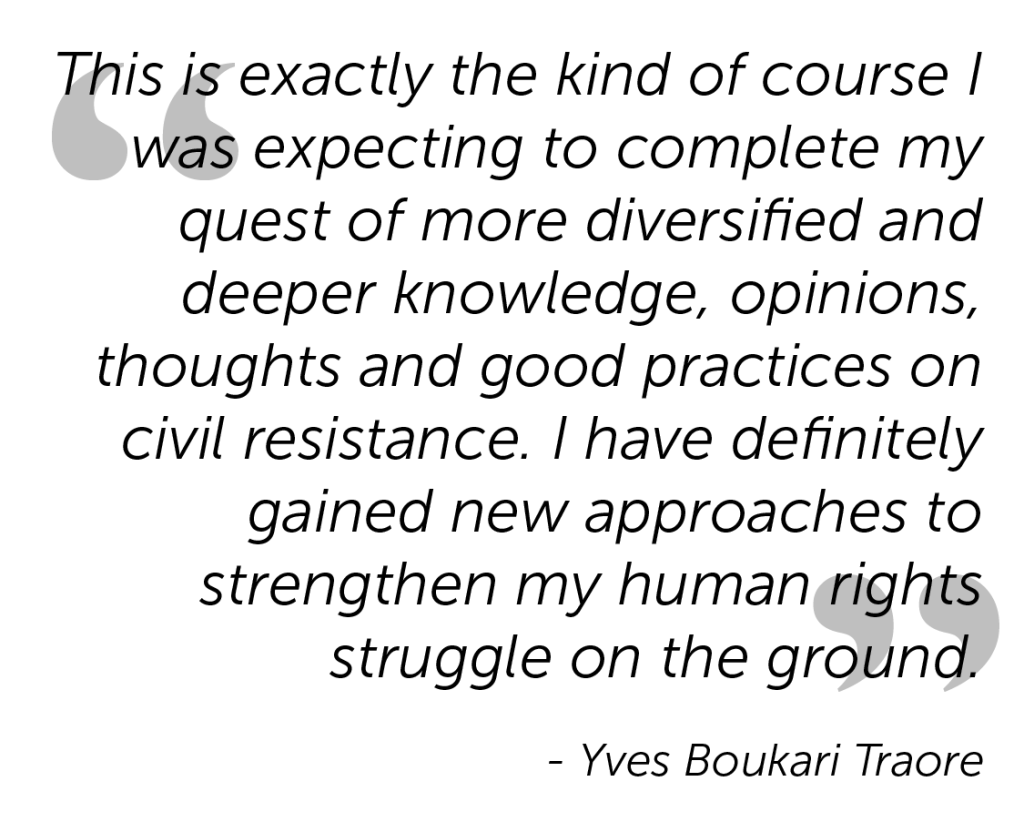
- Applications, admission and course participants
- Course moderation
- Course content
- Final evaluation results
- Selected testimonials
Applications, admission and course participants
ICNC received 142 applications and accepted 62 participants. The selected participants came from 26 countries, and included activists and organizers, international development and human rights professionals, journalists, educators, and students.
Six ICNC staff members moderated various discussion forums in the online course, adding significant value to the overall educational experience. The course moderators included: Dr. Maciej Bartkowski, Shaazka Beyerle, Althea Middleton-Detzner, Amber French, Katherine Hughes-Fraitekh. The course administrators were David Reinbold and Cathy Smith.
Check what participants thought about the course moderation.
In addition to the interventions in the discussion forums, course moderators provided weekly summaries from the forum discussions in a particular module, highlighting key points made, debates taking place and core information that was shared.
The online course consisted of an introduction and six thematic modules. Each thematic module was released at the beginning of the week and the participants and moderators would engage in different forums of the module throughout the week. A detailed course outline is provided below.
Check out what participants thought about the course content.
Module 1. Foundation of Civil Resistance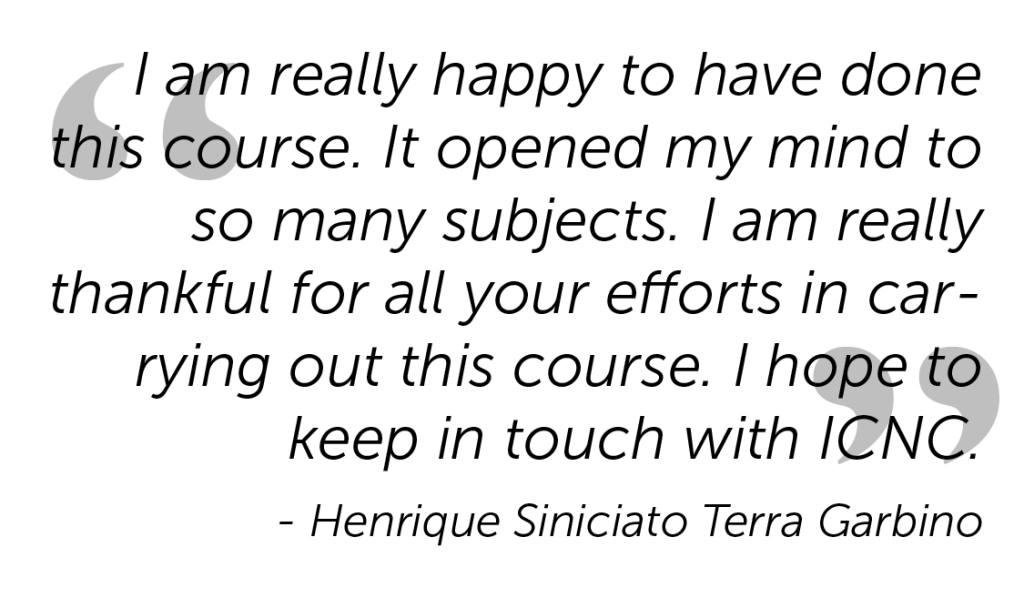
What Is Civil Resistance?
People and Power
Effectiveness of Civil Resistance
Module 2. Emergence of Civil Resistance, Conditions and Skills
Emergence of Civil Resistance Movements
Conditions and their Impact
Skills Drive Civil Resistance
Module 3. Strategies and Tactics of Civil Resistance
Nashville Lunch Counter Campaign (U.S. Civil Rights Movement)
Strategic Planning and Tactical Choices
Cultural Resistance Tactics
Tactical Innovation
Conflict Analysis Tools
Module 4. Repression and Backfire, Defections, Violent Flank
Repression and Backfire
Defections
Violent Flanks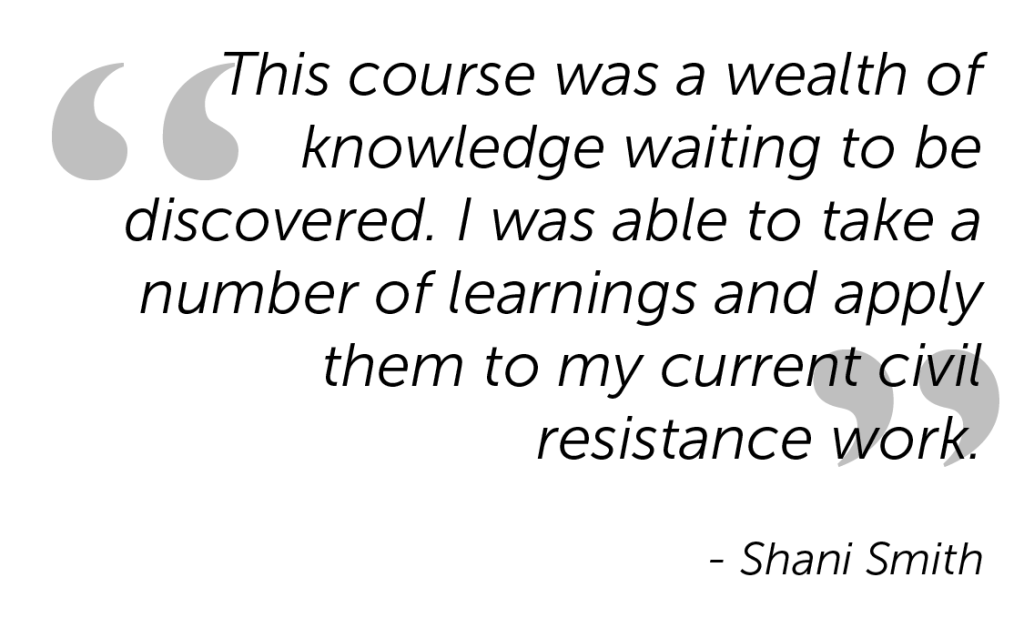
Module 5. Variety of Topics on Civil Resistance
People Power versus Corruption and Impunity
Civil Resistance in War-Torn Environments
Women and Nonviolent Resistance
Communication Strategies for Civil Resistance
Module 6. Variety of Topics of Civil Resistance
External Actors and Civil Resistance
Civil Resistance and New Technologies
Democratization and Civil Resistance
Civil Resistance and Corporate Governance
Included below are graphed responses to selected questions from the final course evaluation.
- Course content
- Knowledge gains
- Learning from other participants
- Quality of course moderation
- Meeting participants’ expectations
- Recommending the course
- Course relevance to work/study/activism
1. Course content was organized and planned
2. Course modules and content were timed and sequenced well
3. Course content was comprehensive, balanced and topics well selected
4. I now have more knowledge about civil resistance and its various topics than I had before taking the course
Learning from other participants
5. I learned about civil resistance from course participants
6. I learned about civil resistance from course moderators
7. Course moderators offered useful comments
8. I found module summaries shared by moderators relevant and helpful
Meeting participants’ expectations
9. Course met or exceeded my expectations
10. I would recommend this course to other people
Course relevance to future study/work/activism
11. I expect the knowledge from the course to be relevant in my future study/work
12. Where do you plan to apply the knowledge from this course?
“This course was a wealth of knowledge waiting to be discovered. I was able to take a number of learnings and apply them to my current civil resistance work.”
– Shani Smith, ICNC online course participant, 2015
“This is a great, rigorous course on civil resistance from start to finish, covering more ground than you imagine is possible!”
– Rivera Sun, ICNC online course participant, 2015
“I am really happy to have done this course. It opened my mind to so many subjects. Since I am in the military, [nonviolent conflict] may sound counterintuitive (even though by our own doctrine it should not), but now I will always think of the nonviolent option as probably the most effective one. I am really thankful for all your efforts in carrying out this course. I hope to keep in touch with ICNC.”
– Henrique Siniciato Terra Garbino, ICNC online course participant, 2015
“This is exactly the kind of course I was expecting to complete my quest of more diversified and deeper knowledge, opinions, thoughts and good practices ( from the other participants) on civil resistance. I have definitely gained new approaches to strengthen my human rights activist daily struggle on the ground.”
– Yves Boukari Traore, ICNC online course participant, 2015
“Thank all our Moderators and facilitators of their courage, professionalism and experience they demonstrated in making this a true learning process and experience in my life long career in Global Peace education. Thank you.”
– Kamara Ibrahim, ICNC online course participant, 2015
